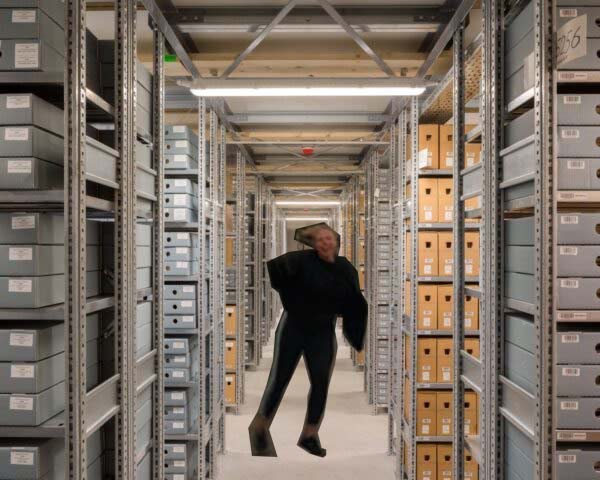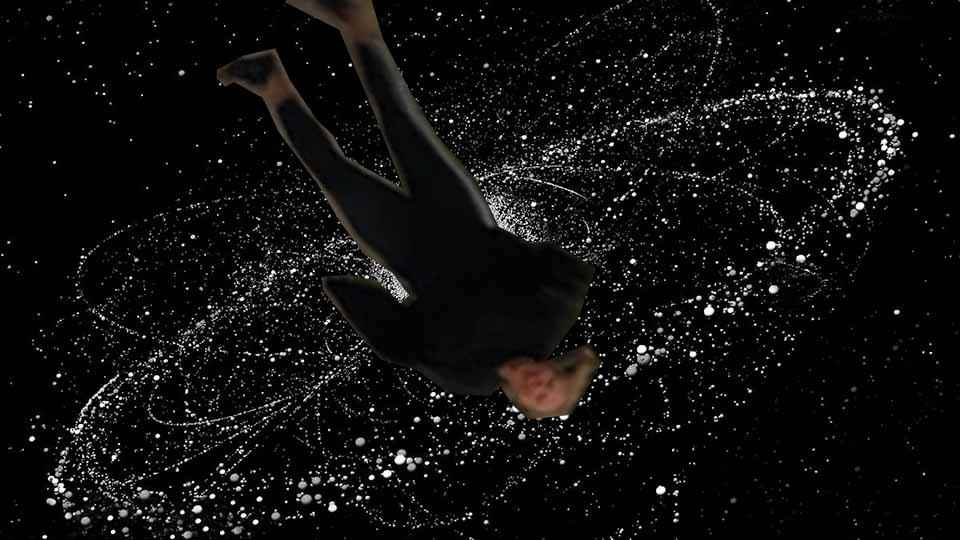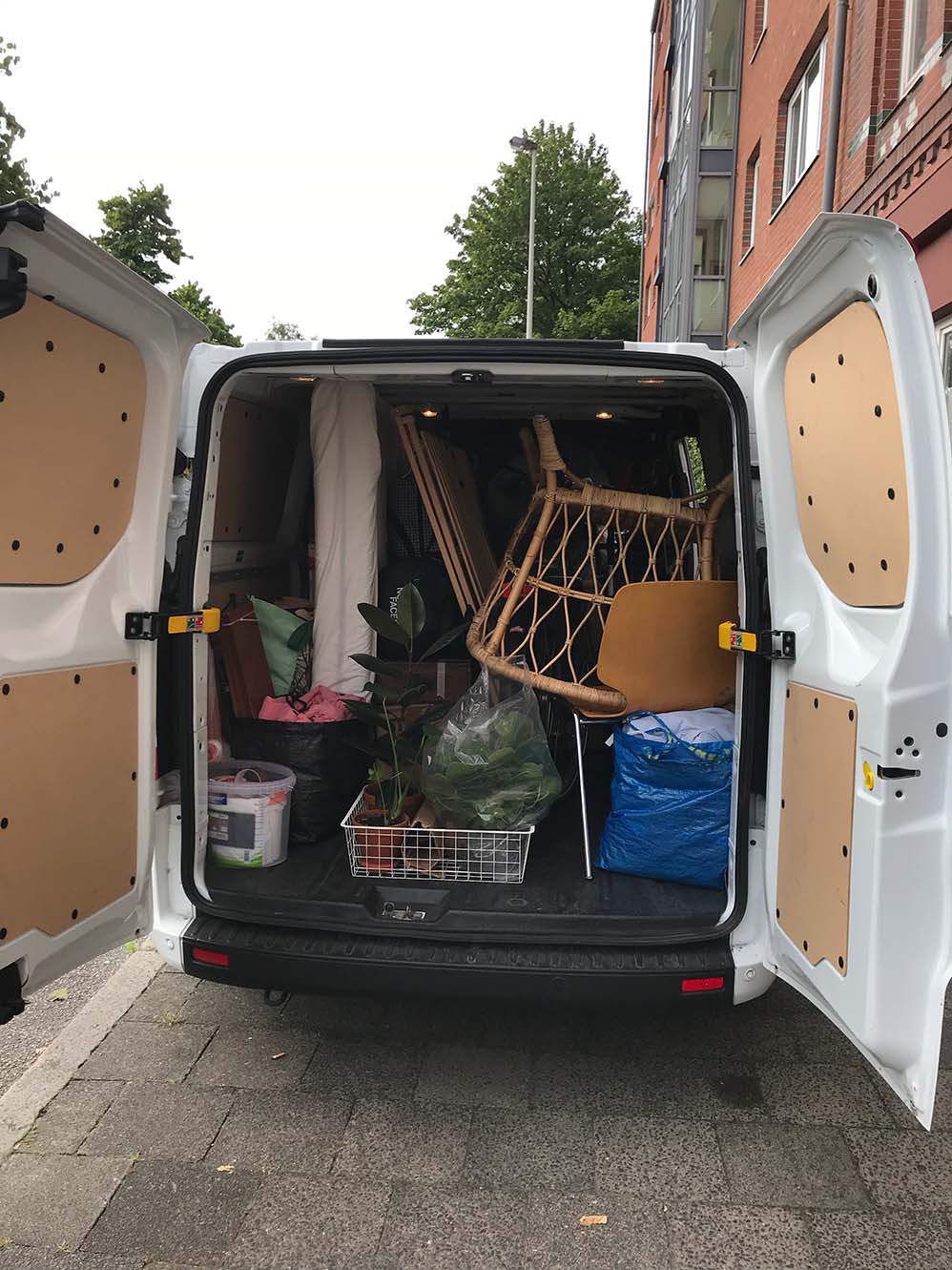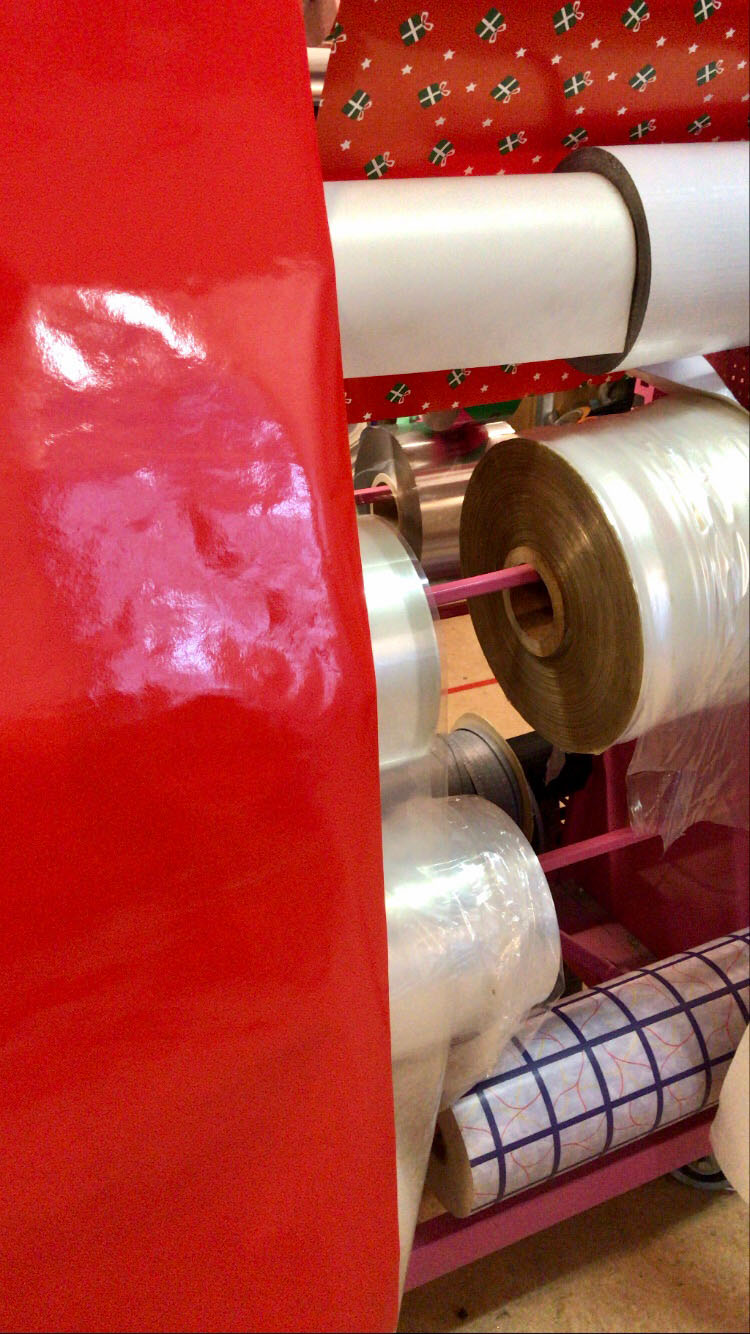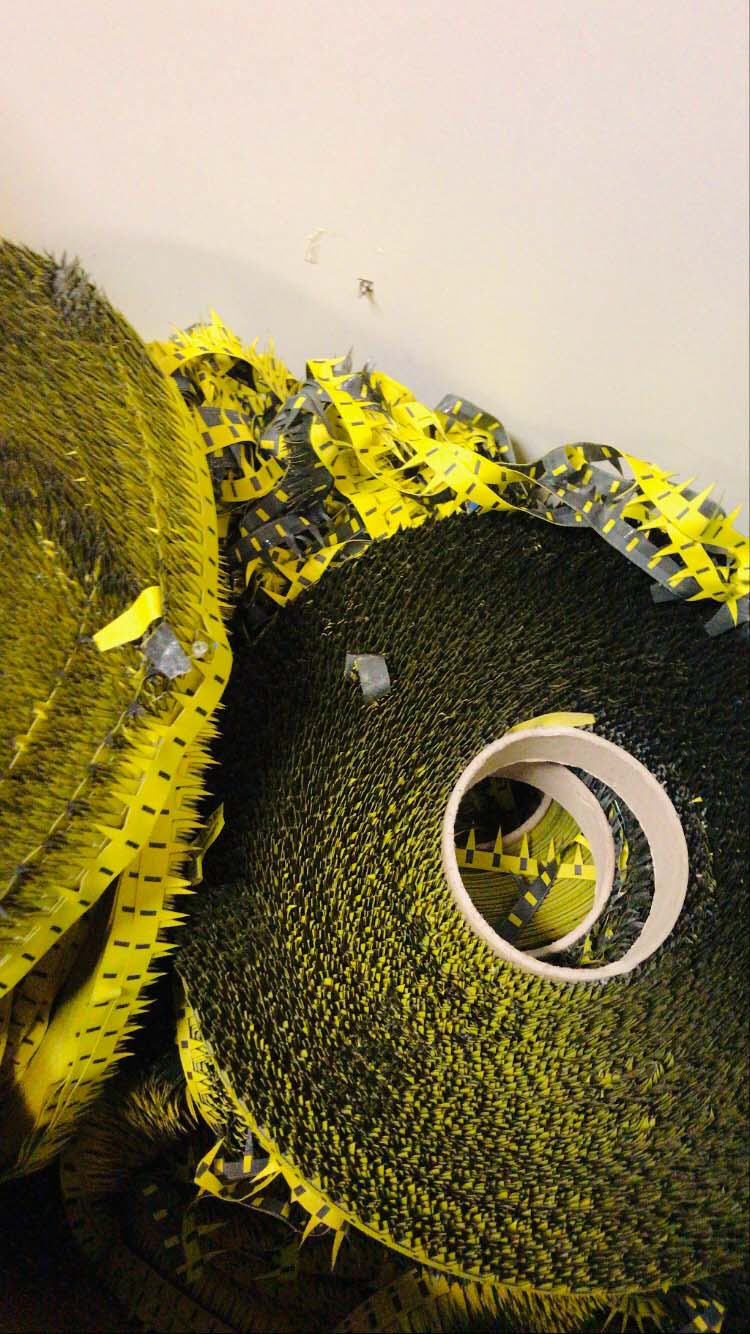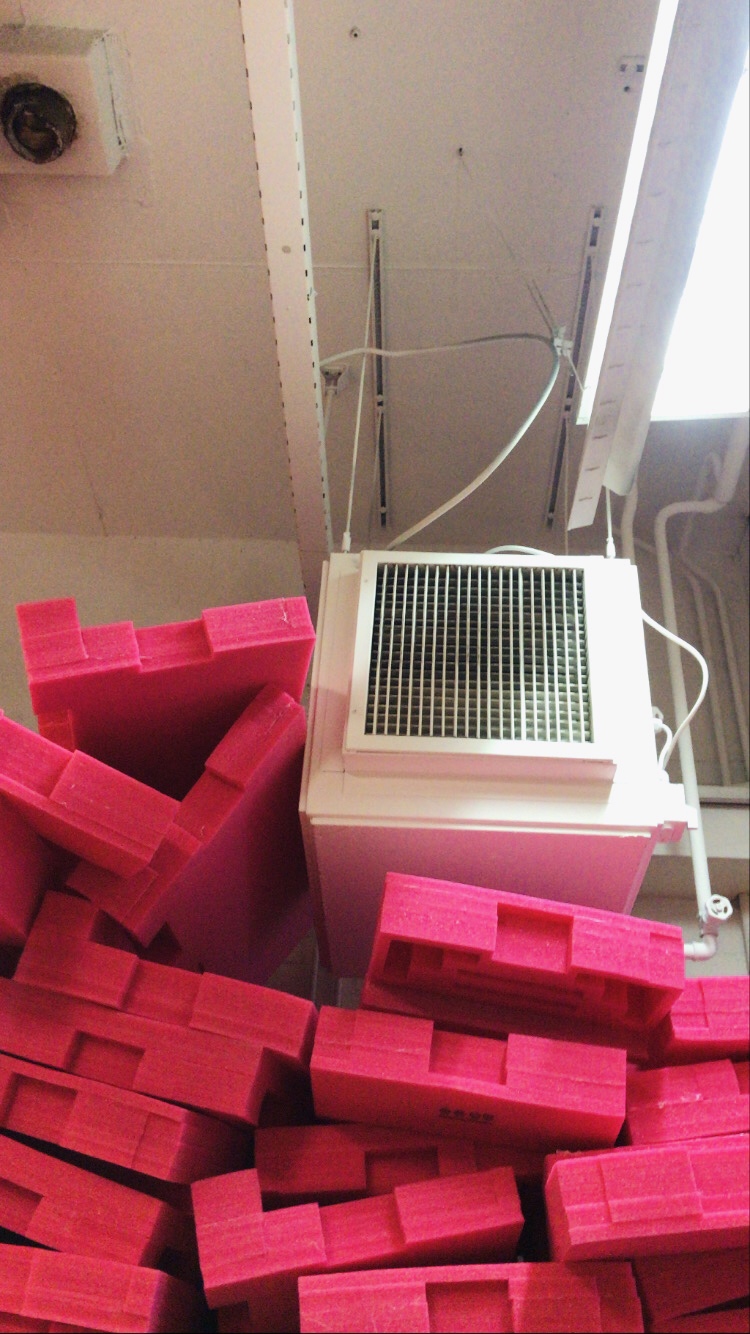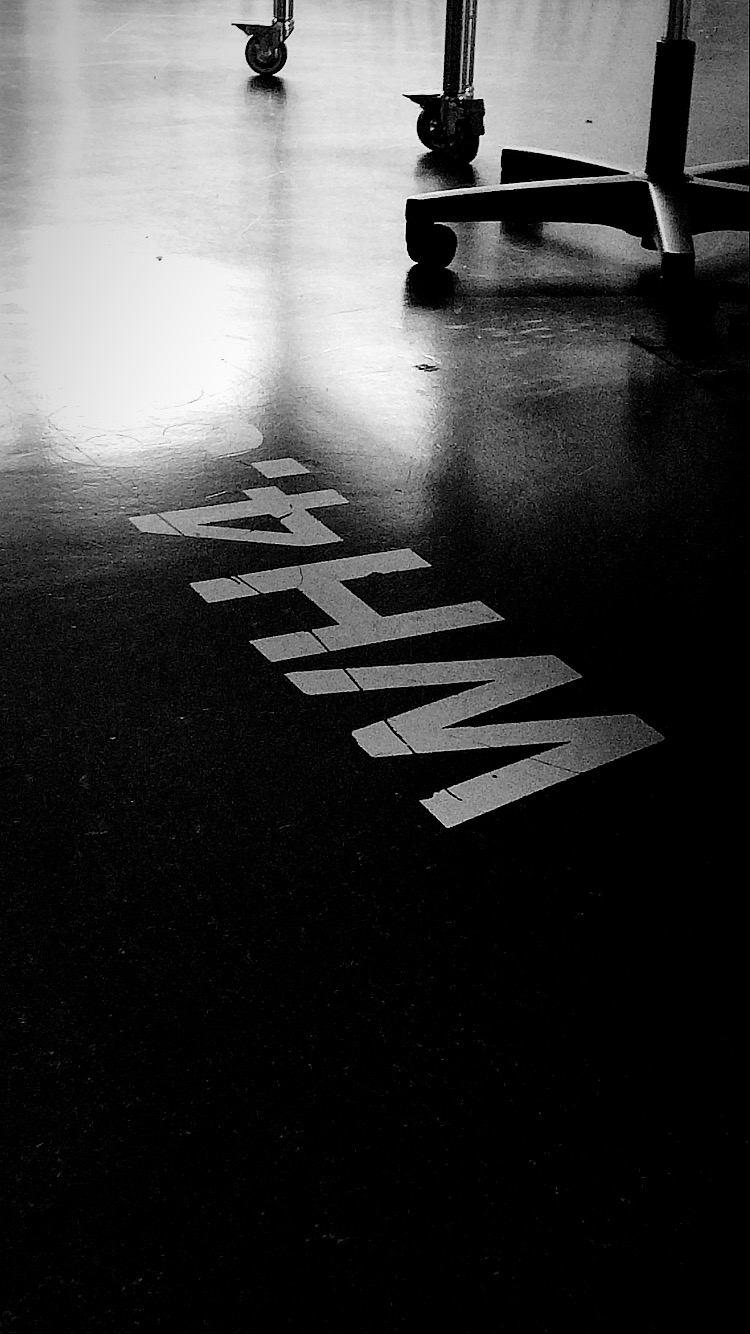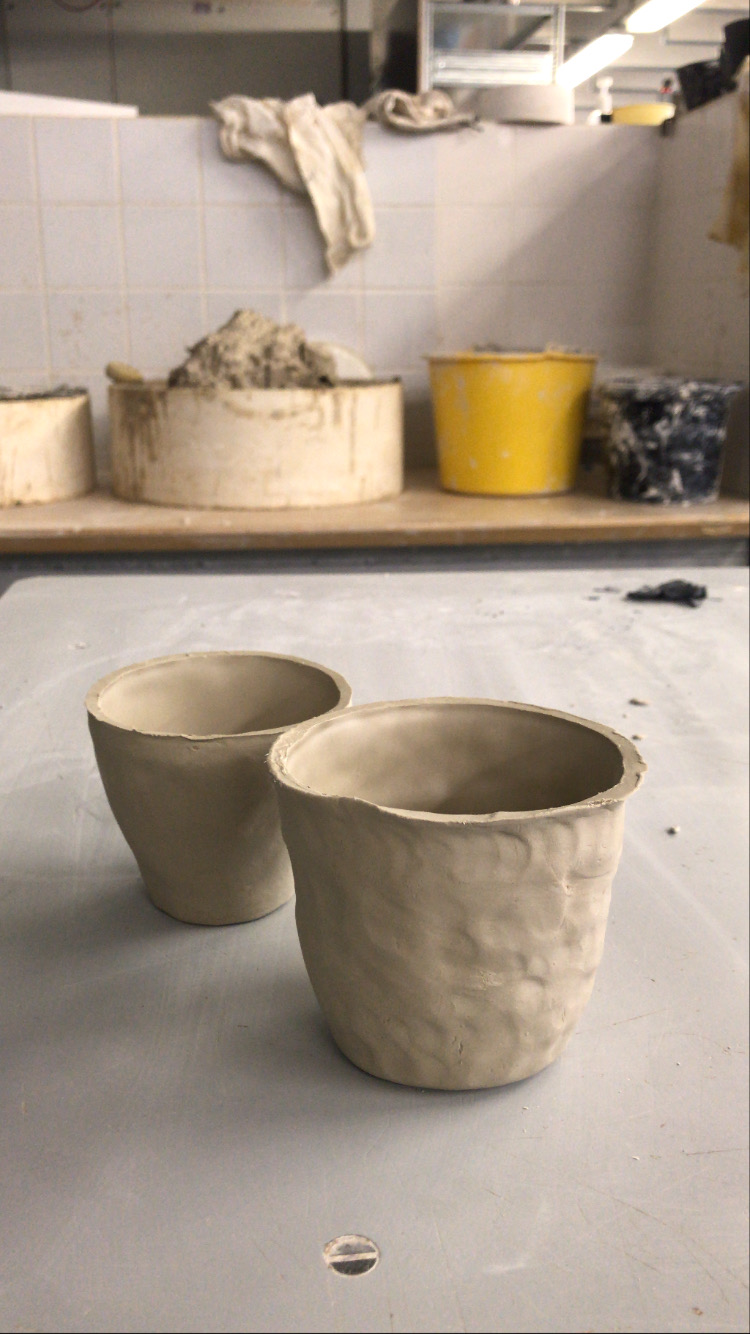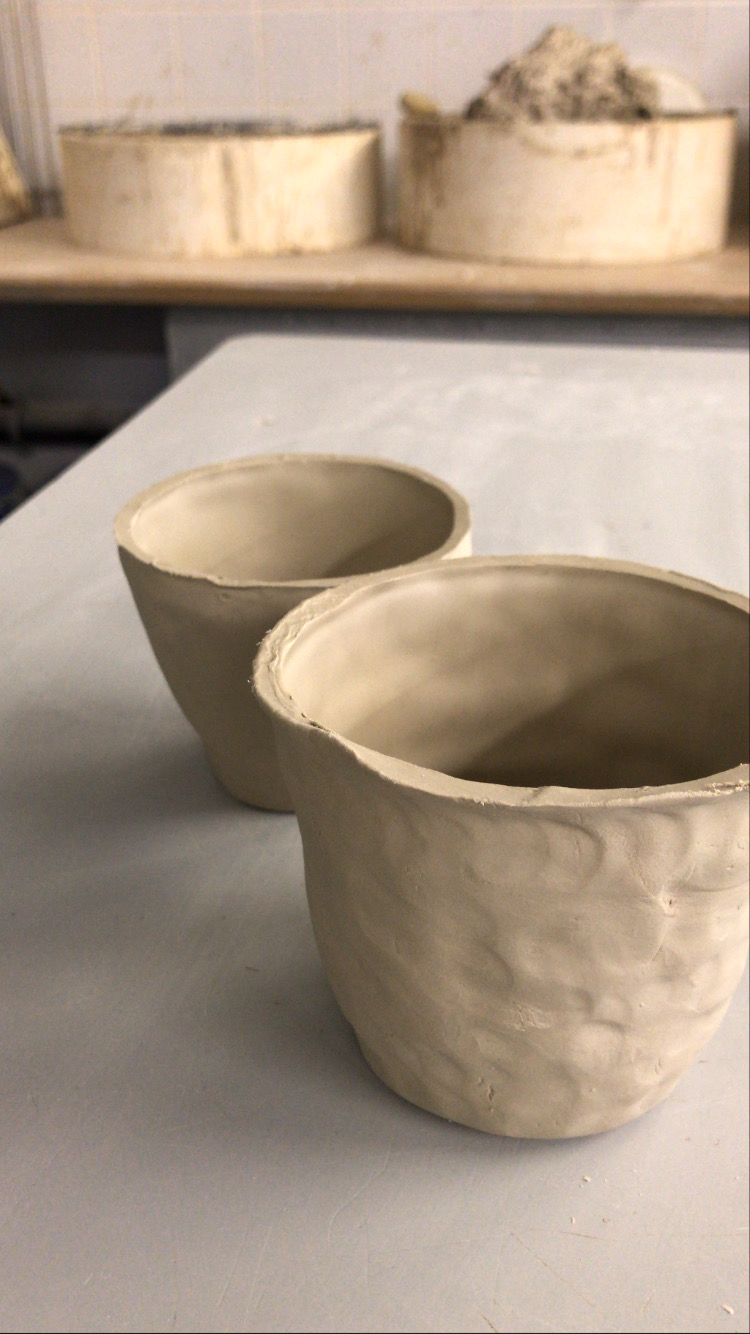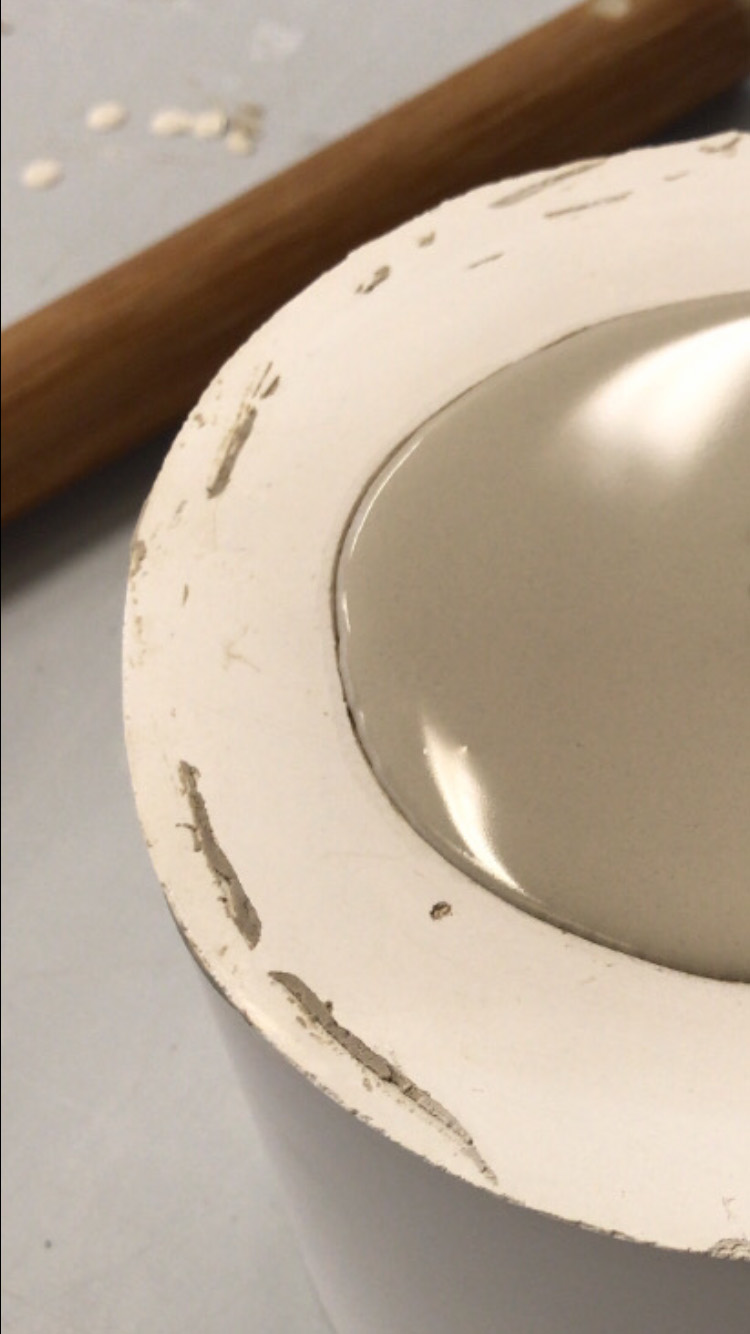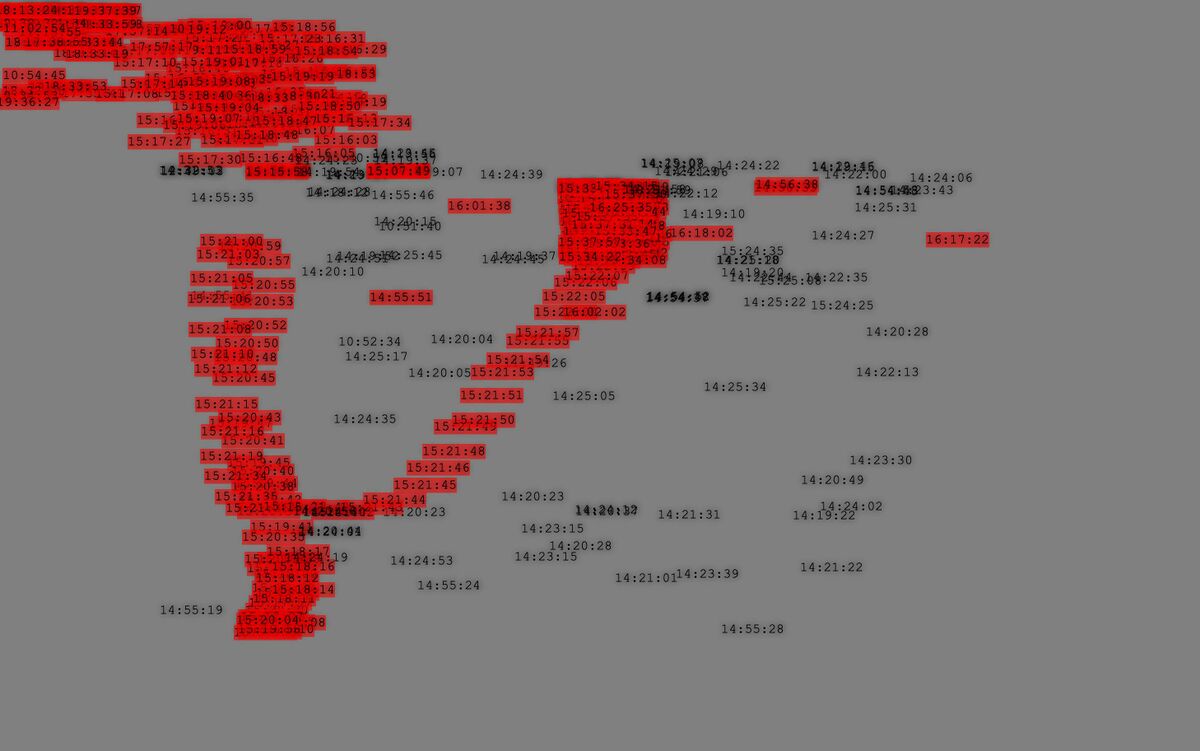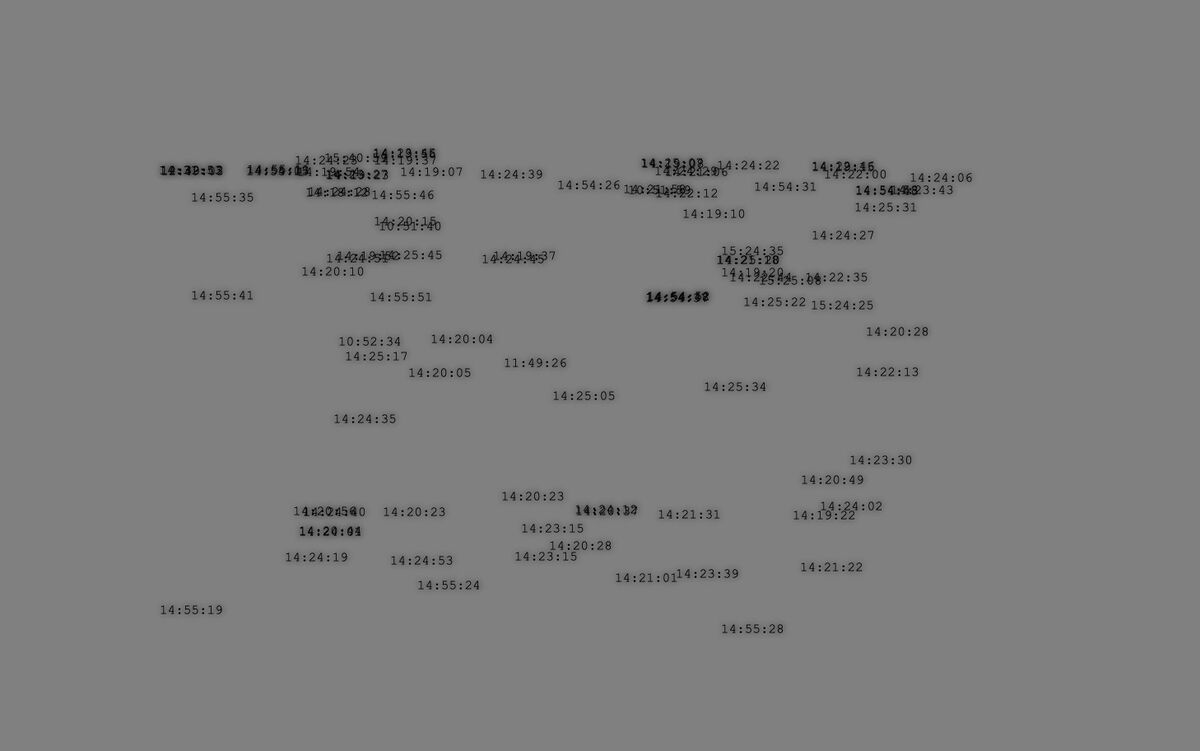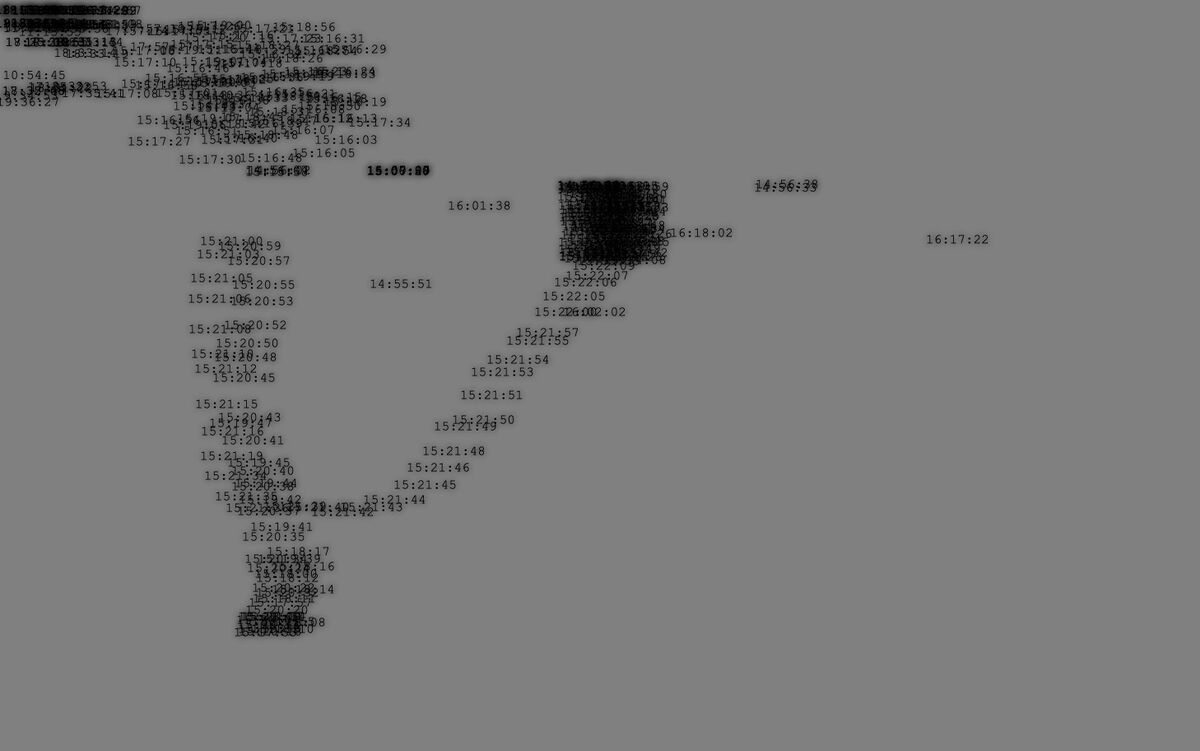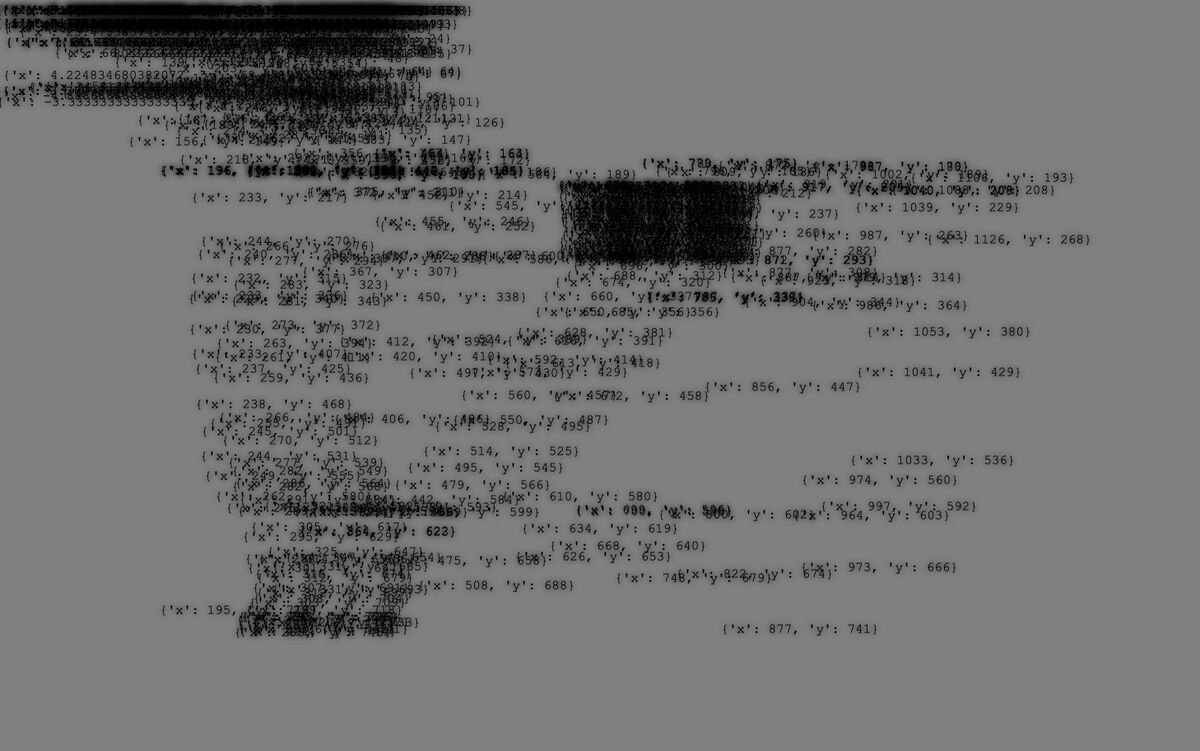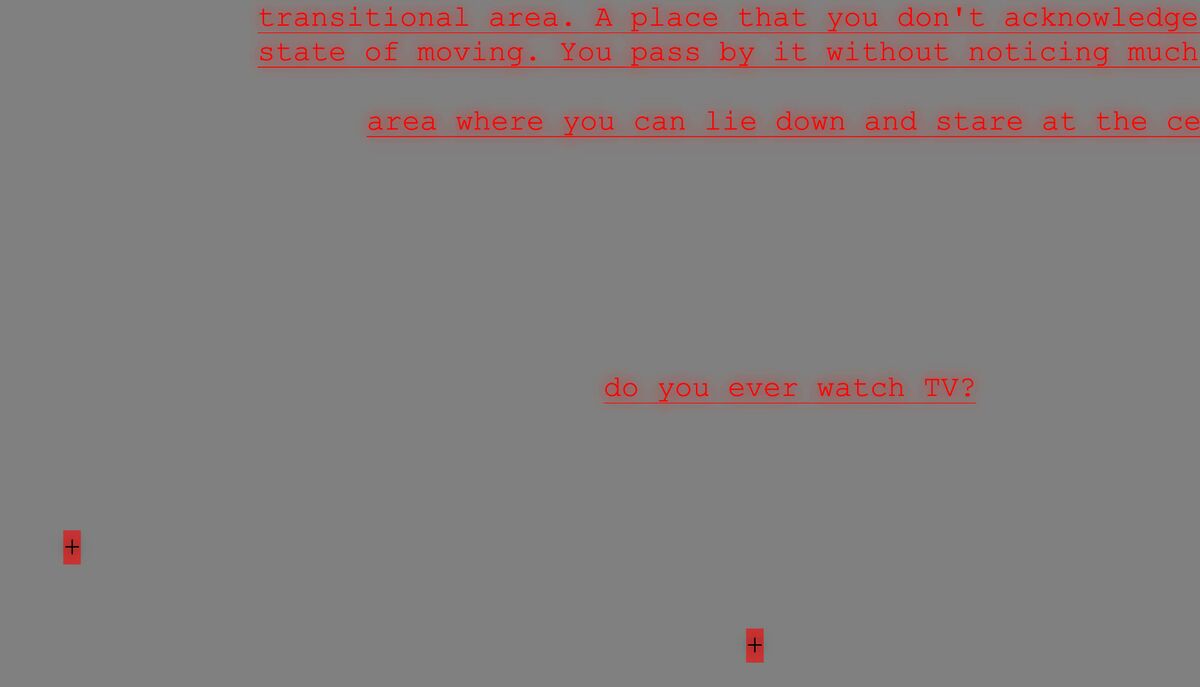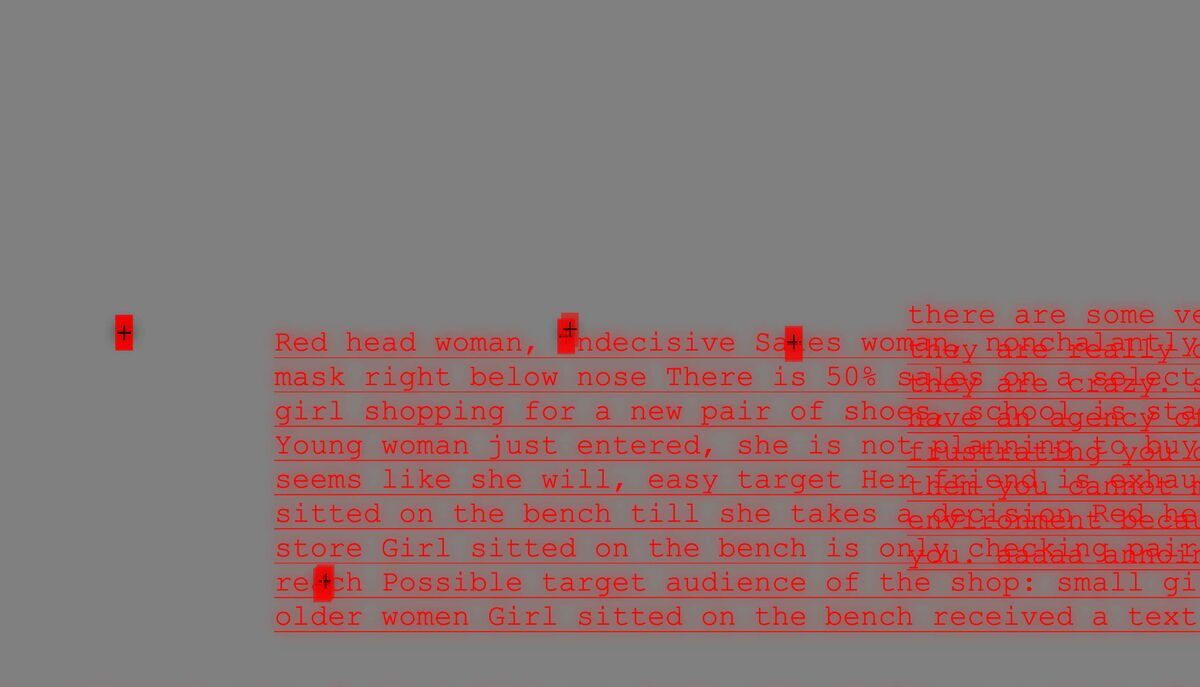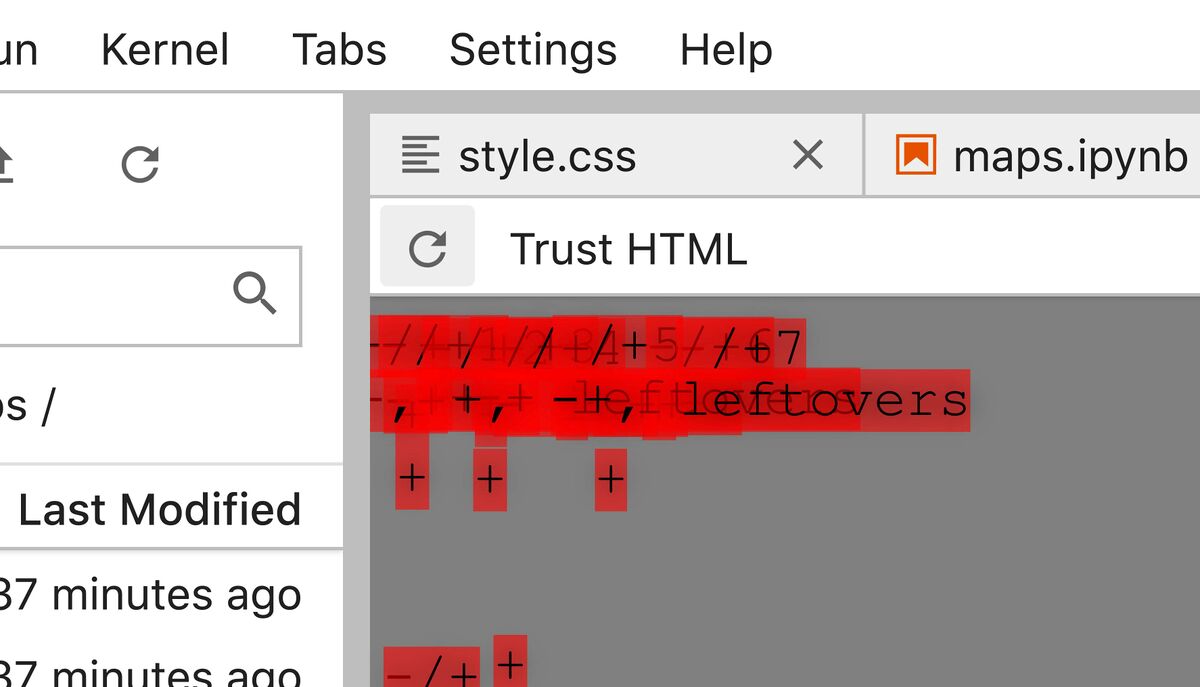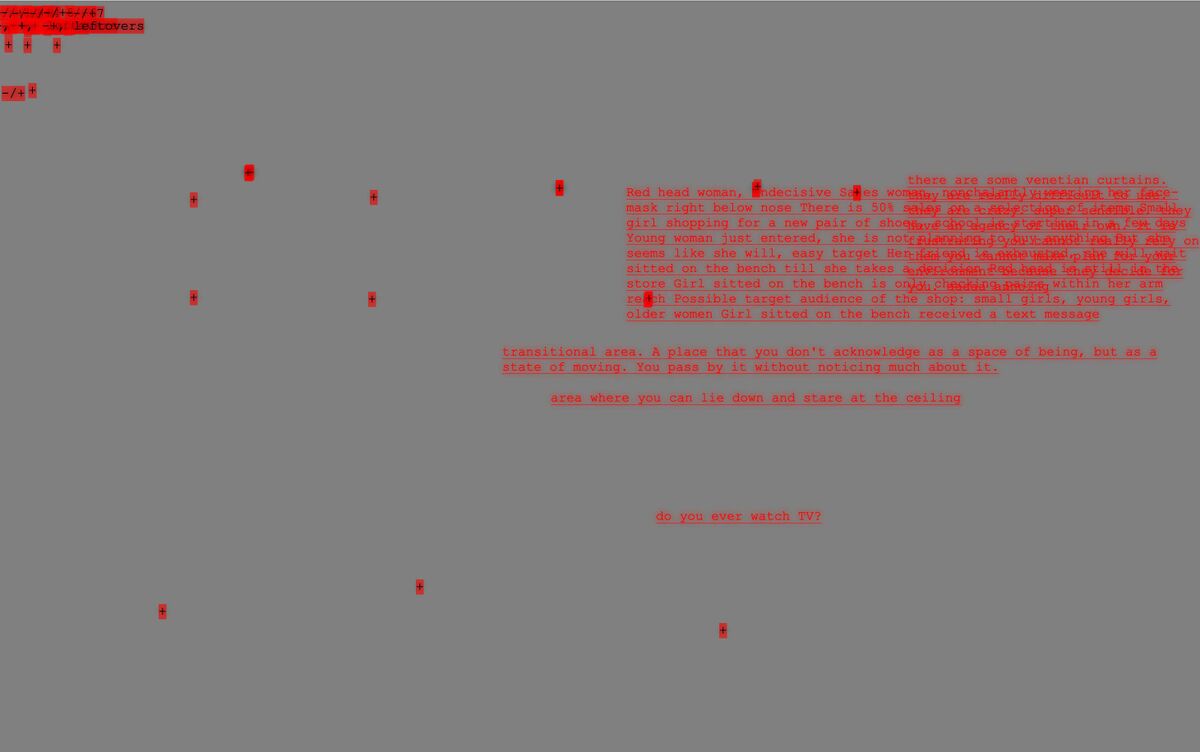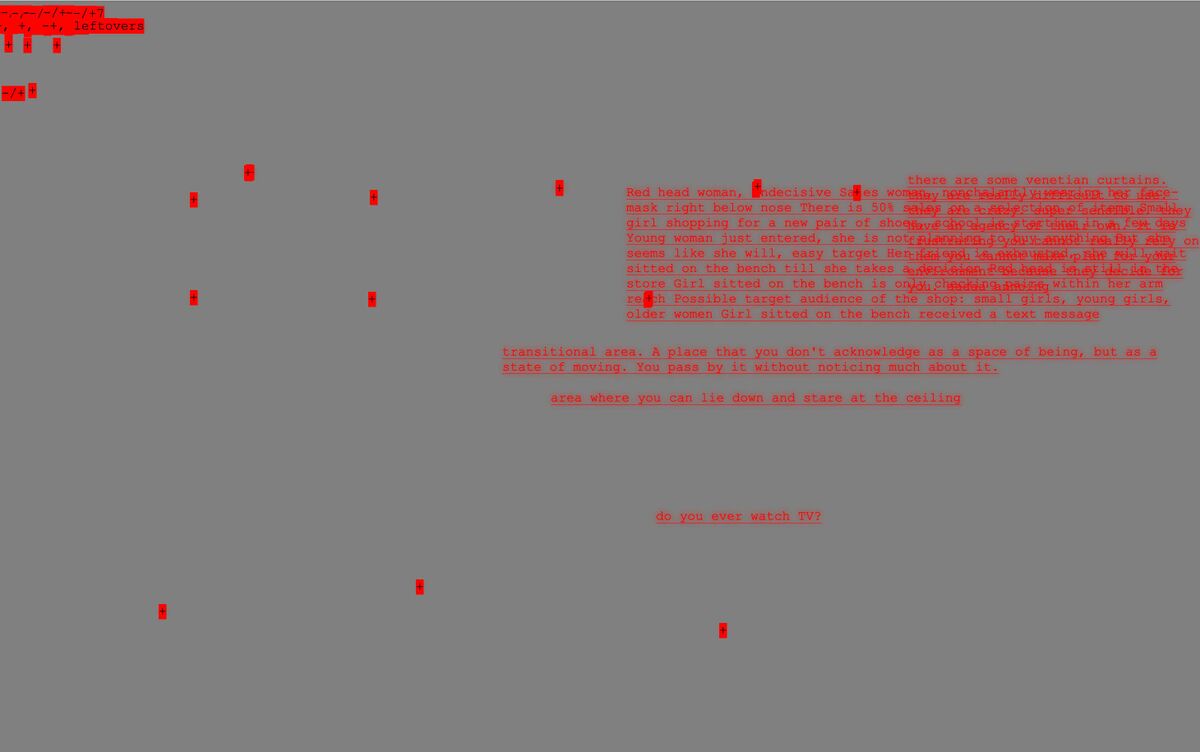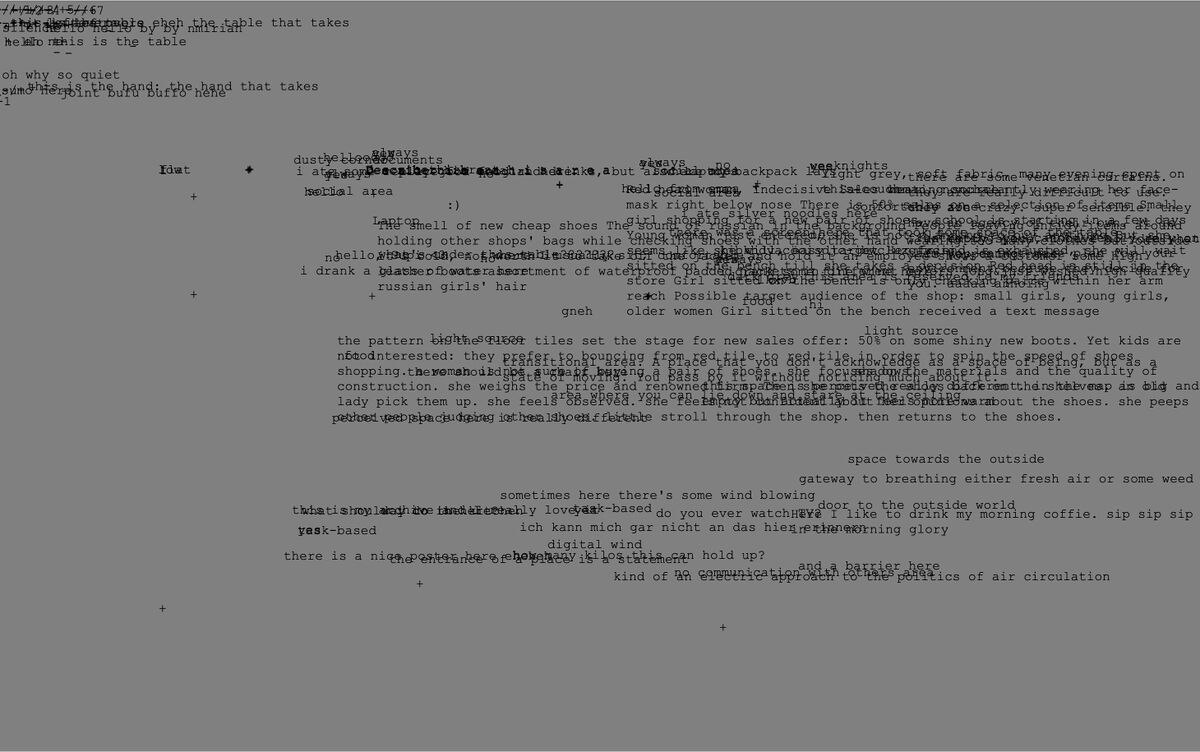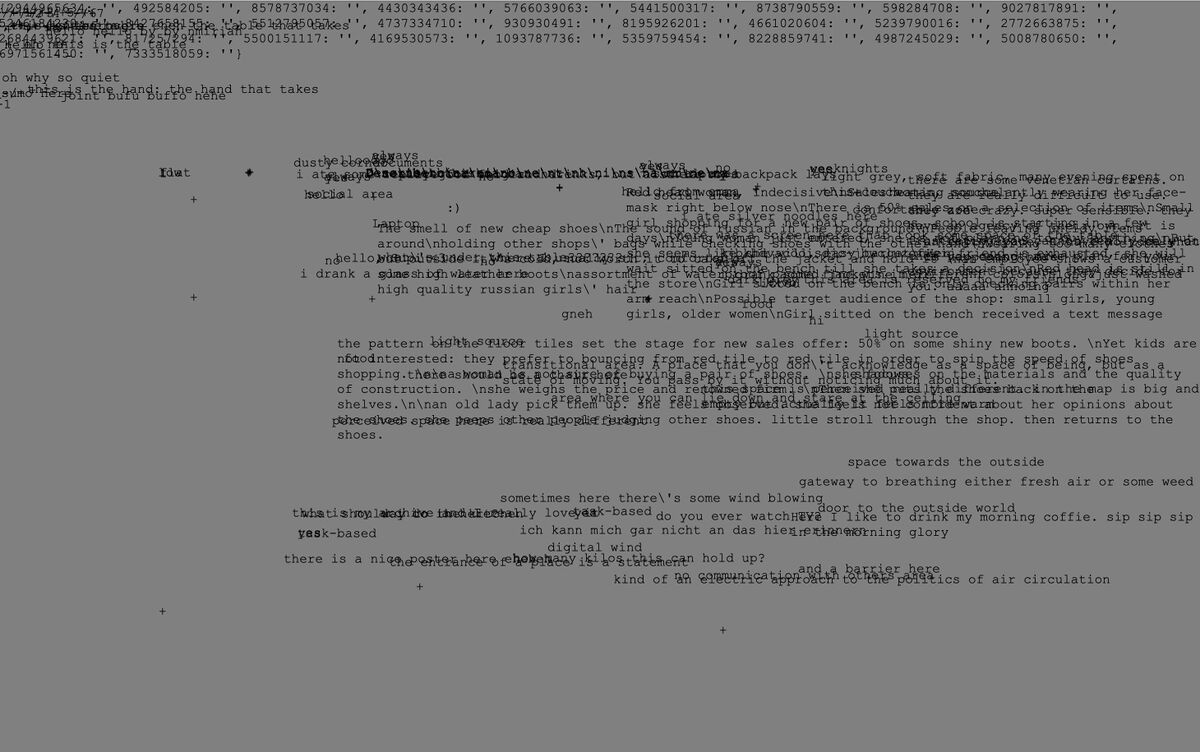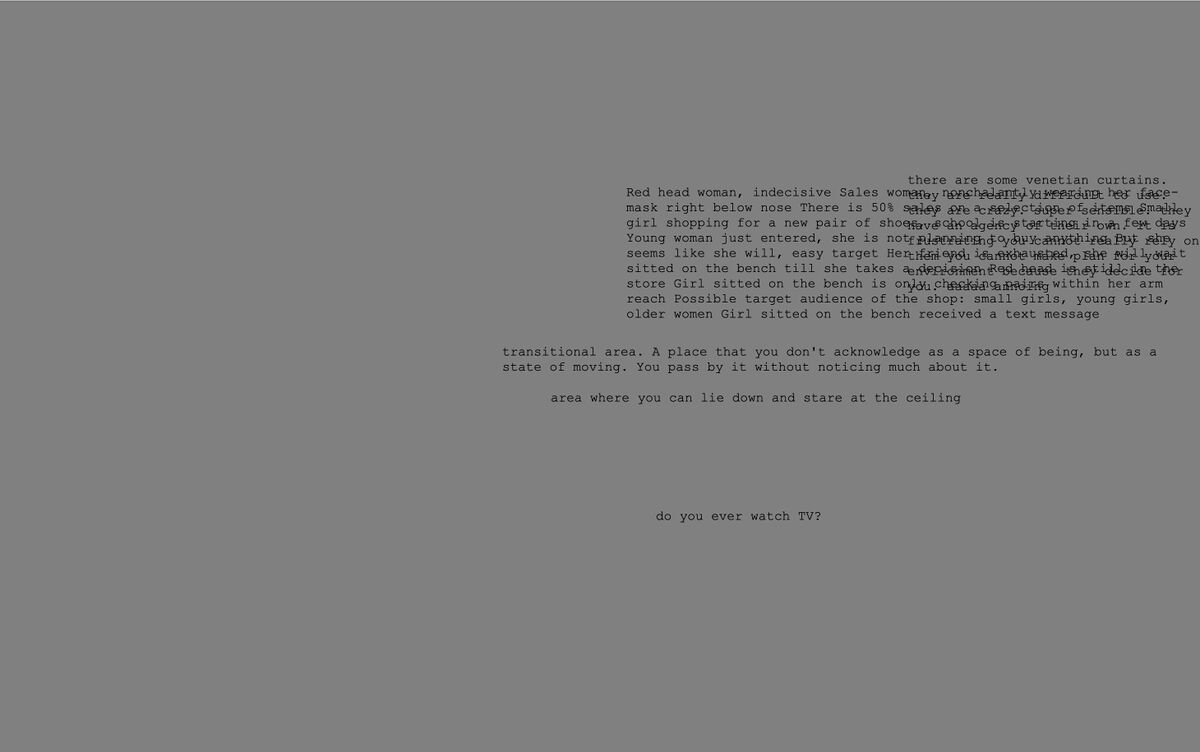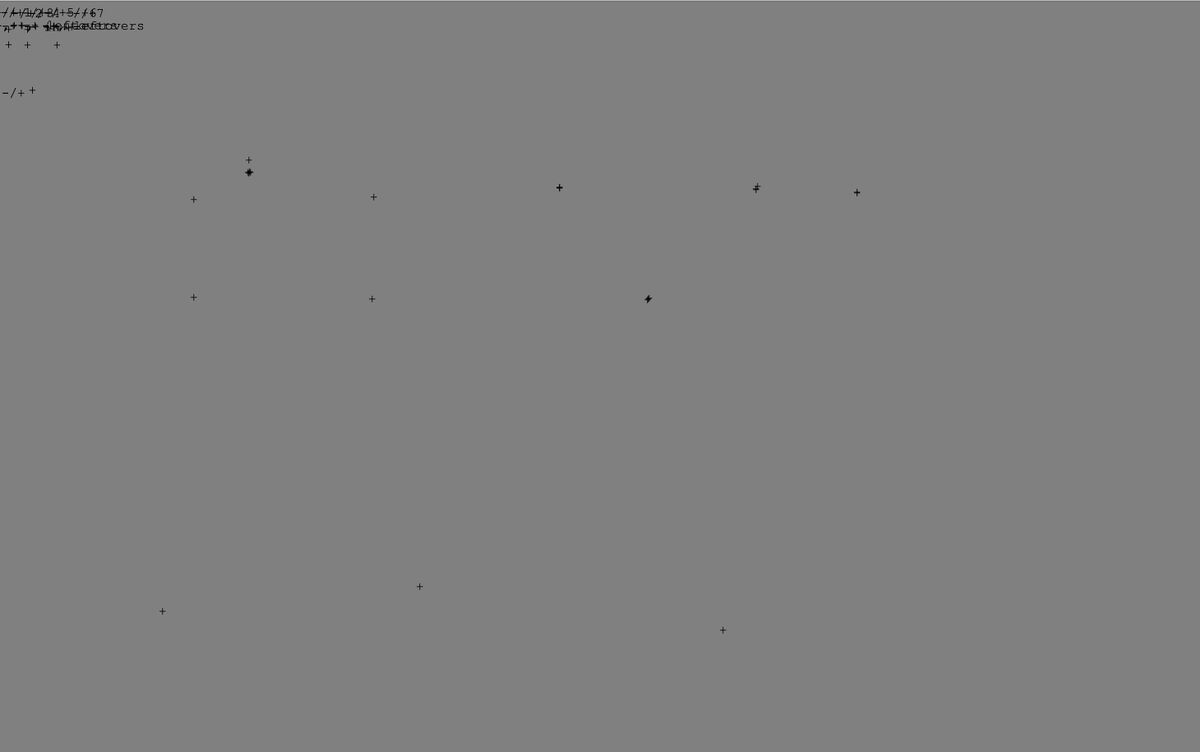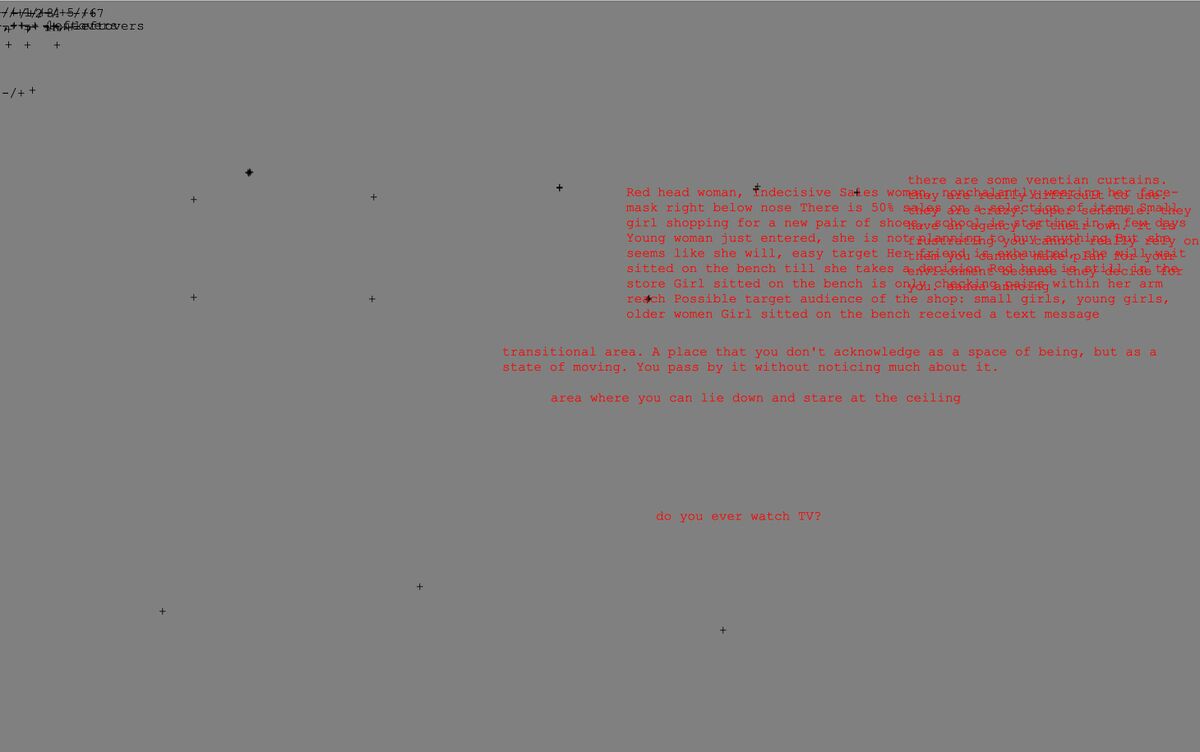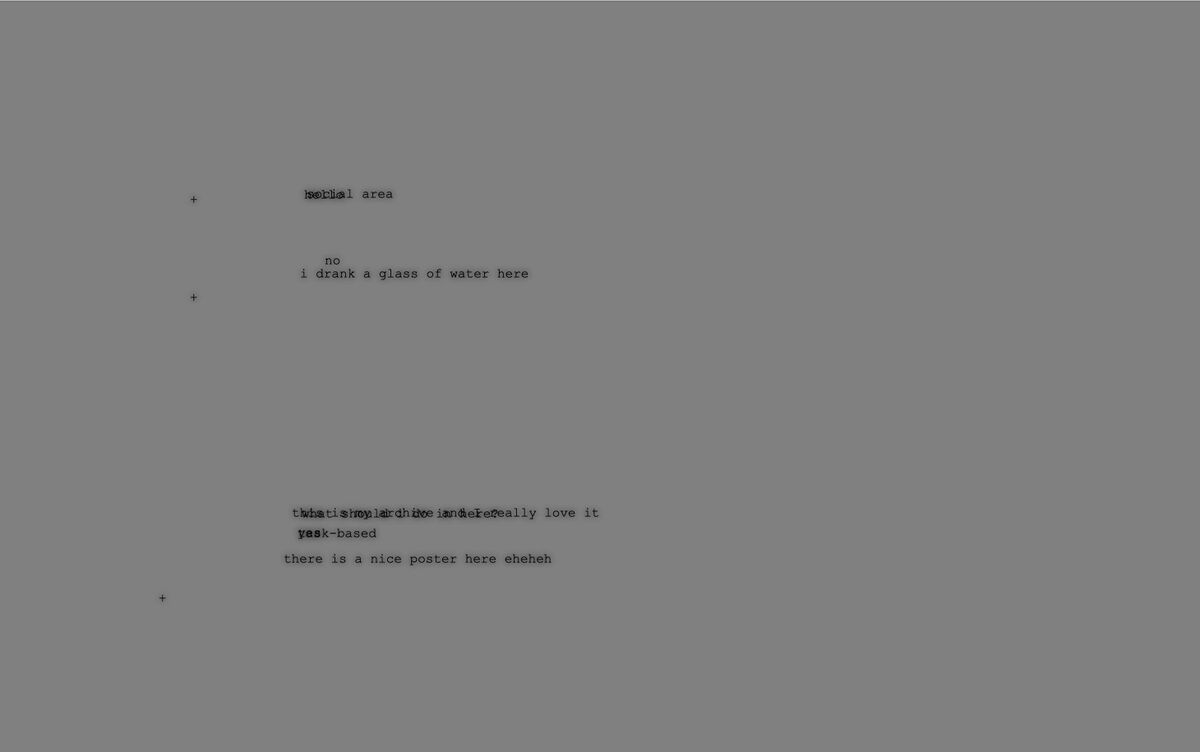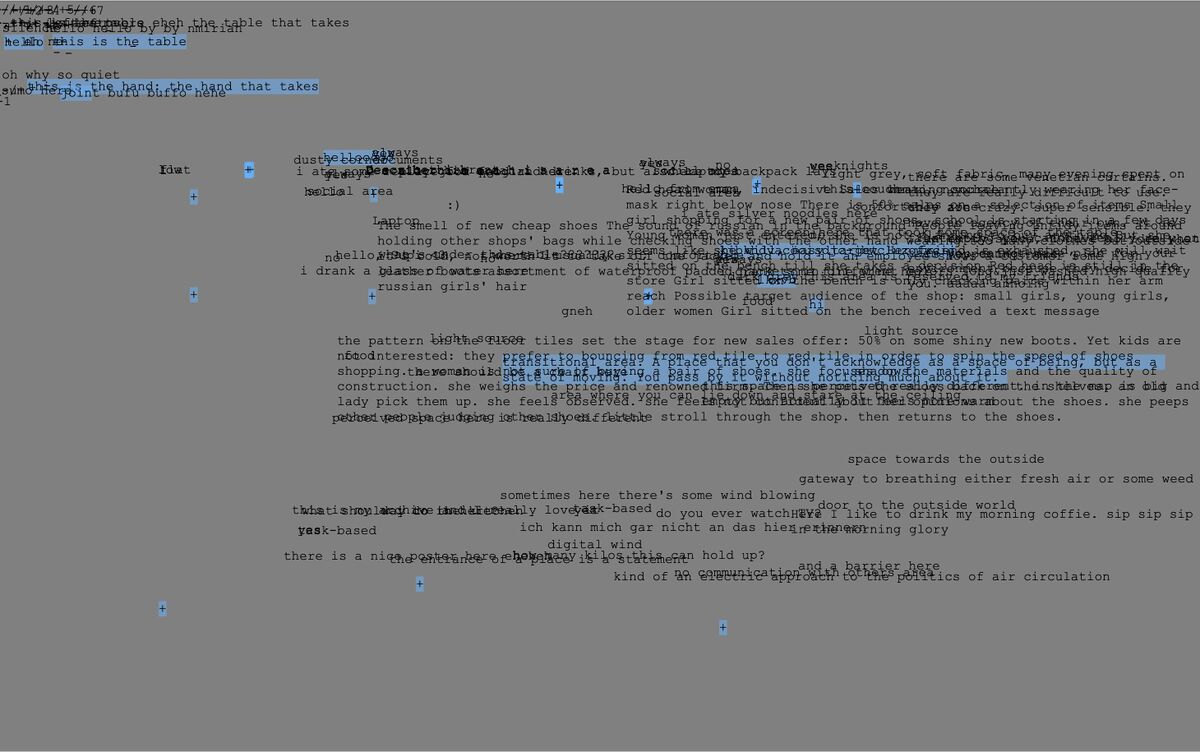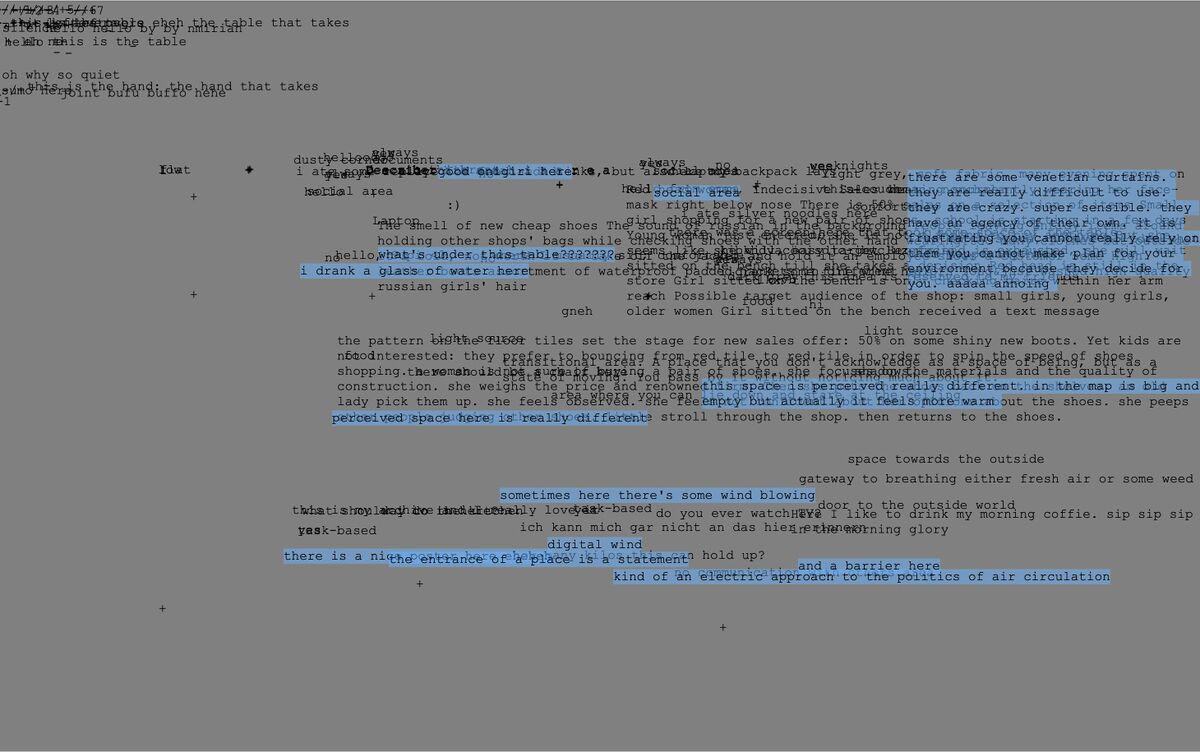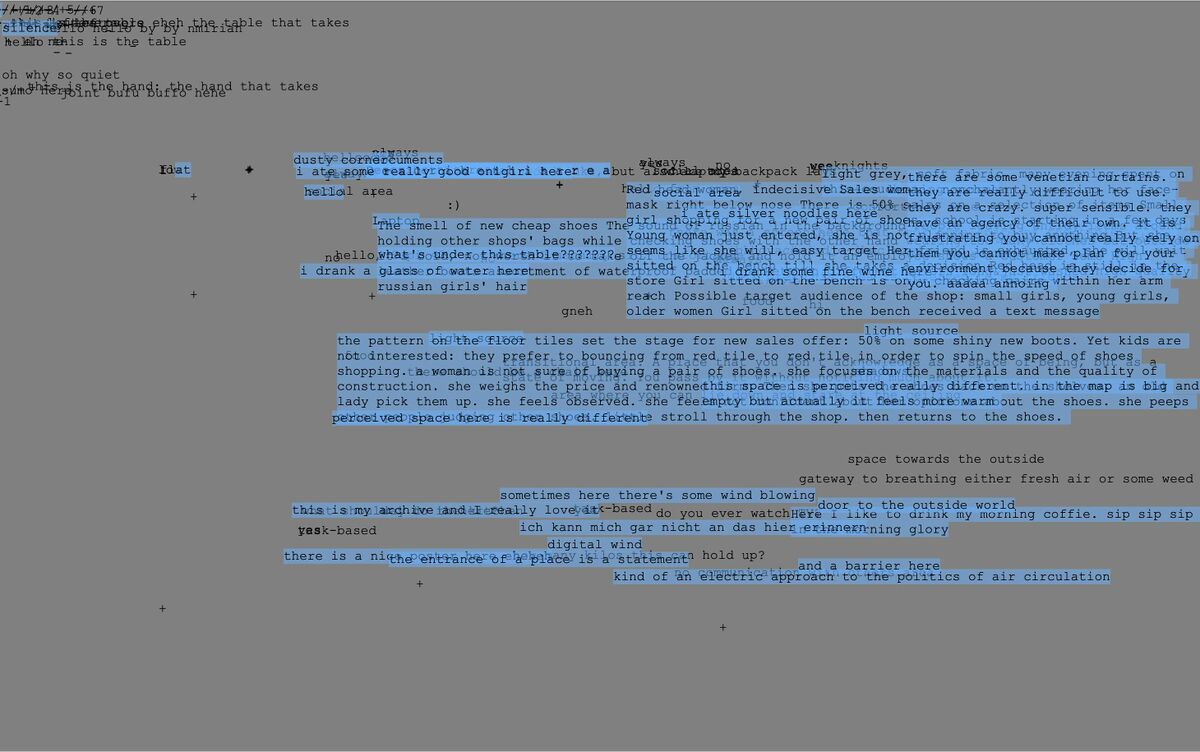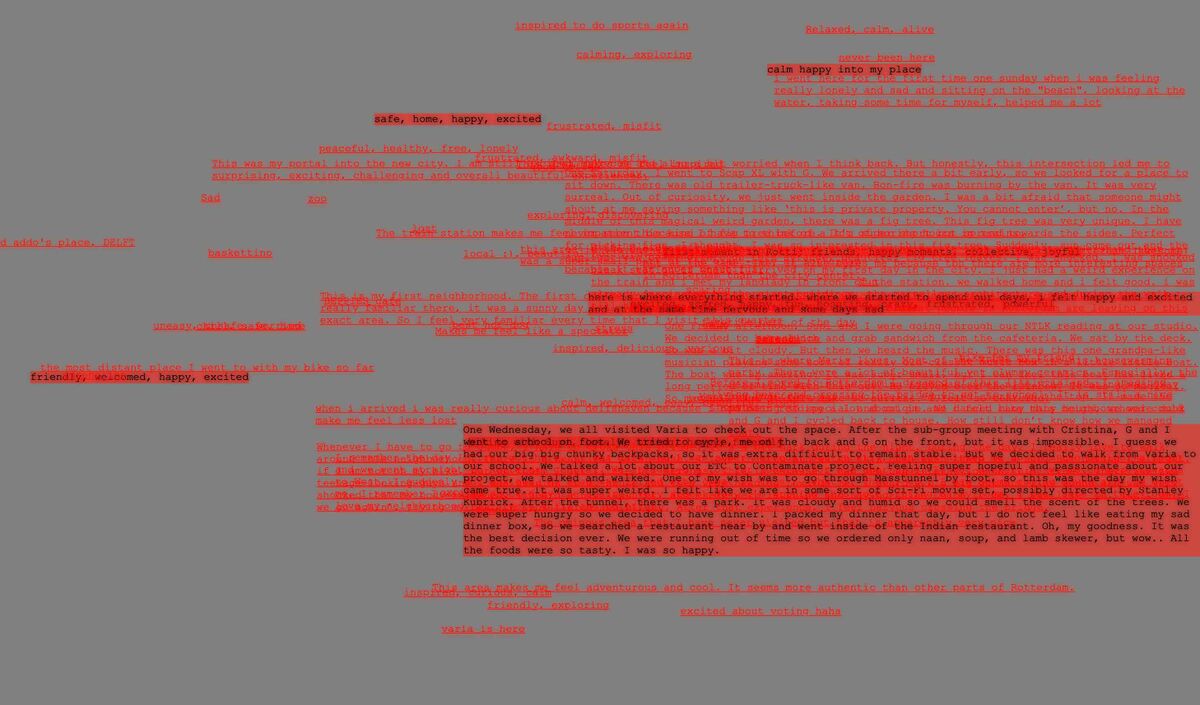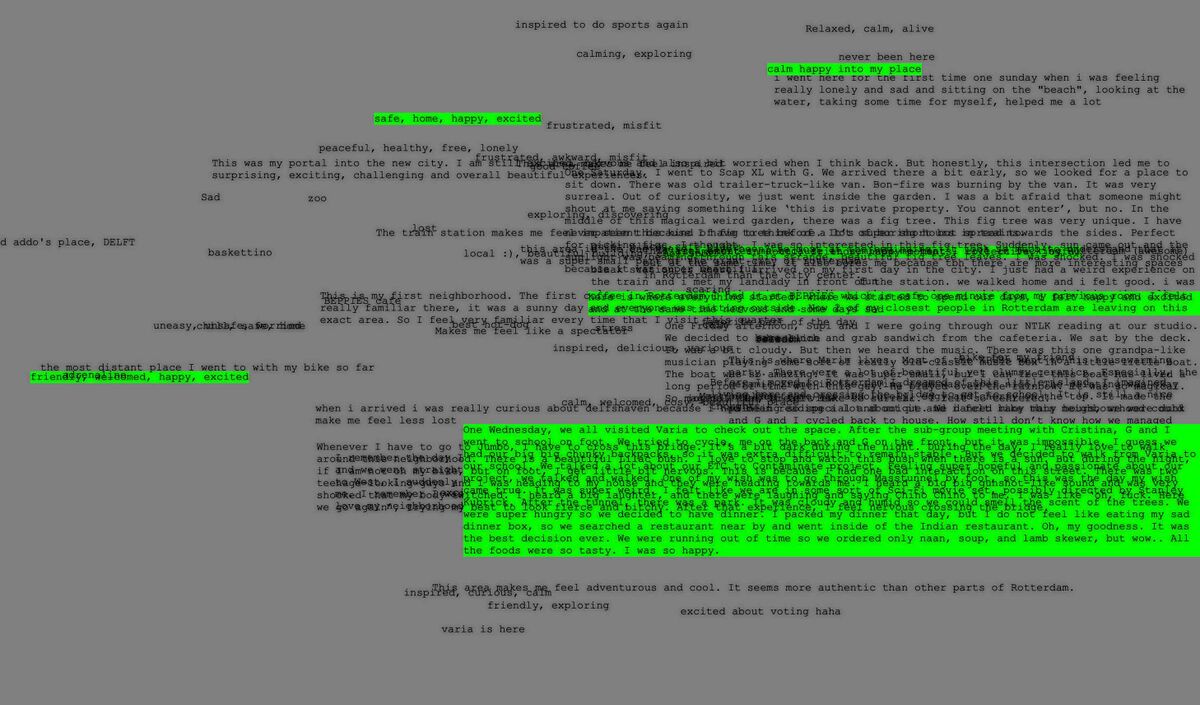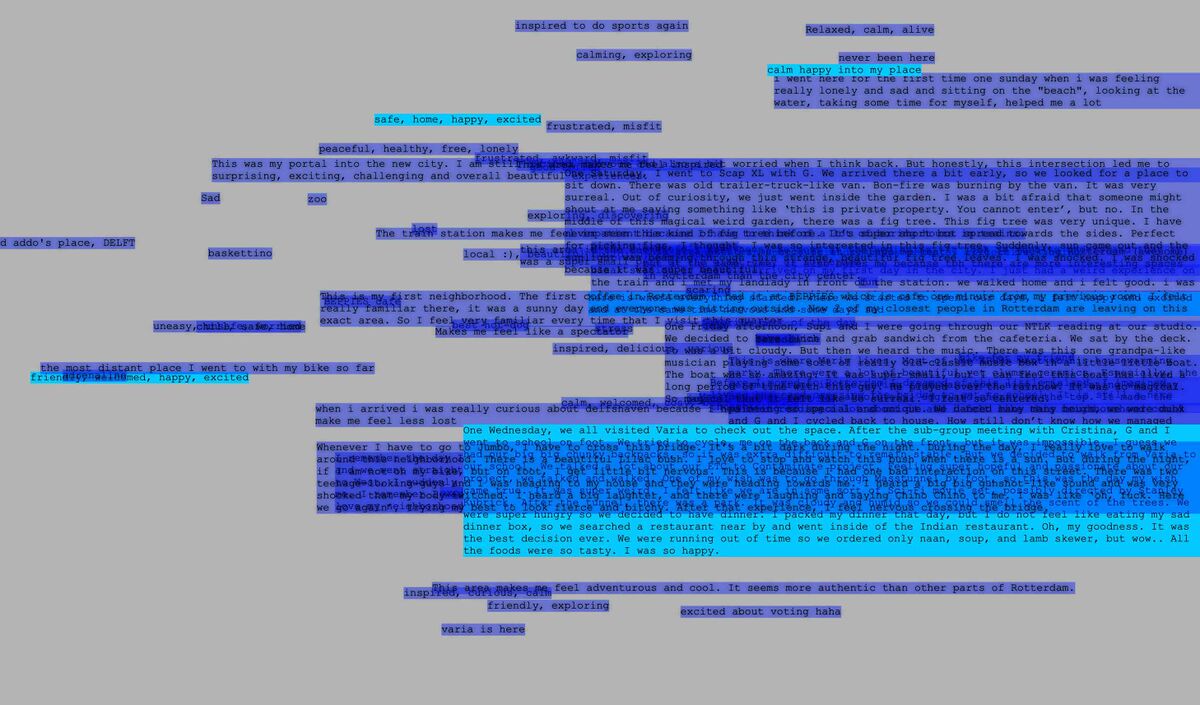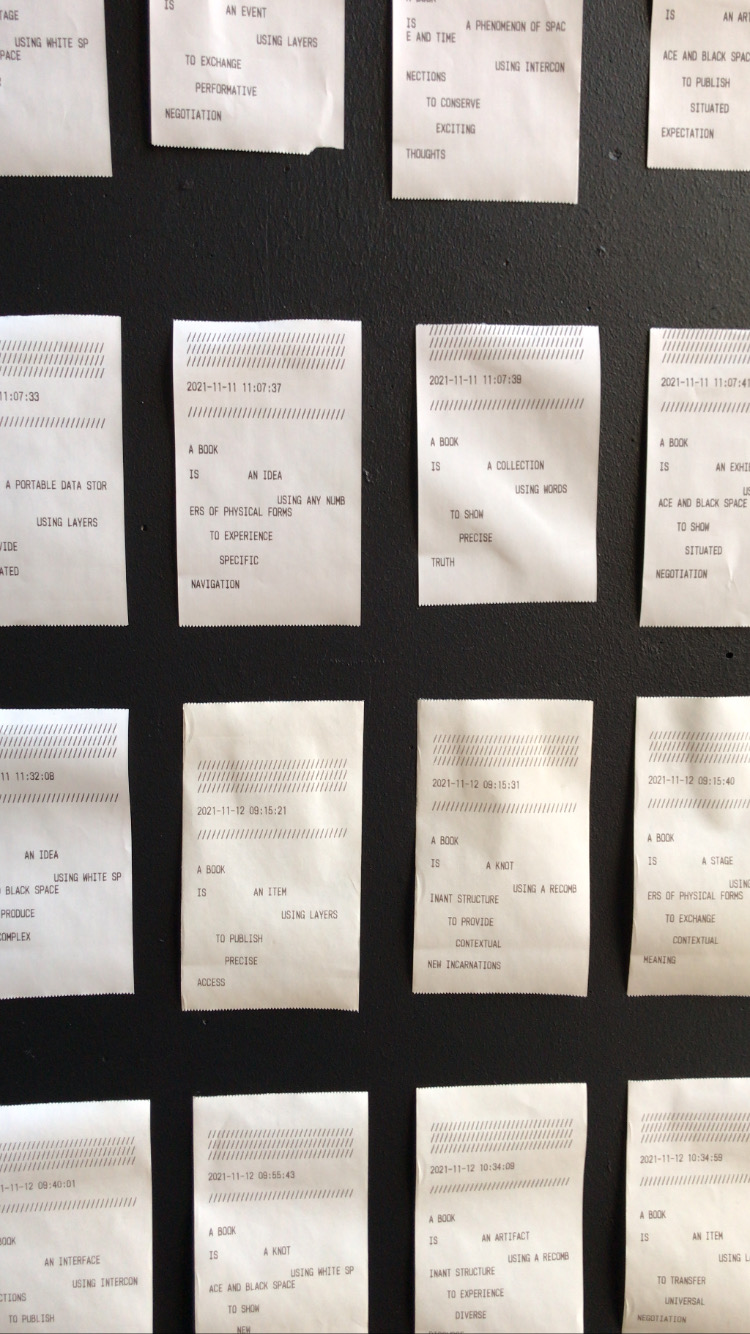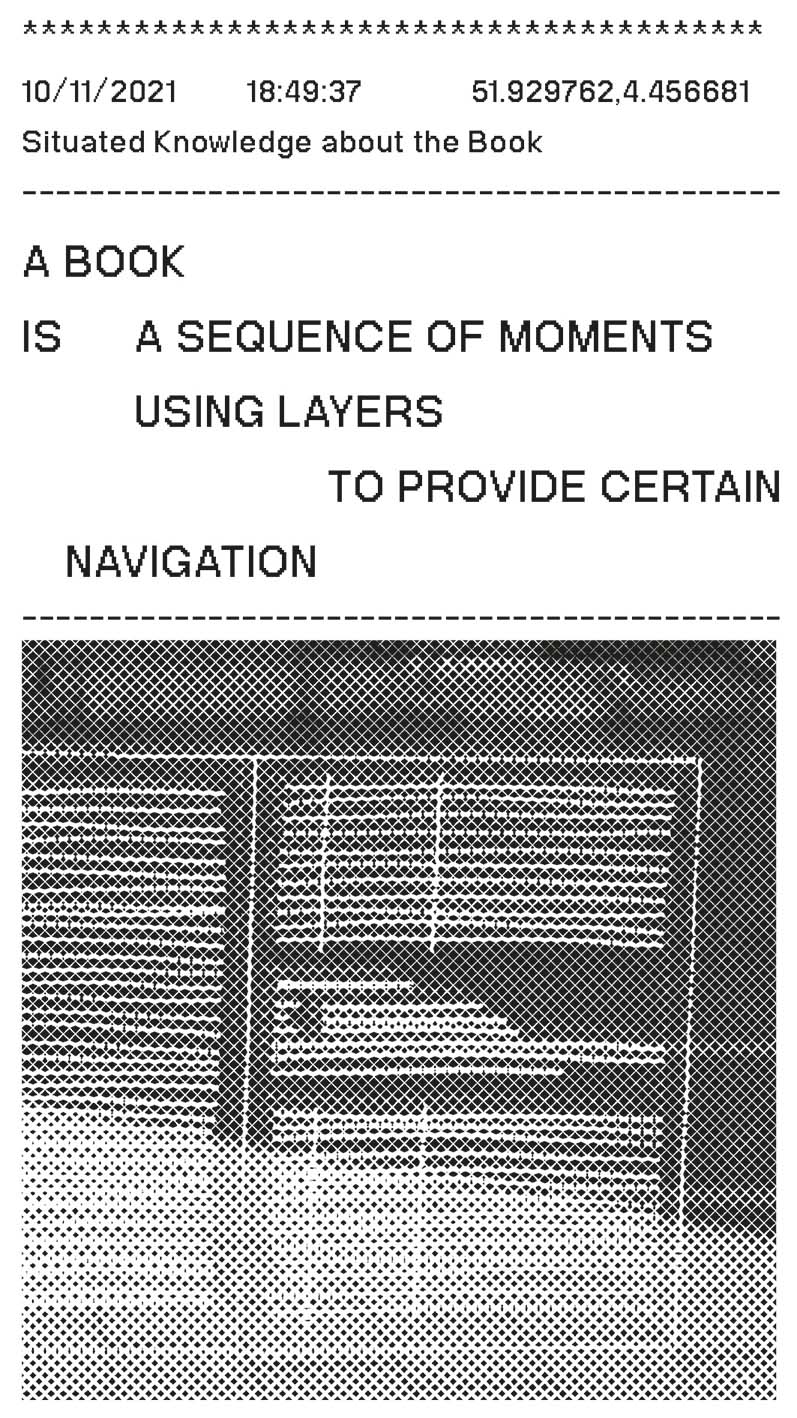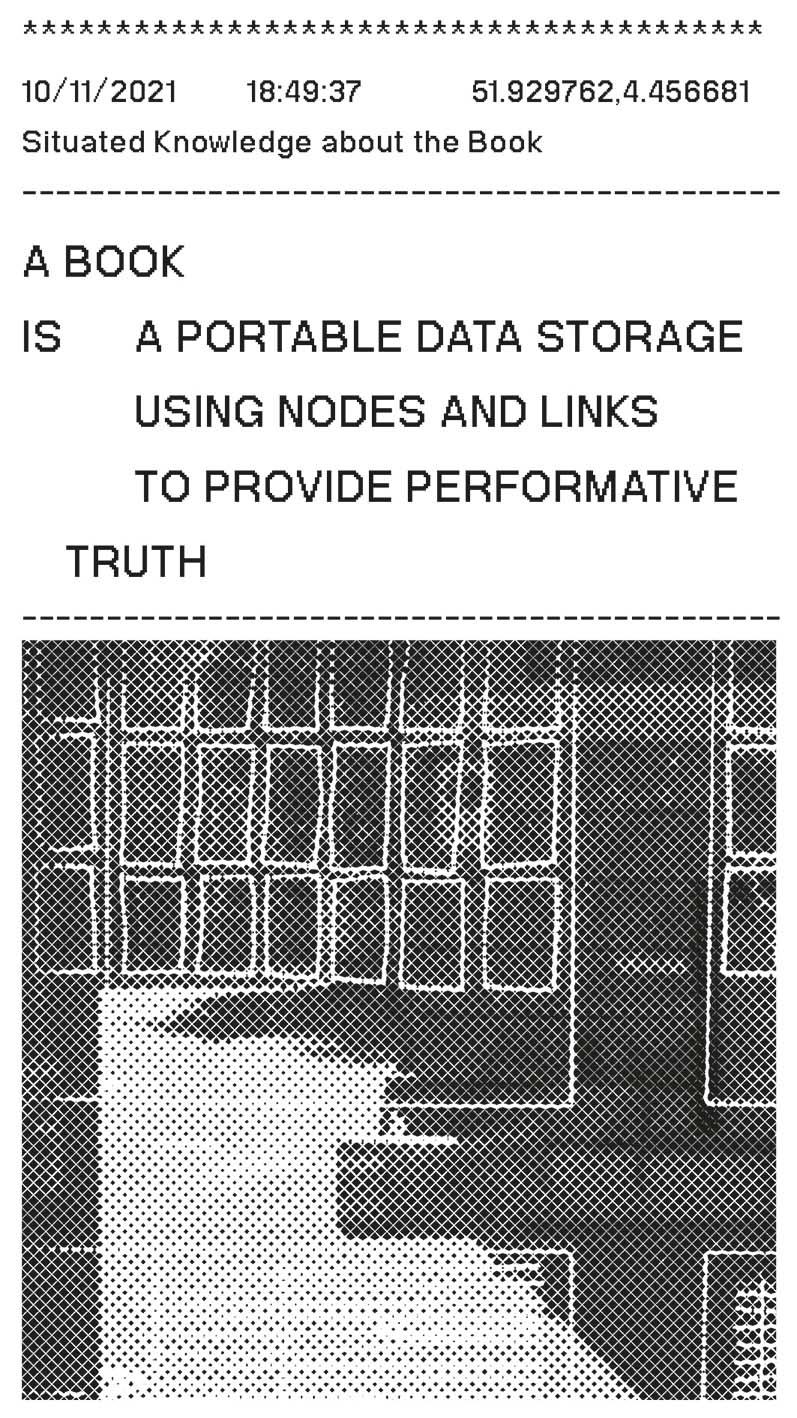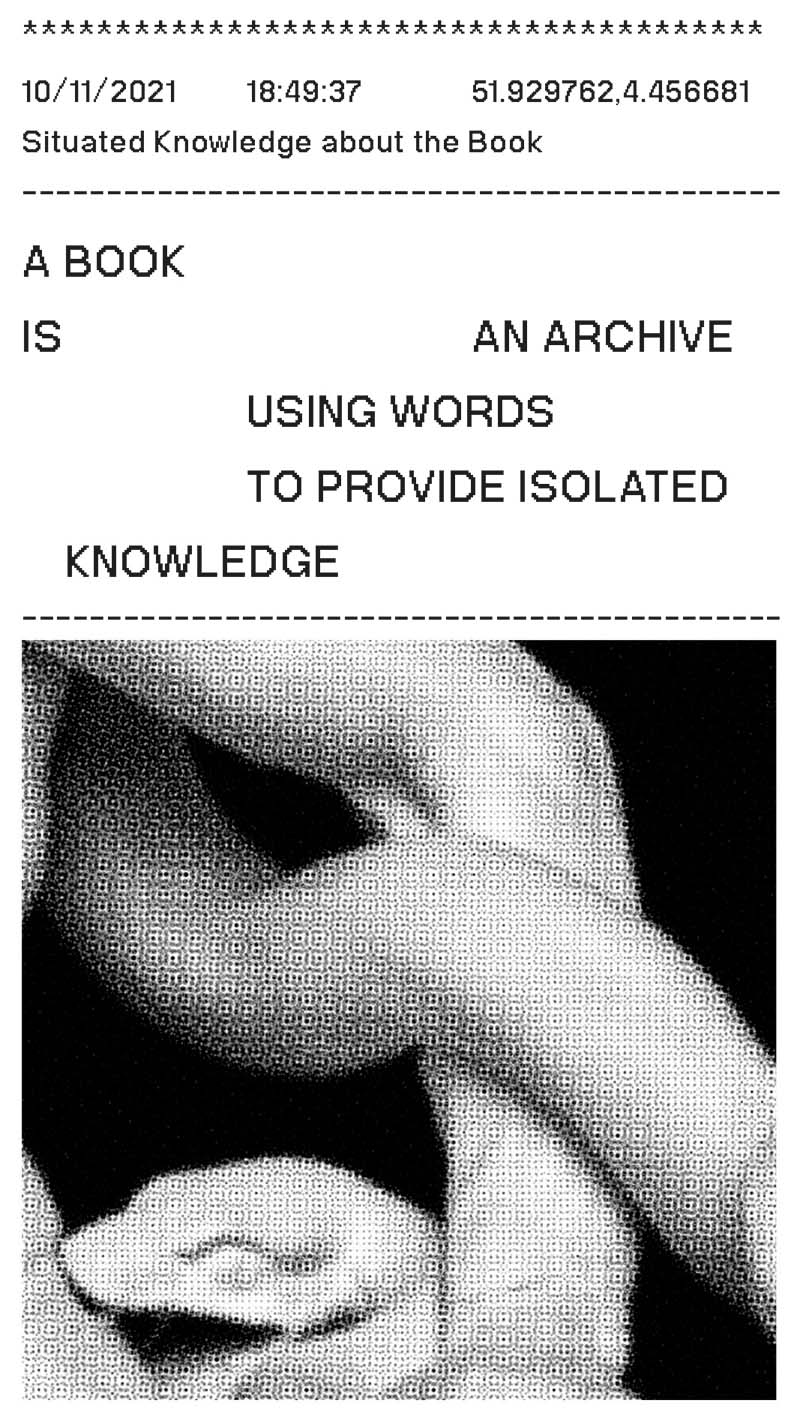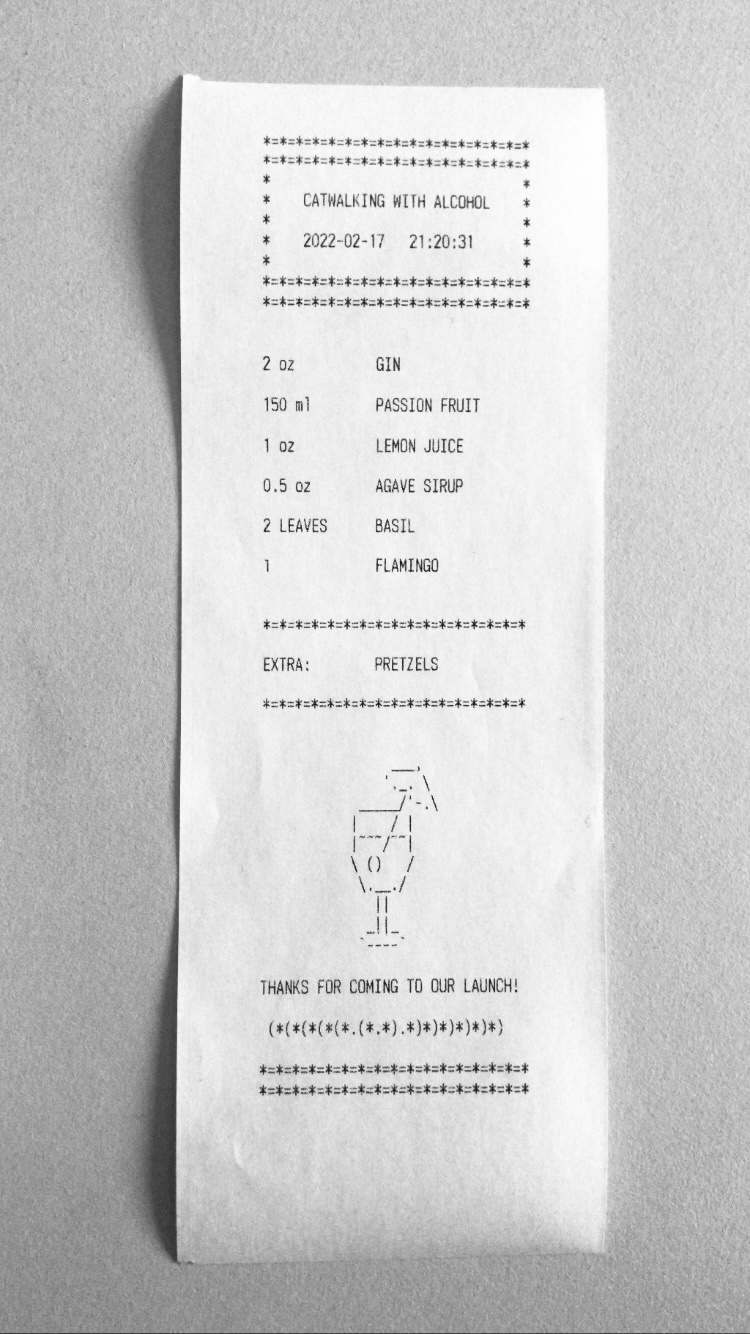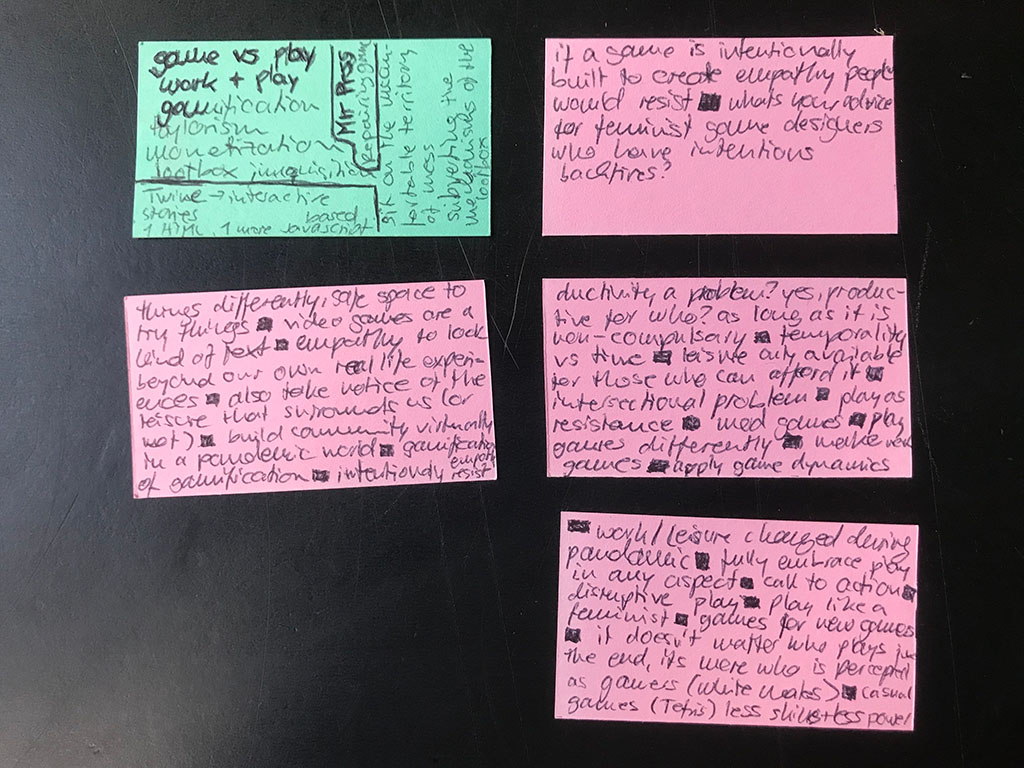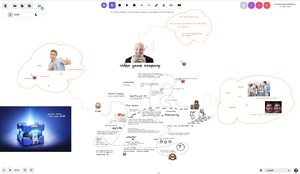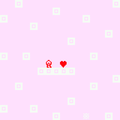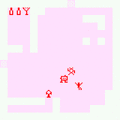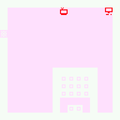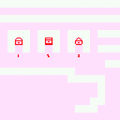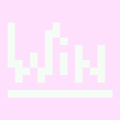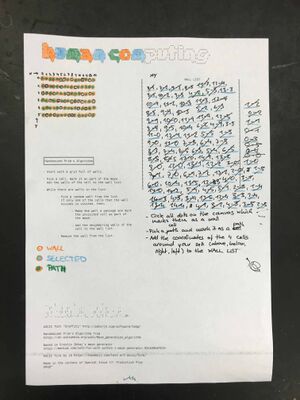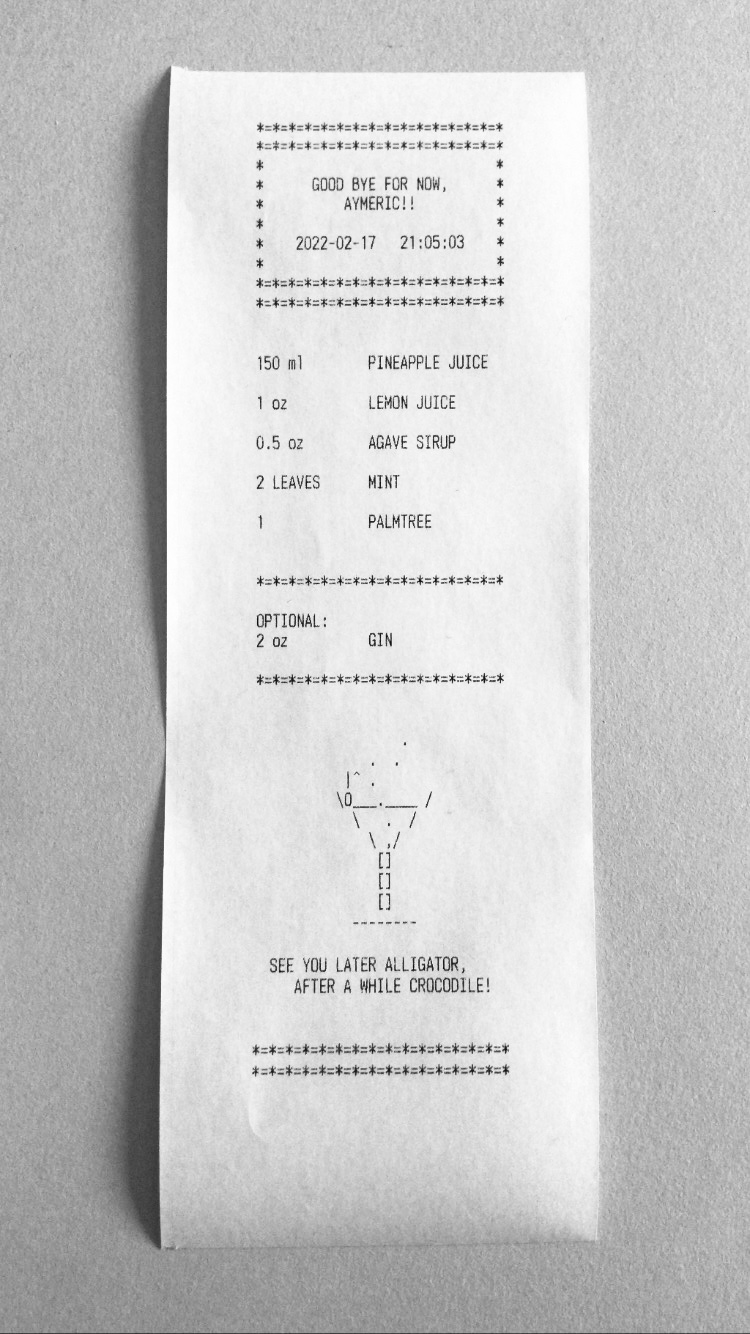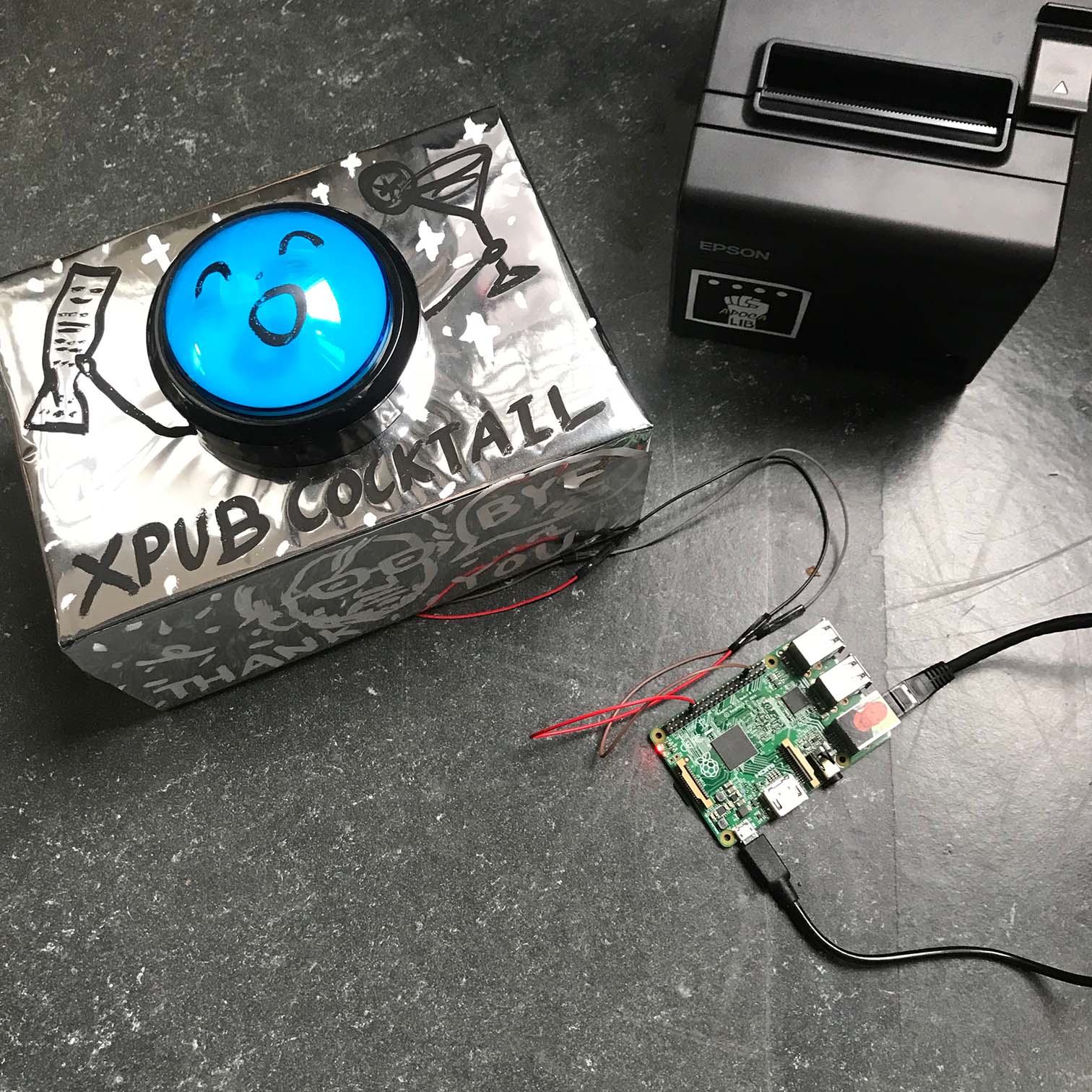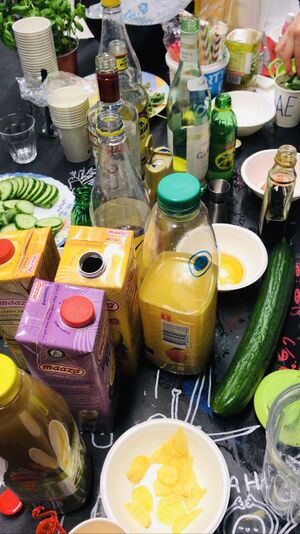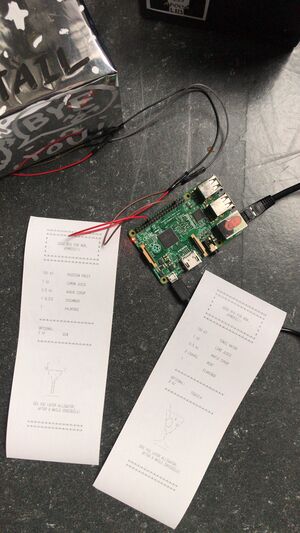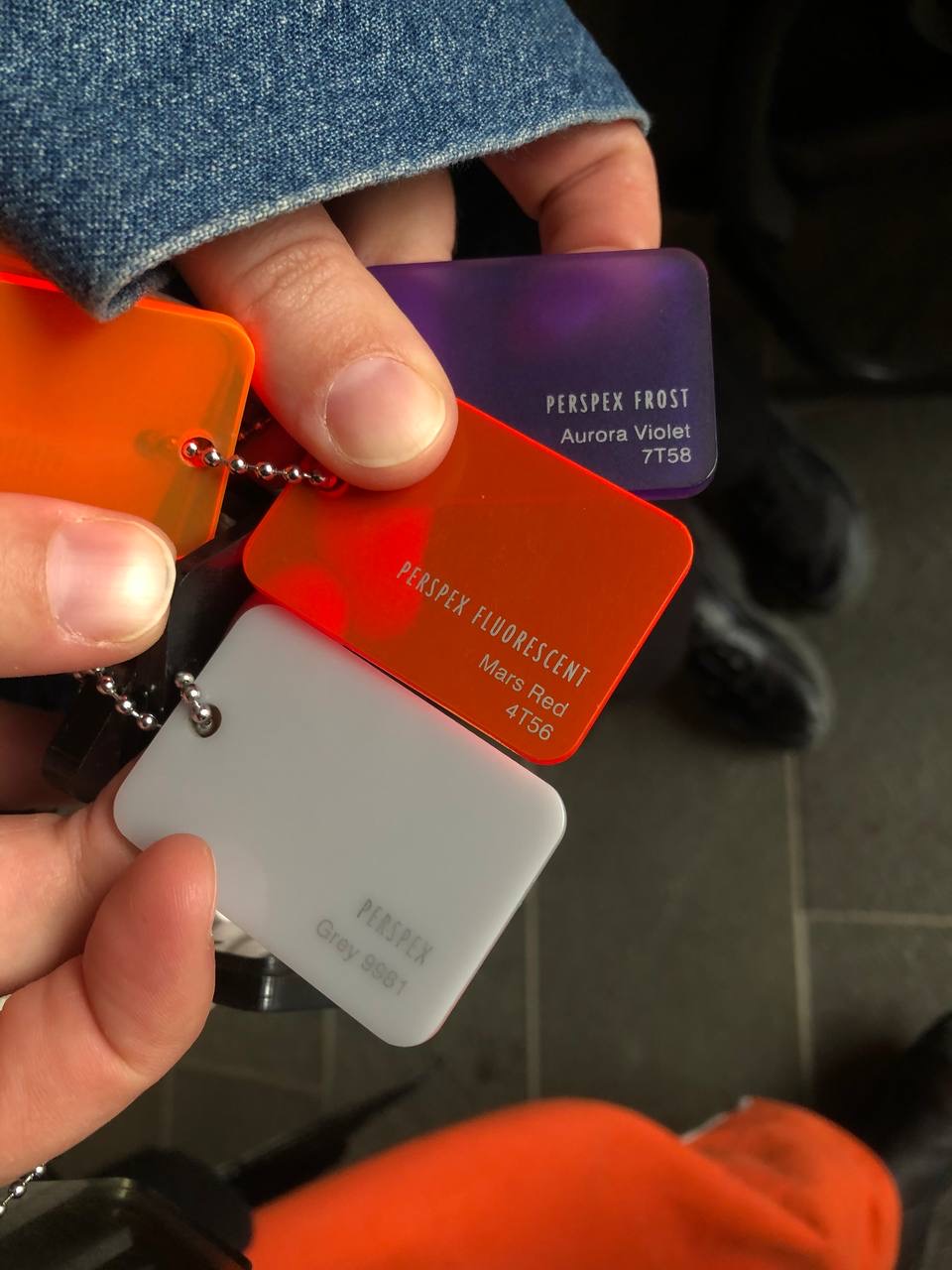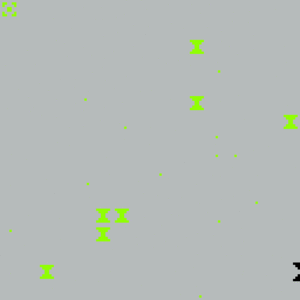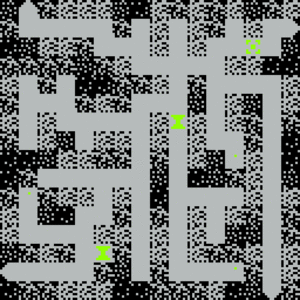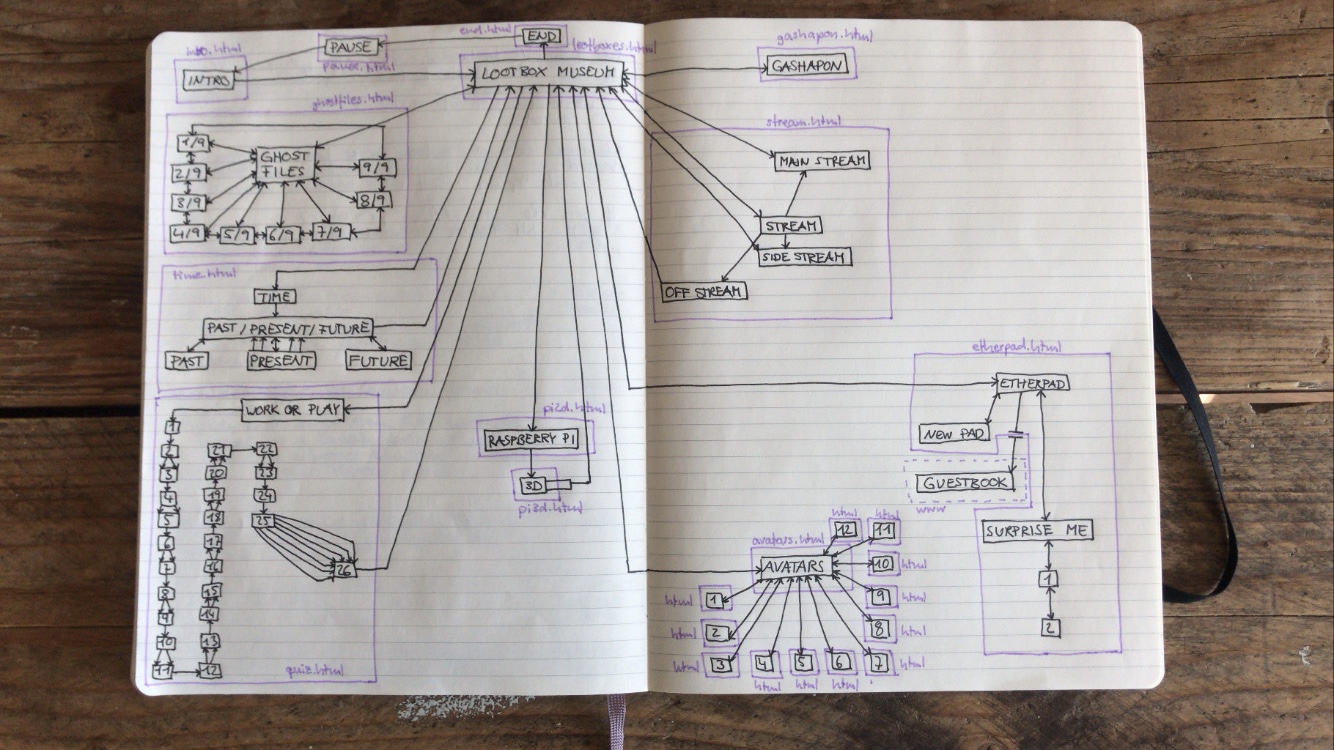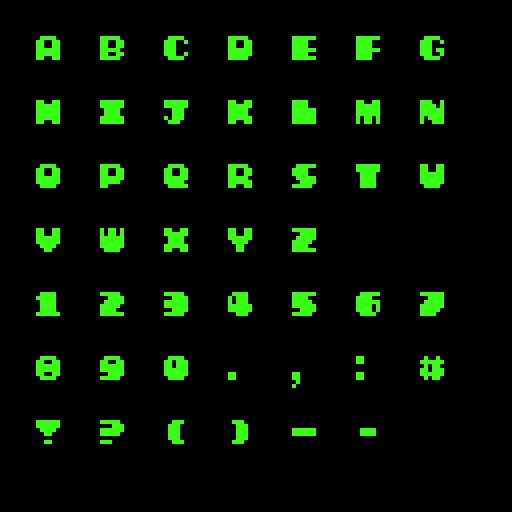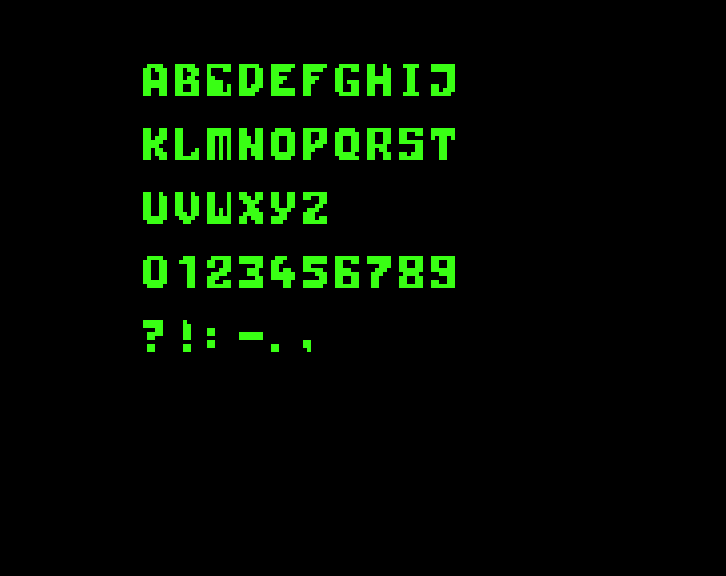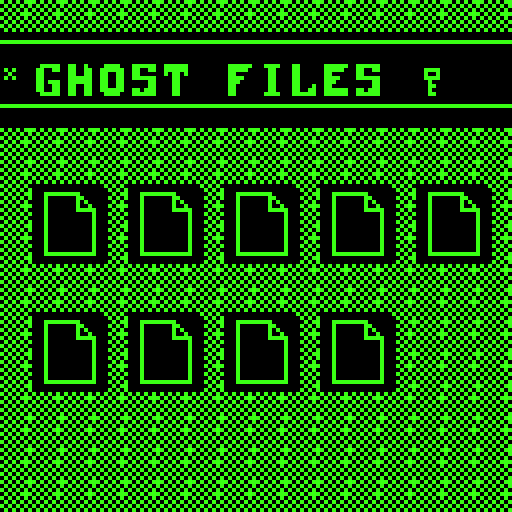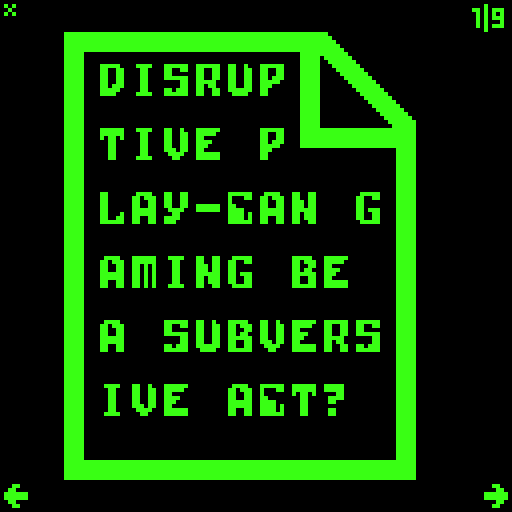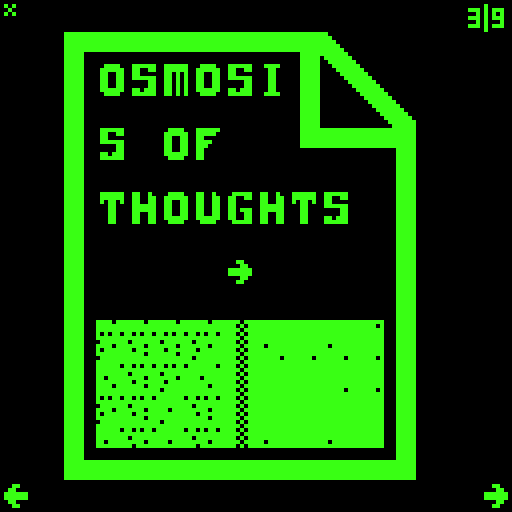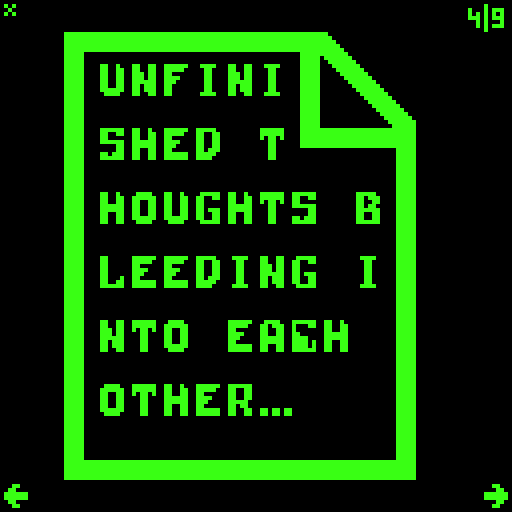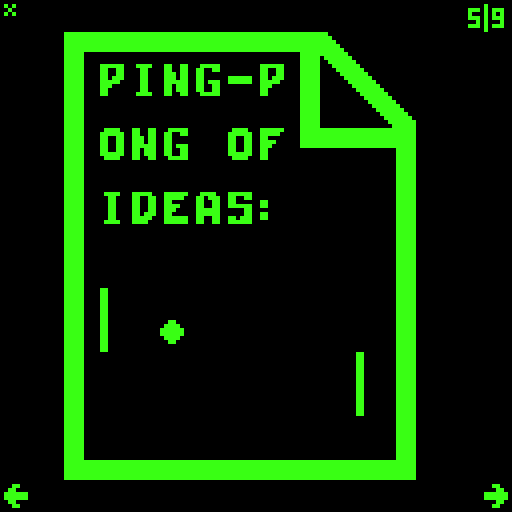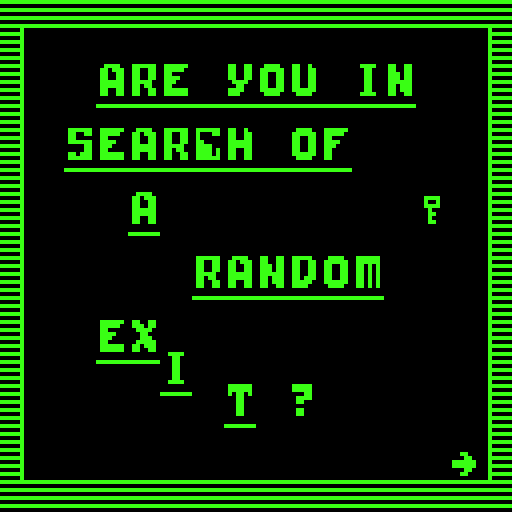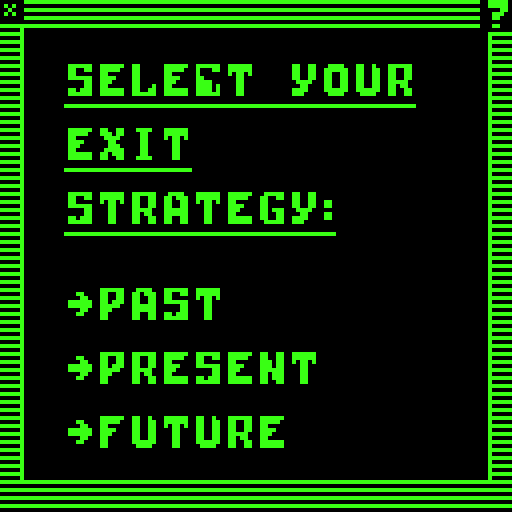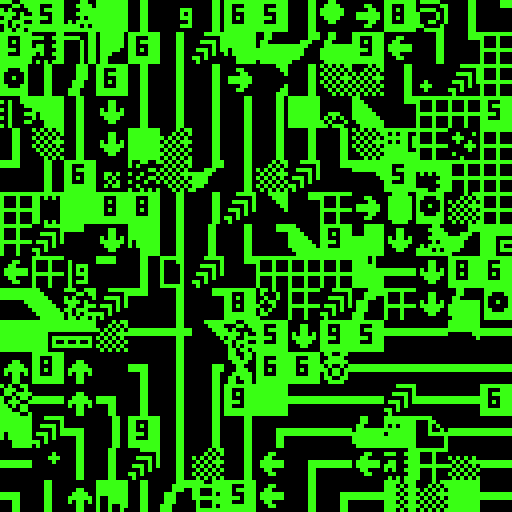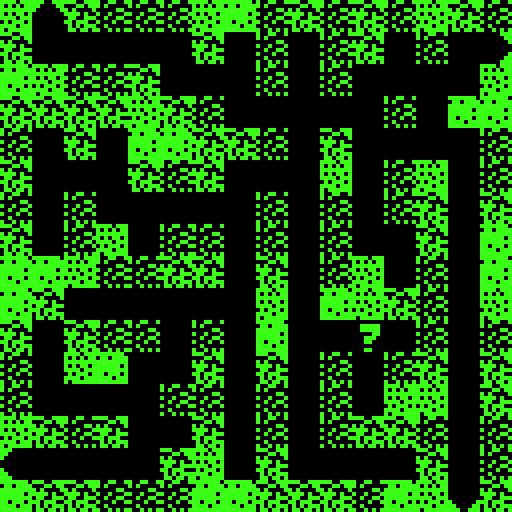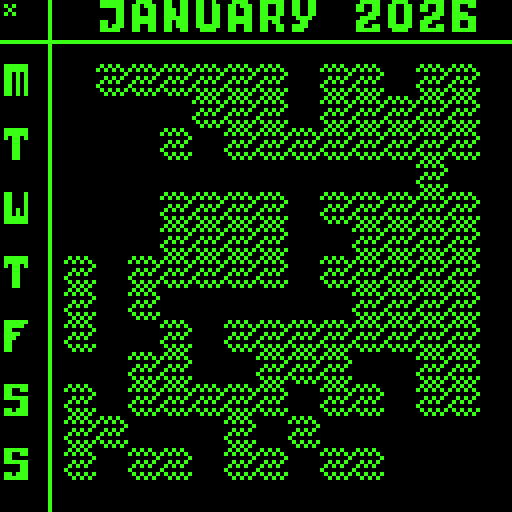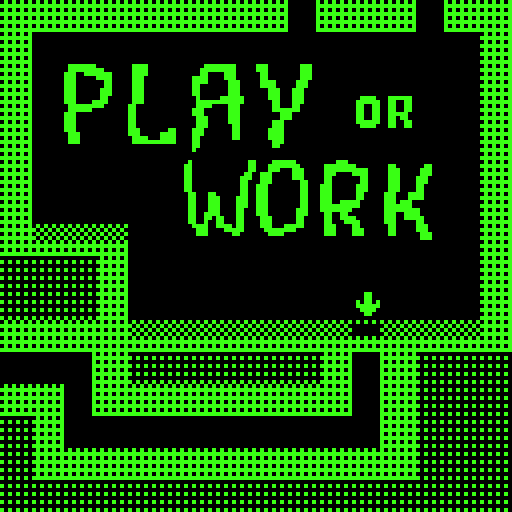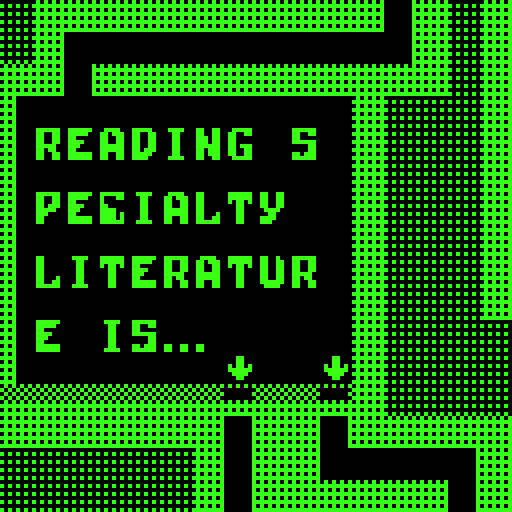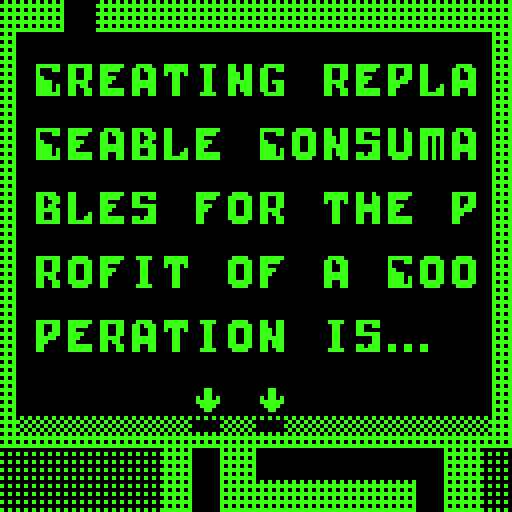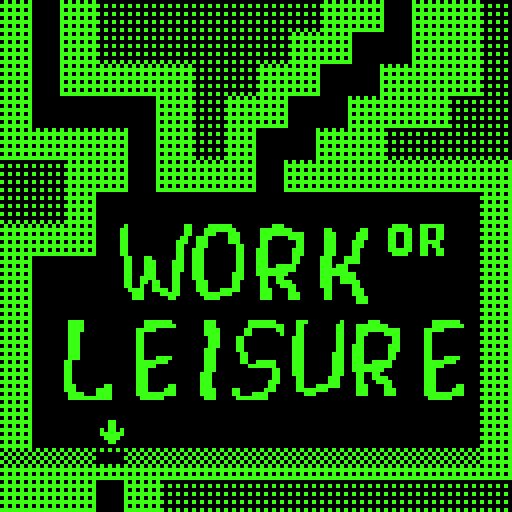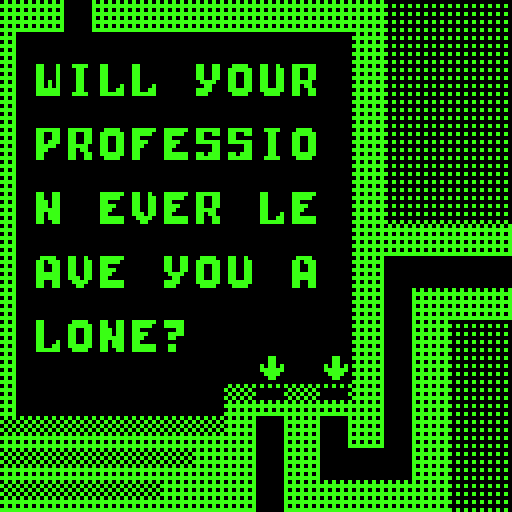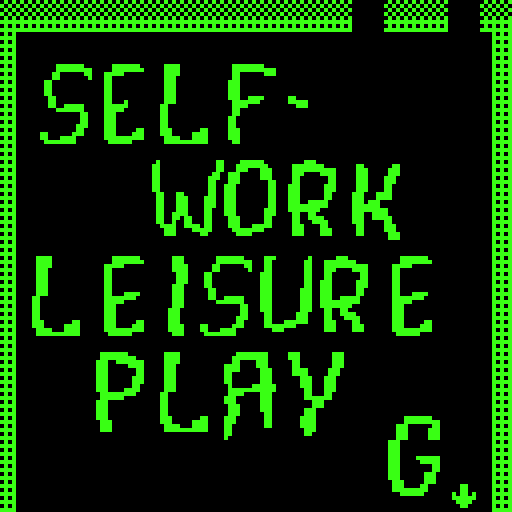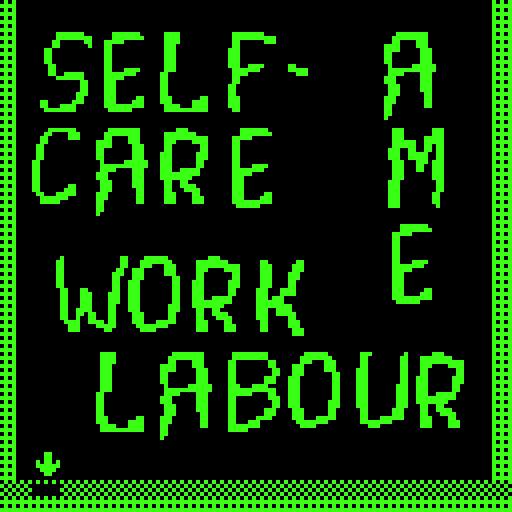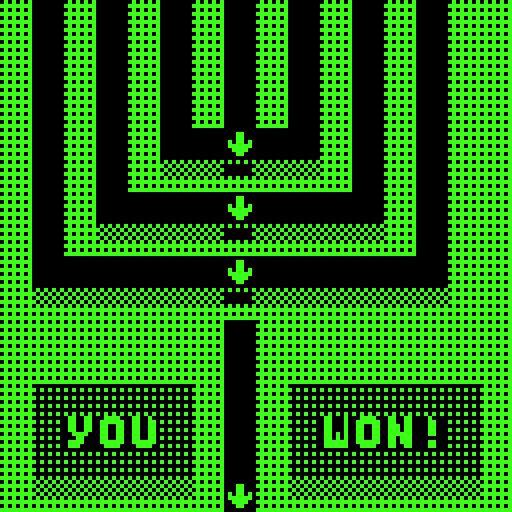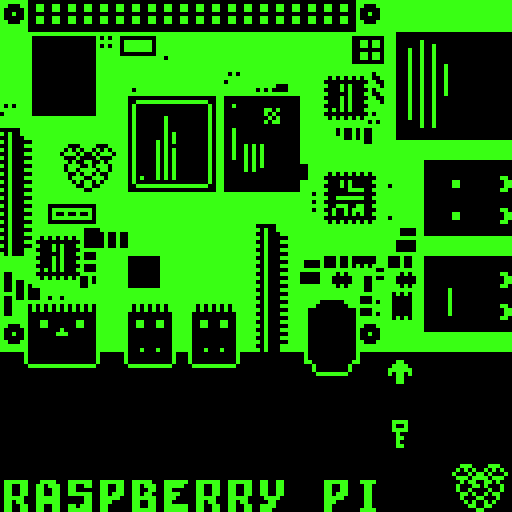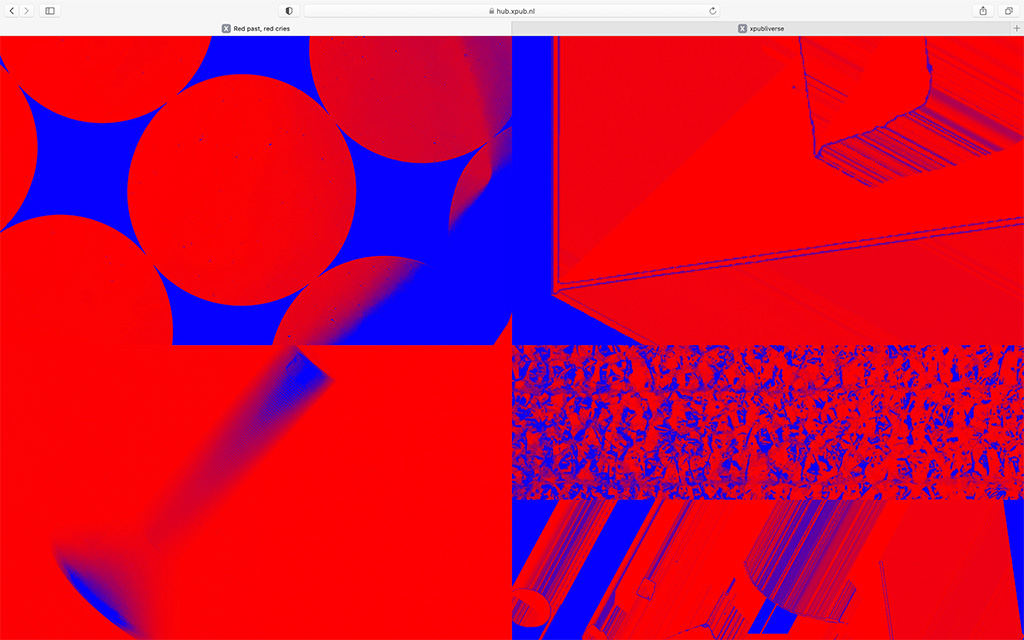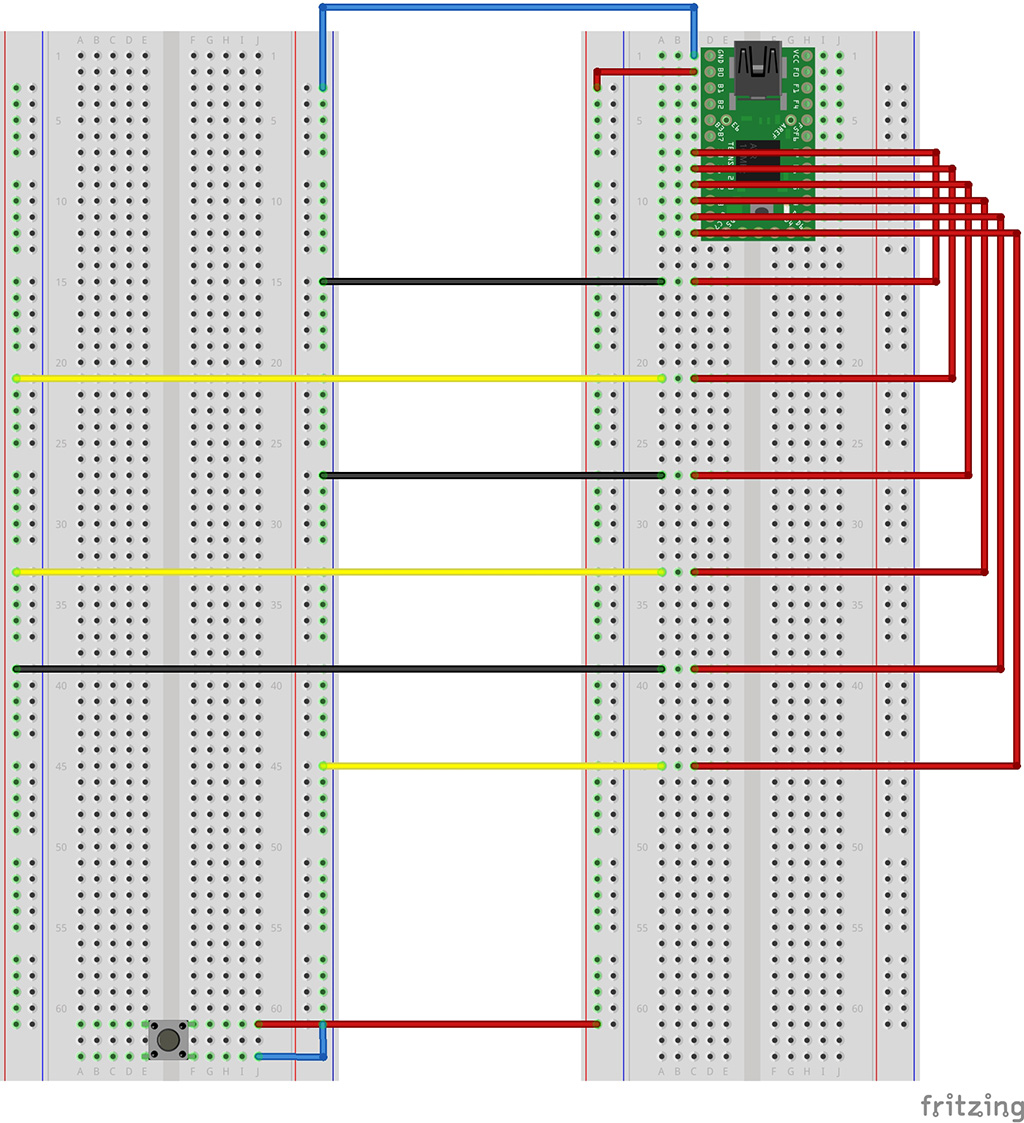User:Ohjian/XPUB 1
YEAR 1
Intro
_ _ _ _ _ _ _ _
___ | |__ (_|_) __ _ _ __ | |__ __ _ _ __ _ __ _ _ ___ | |__ (_|_) __ _ _ __ ___ ___ __ _ _ __ ___ __| |
/ _ \| '_ \ | | |/ _` | '_ \ | '_ \ / _` | '_ \| '_ \| | | | / _ \| '_ \ | | |/ _` | '_ \ / __|/ __/ _` | '__/ _ \/ _` |
| (_) | | | || | | (_| | | | | | | | | (_| | |_) | |_) | |_| | | (_) | | | || | | (_| | | | | \__ \ (_| (_| | | | __/ (_| |
\___/|_| |_|/ |_|\__,_|_| |_| |_| |_|\__,_| .__/| .__/ \__, | \___/|_| |_|/ |_|\__,_|_| |_| |___/\___\__,_|_| \___|\__,_|
|__/ |_| |_| |___/ |__/
! echo ohjian happy ohjian scared | figlet
Special Issue #16
Getting Started
Moving to Rotterdam
Intro Week
Readings
[ ] "Situated Knowledges. The Science Question in Feminism and the Privilege of Partial Perspective", Donna Haraway
[ ] "Orientation in a big world", Patricia Reed
[ ] "Vernacular Order, Official Order / Vernacular and Official Ways of 'Knowing'", James C. Scott
[ ] "Queer Phenomenology. Orientations, Objects, Others", Sara Ahmed
[ ] "Vernacular Values", Ivan Illich
[ ] "This Is Not an Atlas - A Global Collection of Counter-Cartographies", Kollektiv Orangotango+
[ ] "Control and Freedom. Power and Paranoia in the Age of Fiber Optics", Wendy Hui Kyong Chun
[ ] "Post-Digital Print. The Mutation of Publishing since 1894", Alessandro Ludovico
[ ] "Sprache und sein", Kübra Gümüşay
[ ] "Performative Materiality and Theoretical Approaches to Interface", Johanna Drucker
References
[ ] "A Rose is a Rose is a rose", Gertrude Stein
[ ] Oulipu
[ ] George perec
[ ] "Dictionary of Winds", Ivetta Gerasimchuk
[ ] "This Variation", Tino Sehgal
[ ] Clusterduck
[ ] "Anekdoten zu einer Topographie des Zufalls", Daniel Spoerri
[ ] "Queering the Map", Lucas laRochelle
[ ] Palestine Open Maps, Majd Al-shihabi
[ ] Learning Machines, George Maciunas
[ ] Marcel Duchamp
[ ] Lucy Lippard - C. 7,500
[ ] Anni Albers weavings
[ ] Marcel Broodthaers – musée d'art moderne département des aigles 1968–72
[ ] Aby Warburg
[ ] Snail Mail
[ ] Harald Szeeman – Documenta 5
[ ] Telemagic
[ ] OMSK Social Club
[ ] Chimeric Worlding
[ ] Hackers & Designers
Pads
| Category | YYYY/MM/DD | Title | Description | Links |
|---|---|---|---|---|
| Prototyping | 2021/09/27 | Main Pad | Link | |
| Special Issue | 2021/09/28 | My Sub Group | Text Traversion with Supi + Alex | Link |
| Reading + Writing | 2021/09/22, 09/28/2021 | Main Pad | Queer Phenomenology, Sara Ahmed | Link |
| Reading + Writing | 2021/09/22 | My Sub Group | Annotating Johanna Drucker with Kamo, Erica, Supi | Link |
| Reading + Writing | 2021/09/22 | Other Sub Group | Orientation in a Big World | Link |
| Special Issue | 2021/09/21 | Main Pad | Intro | Link |
| XPUB | 2021/09/11 | Main Pad | XPUB Infrastructure | Link |
| Reading + Writing | 2021/09/22 | Other Sub Group | Eros in the Library | Link |
| Reading + Writing | 2021/09/22 | Main Pad | Introduction to Reading, Writing and Research Methodologies | Link |
| Special Issue | 2021/09/28 | Main Pad | References and Examples | Link |
| Special Issue | 2021/10/05 | Main Pad 2 | Magic Words | Link |
| Special Issue | 2021/10/05 | Main Pad 1 | ? | Link |
| Special Issue | 2021/10/05 | My Sub Group | Text Weaving with Kamo + Emma | Link |
| Jian | 2021/10/06 | Individual Pad | Lexikon Homework | Link |
| Jian | 2021/11/12 | Individual Pad | Dutch Class | Link |
| Jian | 2021/10/05 | My Sub Group | Dutch Class with Chae + Emma | Link |
| Reading + Writing | 2021/10/06 | Main Pad | Prototype Reader | Link |
| Reading + Writing | 2021/10/06 | My Sub Group | Synopsis Glossary with Kimberly, Supi …? | Link |
| Jian | 2021/10/07 | Main Pad | Speech2Derive Workshop at Roodkapje with Kamo + Poni | Link |
| Prototyping | 2021/10/11 | Main Pad | Use your own texts with NLTK | Link |
| Special Issue | 2021/10/12 | Main Pad | Transcription Day | Link |
| Special Issue | 2021/10/12 | My Sub Group | Juno Transcription with Miriam | Link |
| Group Meeting | 2021/10/18 | Main Pad | Rejection | Link |
| Collaboration, Conflict & Consent | 2021/10/25 and 2021/10/26 | Main Pad | with Nor Greenhalgh | Link |
| Jian | 2021/10/18 | Individual Pad | Notes on Situated Knowledges | Link |
| Group Meeting | 2021/10/18 | Main Pad | Template for Meetings | Link |
| Prototyping | 2021/11/01 | My Sub Group | with Alex (these are mostly Alex notes hehe) | Link |
| Jian | 2021/11/06 | Individual Pad | E-Zine Workshop at Zine Camp Festival (these are Chaes notes) | Link |
| Special Issue | 2021/11/09 | Main Pad | The long day with Christina | Link |
| Prototyping | 2021/11/08 | Main Pad | publishing pipeline | Link |
| Group Meeting | 2021/11/10 | Main Pad | Emergency Meeting | Link |
| Group Meeting | 2021/12/08 | Main Pad | Event Launch Proposal | Link |
| Group Meeting | 2021/10/05 | Main Pad | Equipment List for Launch Event | Link |
| Group Meeting | 2021/12/05 | Main Pad | Emergency Meeting 2 | Link |
| Group Meeting | 2021/11/17 | Main Pad | Backend Dilemmas | Link |
| Prototyping | 2021/11/22 | Main Pad | API endpoints in Python/Flask, individual check-ins | Link |
| Special Issue | 2021/11/23 | Main Pad | with Christina at Varia | Link |
| Prototyping | 2021/11/29 | Main Pad | overall structure of SI16 | Link |
| Prototyping | 2021/12/06 | Main Pad | Link | |
| Group Meeting | 2021/12/06 | Main Pad | How to add functions to SI16 backend | Link |
| Special Issue | 2021/12/07 | Main Pad | Radical Efficiency Day | Link |
| Group Meeting | 2021/12/08 | Main Pad | Draft for Manifesto | Link |
| Group Meeting | 2021/12/01 | Main Pad | Group Meeting | Link |
| Group Meeting | 2021/12/09 | Main Pad | Physical Event Launch Proposal | Link |
| Sub Group | 2021/12/09 | Main Pad | Annotation Compass – Draft for about Text | Link |
| Group Meeting | 2021/10/18 | Main Pad | Rejection Glossary | Link |
| Jian | 2021/12/15 | Individual Pad | Draft for Rejection Map Text (with help from Christina) | Link |
| Prototyping | 2021/10/04 | Main Pad | ? | Link |
| Prototyping | 2021/11/01 | Main Pad | ? | Link |
| Special Issue | 2021/11/02 | Main Pad | Lecture Clara Balaguer | Link |
| Special Issue | 2021/11/10 | Main Pad | Editorial Meeting | Link |
| Prototyping | 2021/11/15 | Main Pad | Link | |
| Special Issue | 2021/11/26 | Main Pad | Danny van der Kleij | Link |
| Special Issue | 2021/11/30 | Main Pad | ? | Link |
| Special Issue | 2022/01/22 | Main Pad | Reflection / Debrief Special Issue 16 | Link |
| Group Meeting | 2022/01/? | Main Pad | Reflection / what to fix on Special Issue 16 | Link |
Words of interest
[ ] Archive
[ ] Artifact
[ ] Atlas
[ ] Book
[ ] Collective
[ ] Context
[ ] Darkness
[ ] Destination
[ ] Dimension
[ ] Direction
[ ] Echoe
[ ] Encyclopedia
[ ] Ephemer
[ ] Gesture
[ ] Ghost
[ ] Index
[ ] Interrelations
[ ] Language
[ ] Lexikon
[ ] Local
[ ] Lacolization
[ ] Map
[ ] Memory
[ ] Miscelenious
[ ] Mobility
[ ] Movement
[ ] Multiverse
[ ] Multilayers
[ ] Navigation
[ ] Navigator
[ ] Orientation
[ ] Question Mark
[ ] Record
[ ] Rejection
[ ] Relation
[ ] Relic
[ ] Selection
[ ] Space
[ ] Territory
[ ] Time
[ ] Toolkit
[ ] Topography
[ ] Trace
[ ] Unknown
[ ] Weaving
[ ] Vernacular
Notes
Readings for Prototyping class
Wiki Page Prototyping Class SI 16
Exploratory Programming for the Arts and Humanities by Nick Montfort
[ 4 ] Calculating and Using Jupiter Notebook
calculator (to calculate) / computer (to compute) / ordinateur (French, to order, to organize)
Python is a programming language
Jupiter Notebook is an interpreter of Python
Syntax vs. Semantics in programming languages like Python or Processing:
[ ] If the Syntax is correct, the code is formally correct, it is valid.
[ ] If the code does what it is supposed to do, it is intentional.
[ ] Intentional programs are always valid.
[ ] Valid programs are not always intentional.
Syntax and Semantics in HTML (Hypertext Markup Language):
[ ] HTML is not a programming language
[ ] JavaScript is a program
[ ] HMTL does not encode instructions
[ ] Web Browser are forgiving and will also render invalid pages whenever possible. Just because a page is looks intentional in a web browser it doesn't mean it's valid code. So maybe other or future web browsers will struggle to show the intended page. Use Validators like validator.w3c.org to make sure your code is valid.
! Dont ever replace the content of a a cell in Python once it has successfully run, even if the outcome is not intentional. Instead copy to a new cell to change the content !
[ 5 ] Double, Double
Indentation is important! Use 4 spaces instead of a tab!
[ ] Function: a bundle of computation 7 it must be provided exactly one argument / a function accepts arguments as well as returns values
[ ] Interface: Schnittstelle / the specific way in which a function accepts an argument and returns values defines the interface to a function
[ ] Argument: Ausgangswert? / Information that is passed into a function / The arguments to the function hold the values that the function needs to do its work. It sends back the answer aas return value
[ ] Value: Ergebnis / Result that is returned by the function
[ ] Sequence: data that is given as an argument
[ ] Element: a sequence can have several elements, a list [element, element, element]
[ 6 ] Programming Fundamentals
Types of Abstraction:
[ ] iteration = generalize a computation over a sequence / looping / allows repeated computation
[ ] polymorphism = a code that applies to data of different types
there are different types of data, for example:
[ ] integral numbers = int
[ ] strings of characters = str
[ ] lists of integers = int
[ ] Boolean value = True/False
some functions or operator only work with certain types of data, other are polymorph and work with different types of data
types of data can be converted = casting
inner and outer universe / scope: variable have a certain value in a function, but outside of the function the same variable can have a different value
Reflection moment
I was re-reading what we have to prepare for Christinas class and realized I misunderstood it the first time. I guess we are not supposed to bring even more new texts/material to elaborate, but rather bring examples of processing methods. So as far as I understand we should focus on different ways to approach a text or material, how to process/play/manipulate/work with it …
I think I will try to come up with maybe 3 different processing methods and use any text or material (old or new) to exemplify these methods. A method could be a complex annotation system but also a super simple and playful manipulation (i.e. get rid of all the punctuation in a text and see what happens).
What do you think? Should we just play around with this and then present our favorites in class?
Template for group meetings
////////////////////////////////////////////////////////////////////////////////////////////////////
//// XPUB 1 –– SPECIAL ISSUE 16 //// XPUB 1 –– SPECIAL ISSUE 16 //// XPUB 1 –– SPECIAL ISSUE 16 ////
////////////////////////////////////////////////////////////////////////////////////////////////////
Date: DD/MM/YYYY
Time: 00:00 – 00:00
Participants:
Guardian of the Clock:
Guardian of the Pad:
Schedule for today´s meeting:
00:00-00:00 Opening
00:00-00:00 Part 1
00:00-00:00 Check-in round
00:00-00:00 Break
00:00-00:00 Part 2
00:00-00:00 Check-in round
00:00-00:00 Closing
Link to pad from previous group meeting:
Possible topics for today (paste from previous pad):
–
Topics for today´s meeting:
1. Topic A
2. Topic B
3.
////////////////////////////////////////////////////////////////////////////////////////////////////
//// XPUB 1 –– SPECIAL ISSUE 16 //// XPUB 1 –– SPECIAL ISSUE 16 //// XPUB 1 –– SPECIAL ISSUE 16 ////
////////////////////////////////////////////////////////////////////////////////////////////////////
OPENING
References / Examples:
–
////////////////////////////////////////////////////////////////////////////////////////////////////
PART 1
1. Topic A
–
2. Topic B
–
3. Topic C
–
////////////////////////////////////////////////////////////////////////////////////////////////////
CHECK-IN ROUND
One by one:
Do you want to ask / say / add / comment on something?
Try to limit your speaking time and try to be precise!
No interruptions please!
////////////////////////////////////////////////////////////////////////////////////////////////////
BREAK
////////////////////////////////////////////////////////////////////////////////////////////////////
PART 2
4. Topic D
–
5. Topic E
–
6. Topic F
–
////////////////////////////////////////////////////////////////////////////////////////////////////
CHECK-IN ROUND
One by one:
Do you want to ask / say / add / comment on something?
Try to limit your speaking time and try to be precise!
No interruptions please!
////////////////////////////////////////////////////////////////////////////////////////////////////
CLOSING
––> Summary of the meeting by the Guardian of the Pad
List of topics to discuss in the next meeting:
–
Homework / to do:
–
Schedule next meeting:
Date:
Time:
Guardian of the Pad next time:
////////////////////////////////////////////////////////////////////////////////////////////////////
//// XPUB 1 –– SPECIAL ISSUE 16 //// XPUB 1 –– SPECIAL ISSUE 16 //// XPUB 1 –– SPECIAL ISSUE 16 ////
////////////////////////////////////////////////////////////////////////////////////////////////////
How to use the Terminal Part I
How to use the Terminal Part II
[ ] pwd = shows where you are [ ] ls = lists all files in the folder [ ] cd Name = takes you to the named folder [ ] cd .. = takes you one step back / up in the hierarchy of folders [ ] cd = takes you to home folder [ ] python Name = runs the named py-file [ ] ls -hl = lists the files + information (permission r stands for read, rw stands for read + write) [ ] clear = clear all previous commands [ ] man + command = explains how the command works [ ] sudo shutdown now
Electric Zine Maker
Workshop at the Zine Camp Festival
https://alienmelon.itch.io/electric-zine-maker
Links to funny tools:
[ ] http://alienmelon.com/talk/zinecamp/tooldemo.html
[ ] https://itch.io/c/235488/cool-tools
[ ] https://tinytools.directory/
Confused Notes
As a creative tool / process / rejection toolkit ~ Rejection = Ablehnung, Zurückweisung, Abstoßung, Abweisung, Abwehr, Aussortierung, aber auch Verwerfen ~ ignorieren, vergessen, verwerfen ~ generieren (produzieren), verwerfen (entscheiden) / entwerfen/verwerfen ~ Summerschool! also: Rejection as a collektive process? ~ Chronisten vs. Anemophile: Entwürfe aufbewahren oder verwerfen? ~ Talmud: keine Umschreibung, Überschreibung, Neuschreibung ~ Deutungen/ Ideen / Entwürfe bleiben parallel bestehen: multiperspektivisch (situated knowledge?) ~ to define the book limits the book ~ collect or select ~ curation: change context by selecting (and rejecting) certain things ~ responsibility ~ unpublished! ~ rejection as choice ~ definition generator just as book? ~ or: (because its easier I think): definition of curating, including rejection ~ rejection process changes vernacular language into formal language? ~ bleed ~ annotations / references / pagina ~ artifacts ~ stream of consciousness (in words or images) ~ our conscience can only focus on one thing and rejects the others? ~ selection by choice, by data, by association ~ Found items ~ Rejected items ~ Leaving a trace ~ Rejection toolkit ~ Topographie des Zufalls ~ Kill your darlings ~ Souvenirs of thinking processes ~ Remnants of the process ~ Embracing the unpublished / rejected ~ Extract ~ mapping / delineate ~ lost traces / ephemere ~ relic ~ ghost ~ echoes, memories ~ record, permanent form ~ vernacular memories ~ collective memories ~ Delinetae the unknown ~ Delineate the ephemeral ~ Delineate situated knowledges / language / action / memories ~ Delineating the situated ~ Delineate the vernacular ~ miscelenious ~ Connotation / context / curating ~ Rejection as categorization (libraries, archives) ~ … in Rejection ~ Topography of the Book ~ Delineating the Book ~ Rejection as Delineation ~ Rejection as tool, responsibility, curating ~ Experiment: have one collection of items and let at least two individuals select, organize, contextualize, curate them (also by adding new things?)
Queering the Map / Lucas laRochelle
Lecture at H&D Fall Talks
[ ] Express subjectivity
[ ] Incommensurability
[ ] Being together while aknowledging differences
[ ] Fluidity
[ ] Multiplicity
[ ] Situated
[ ] Embodied
[ ] Opacity
[ ] Transparency
[ ] Anecdotal
[ ] Glimmer, shimmers, traces
[ ] Singularities flow into the common
[ ] embrace multiple ways of knowing and feeling of the world
[ ] Anonymus participative, but no troll
[ ] Catching the ephemeral
[ ] Validates experience
[ ] Fills blanks of what isn’t officially documented
Mapping (dis)orientation / Majd al-shihabi
Lecture at H&D Fall Talks on Palestine open maps
[ ] Erasures when it comes to mapping
[ ] Catalogue of traces, archival work
[ ] Archives and erasure
[ ] Mappathon
[ ] Collaborators of new dataset that becomes ours
[ ] Since it’s not mine but ours I have to give it out
[ ] What permission to outsiders to use the data?
Setting up my brand new Raspberry Pi / Christmas 2021
Setup Notes for Beginners (yes, that´s me!)
[ ] put Sd card in your computer [ ] download Raspberry Pi Imager (software that helps with an easy setup on the sd card ) [ ] Video turotial [ ] open Raspberry Pi imager software [ ] choose operating system (in this case Raspberry Pi OS 32-BIT) [ ] select the sd card [ ] configurate username, password and wifi: ctrl + shift + x
[ ] (default) settings: [ ] Hostname = raspberrypi.local [ ] activate ssh [ ] password for „pi“: raspberry [ ] = pi@raspberrypi.local
[ ] setup wifi
[ ] write to sd card (the sd card is now named „boot“) [ ] eject sd card and put it in the Raspberry Pi [ ] connect the pi to power (wait until the light stops blinking) [ ] to test ssh connection: connect Raspberry Pi and computer via ethernet cable [ ] open terminal and write: ssh pi@raspberry.local [ ] password: raspberry [ ] if it give "WARNING: POSSIBLE DNS SPOOFING DETECTED!" go to finder [ ] "command + shift + ." to show hidden files [ ] go to folder jianhaake and delete the ".ssh" folder [ ] go back to terminal and try again: ssh pi@raspberrypi.local [ ] confirm with yes and give password
Setup Notes Advanced (maybe later … )
The complete setup is done manually using the terminal.
Helpful links:
The_Ultimate_RPi_Installation_Guide#Setting_up_SD_Card
https://www.raspberrypi.com/software/operating-systems/
https://pihw.wordpress.com/guides/direct-network-connection/
Experiments
Collective Annotation
[ Supi, Kamo, Erica, Jian ]
Annotating a text by Johanna Drucker
https://pad.xpub.nl/p/Performative_Materiality_and_Theoretical_Approache
🌰🥝🌪🥟
[ excerpt ]
If every reading produces a text anew🌪remember Bergson!🌪 then the production of a text is the fundamental work of reading 🥝 is it possible to write without reading at the same time ? ? ? 🥝 🥟 imagining an interface where you can't see what you're writing until you're "done" -- how does this affect / change your thinking process or the end product🥟🥝we could prototype it ehe🥝🌪Roland Barthes writes about "The Death of the Author" which basically says that the author has no control over the reception of a text and therefore is of minor importance. the text is produced by the reader🌪🥟what happens when there's no reader?🥟🥝and sometimes neither on the text itself🥝 — this is a truism of every theoretical development since New Criticism.🌰 https://en.wikipedia.org/wiki/New_Criticism🌰 Eye-tracking software and studies of user experience support this assertion just as surely as the deconstructionist theoretical approaches to text, in a curious meeting of empirical and theoretical investigations from very different parts of the intellectual universe. Steve Krug’s Don’t Make Me Think [Krug 2000], diagramming the ways individuals hop around on a web page in accord with motivations and whims, meets Stanley Fish’s Is there a text in the class [Fish 1980], in the weird science hybrid analysis of readerly work. In each case, the performance constructs meaning as a result of engagement, the text is performed🥟why is everything a performance🥟,🥝it reminds me about john locke tabula rasa, your pre conception about something colliding with the informations about that things while you are perceiving it🥝🌪it is a performance because a text is a text is a text but it (meaning the perception) changes over time or depending on the person who reads it 🌪🌪a rose is a rose is a rose (Gertrude Stein)🌪 rather than received. Materiality provokes the performance, and this is true whether we are talking about the workings of distributed systems in which resistance, voltage, and allocation of resources perform in accord with other processes and decisions, or whether we are referring to the reading of a poem. 🌰so what is this performance?? how is it intended?🌰🌪something happening in the moment? The act of doing something?🌪 🥝 WHAT IS PERFORMANCE? an act within a context? within a set of rules? within a material condition? 🥝
Ghost Glyphs
for character in text:
if character.isalpha() or character.isalnum():
print((len(character) * ' '), end='')
else:
print(character, end='')
- . , . , . . ? , . . , , , , . ’ , , ’ . , , . . . , , . ; , . , . . , , , ; , . : , , , . , , . , . - ’ , , . , , , ; , , , . ? , , , ' ' . , , : . . . , , . , ; . , , , . . ; ( ) , , , .- ? . , , . , . . . ( , ? ?) . . .
Text Patterns
[ Supi, Jian ]
output = []
for word in text1:
for character in word:
output = output + [character.upper()]
output = output + [len(word) * ' ']
pattern = "".join(output)
print(pattern)
THE TWO OF US WROTE ANTI-OEDIPUS TOGETHER. SINCE EACH OF US WAS SEVERAL, THERE WAS ALREADY QUITE A CROWD. HERE WE HAVE MADE USE OF EVERYTHING THAT CAME WITHIN RANGE, WHAT WAS CLOSEST AS WELL AS FARTHEST AWAY. WE HAVE ASSIGNED CLEVER PSEUDONYMS TO PREVENT RECOGNITION. WHY HAVE WE KEPT OUR OWN NAMES? OUT OF HABIT, PURELY OUT OF HABIT. TO MAKE OURSELVES UNRECOGNIZABLE IN TURN. TO RENDER IMPERCEPTIBLE, NOT OURSELVES, BUT WHAT MAKES US ACT, FEEL, AND THINK. ALSO BECAUSE IT’S NICE TO TALK LIKE EVERYBODY ELSE, TO SAY THE SUN RISES, WHEN EVERYBODY KNOWS IT’S ONLY A MANNER OF SPEAKING. TO REACH, NOT THE POINT WHERE ONE NO LONGER SAYS I, BUT THE POINT WHERE IT IS NO LONGER OF ANY IMPORTANCE WHETHER ONE SAYS I. WE ARE NO LONGER OURSELVES. EACH WILL KNOW HIS OWN. WE HAVE BEEN AIDED, INSPIRED, MULTIPLIED. A BOOK HAS NEITHER OBJECT NOR SUBJECT; IT IS MADE OF VARIOUSLY FORMED MATTERS, AND VERY DIFFERENT DATES AND SPEEDS. TO ATTRIBUTE THE BOOK TO A SUBJECT IS TO OVERLOOK THIS WORKING OF MATTERS, AND THE EXTERIORITY OF THEIR RELATIONS. IT IS TO FABRICATE A BENEFICENT GOD TO EXPLAIN GEOLOGICAL MOVEMENTS. IN A BOOK, AS IN ALL THINGS, THERE ARE LINES OF ARTICULATION OR SEGMENTARITY, STRATA AND TERRITORIES; BUT ALSO LINES OF FLIGHT, MOVEMENTS OF DETERRITORIALIZATION AND DESTRATIFICATION. COMPARATIVE RATES OF FLOW ON 3 4 INTRODUCTION: RHIZOME THESE LINES PRODUCE PHENOMENA OF RELATIVE SLOWNESS AND VISCOSITY, OR, ON THE CONTRARY, OF ACCELERATION AND RUPTURE. ALL THIS, LINES AND MEASURABLE SPEEDS, CONSTITUTES AN ASSEMBLAGE. A BOOK IS AN ASSEMBLAGE OF THIS KIND, AND AS SUCH IS UNATTRIBUTABLE. IT IS A MULTIPLICITY-BUT WE DON’T KNOW YET WHAT THE MULTIPLE ENTAILS WHEN IT IS NO LONGER ATTRIBUTED, THAT IS, AFTER IT HAS BEEN ELEVATED TO THE STATUS OF A SUBSTANTIVE. ONE SIDE OF A MACHINIC ASSEMBLAGE FACES THE STRATA, WHICH DOUBTLESS MAKE IT A KIND OF ORGANISM, OR SIGNIFYING TOTALITY, OR DETERMINATION ATTRIBUTABLE TO A SUBJECT; IT ALSO HAS A SIDE FACING A BODY WITHOUT ORGANS, WHICH IS CONTINUALLY DISMANTLING THE ORGANISM, CAUSING ASIGNIFYING PARTICLES OR PURE INTENSITIES TO PASS OR CIRCULATE, AND ATTRIBUTING TO ITSELF SUBJECTS THAT IT LEAVES WITH NOTHING MORE THAN A NAME AS THE TRACE OF AN INTENSITY. WHAT IS THE BODY WITHOUT ORGANS OF A BOOK? THERE ARE SEVERAL, DEPENDING ON THE NATURE OF THE LINES CONSIDERED, THEIR PARTICULAR GRADE OR DENSITY, AND THE POSSIBILITY OF THEIR CONVERGING ON A 'PLANE OF CONSISTENCY' ASSURING THEIR SELECTION. HERE, AS ELSEWHERE, THE UNITS OF MEASURE ARE WHAT IS ESSENTIAL: QUANTIFY WRITING. THERE IS NO DIFFERENCE BETWEEN WHAT A BOOK TALKS ABOUT AND HOW IT IS MADE. THEREFORE A BOOK ALSO HAS NO OBJECT. AS AN ASSEMBLAGE, A BOOK HAS ONLY ITSELF, IN CONNECTION WITH OTHER ASSEMBLAGES AND IN RELATION TO OTHER BODIES WITHOUT ORGANS. WE WILL NEVER ASK WHAT A BOOK MEANS, AS SIGNIFIED OR SIGNIFIER; WE WILL NOT LOOK FOR ANYTHING TO UNDERSTAND IN IT. WE WILL ASK WHAT IT FUNCTIONS WITH, IN CONNECTION WITH WHAT OTHER THINGS IT DOES OR DOES NOT TRANSMIT INTENSITIES, IN WHICH OTHER MULTIPLICITIES ITS OWN ARE INSERTED AND METAMORPHOSED, AND WITH WHAT BODIES WITHOUT ORGANS IT MAKES ITS OWN CONVERGE. A BOOK EXISTS ONLY THROUGH THE OUTSIDE AND ON THE OUTSIDE. A BOOK ITSELF IS A LITTLE MACHINE; WHAT IS THE RELATION (ALSO MEASURABLE) OF THIS LITERARY MACHINE TO A WAR MACHINE, LOVE MACHINE, REVOLUTIONARY MACHINE, ETC.-AND AN ABSTRACT MACHINE THAT SWEEPS THEM ALONG? WE HAVE BEEN CRITICIZED FOR OVERQUOTING LITERARY AUTHORS. BUT WHEN ONE WRITES, THE ONLY QUESTION IS WHICH OTHER MACHINE THE LITERARY MACHINE CAN BE PLUGGED INTO, MUST BE PLUGGED INTO IN ORDER TO WORK. KLEIST AND A MAD WAR MACHINE, KAFKA AND A MOST EXTRAORDINARY BUREAUCRATIC MACHINE . . . (WHAT IF ONE BECAME ANIMAL OR PLANT THROUGH LITERATURE, WHICH CERTAINLY DOES NOT MEAN LITERARILY? IS IT NOT FIRST THROUGH THE VOICE THAT ONE BECOMES ANIMAL?) LITERATURE IS AN ASSEMBLAGE. IT HAS NOTHING TO DO WITH IDEOLOGY. THERE IS NO IDEOLOGY AND NEVER HAS BEEN.
output1 = []
for word in text1:
for character in word:
output1 = output1 + [character.upper()]
output1 = output1 + [len(word) * ' ']
print(output1)
['T', 'H', 'E', ' ', 'T', 'W', 'O', ' ', 'O', 'F', ' ', 'U', 'S', ' ', 'W', 'R', 'O', 'T', 'E', ' ', 'A', 'N', 'T', 'I', '-', 'O', 'E', 'D', 'I', 'P', 'U', 'S', ' ', 'T', 'O', 'G', 'E', 'T', 'H', 'E', 'R', '.', ' ', 'S', 'I', 'N', 'C', 'E', ' ', 'E', 'A', 'C', 'H', ' ', 'O', 'F', ' ', 'U', 'S', ' ', 'W', 'A', 'S', ' ', 'S', 'E', 'V', 'E', 'R', 'A', 'L', ',', ' ', 'T', 'H', 'E', 'R', 'E', ' ', 'W', 'A', 'S', ' ', 'A', 'L', 'R', 'E', 'A', 'D', 'Y', ' ', 'Q', 'U', 'I', 'T', 'E', ' ', 'A', ' ', 'C', 'R', 'O', 'W', 'D', '.', ' ', 'H', 'E', 'R', 'E', ' ', 'W', 'E', ' ', 'H', 'A', 'V', 'E', ' ', 'M', 'A', 'D', 'E', ' ', 'U', 'S', 'E', ' ', 'O', 'F', ' ', 'E', 'V', 'E', 'R', 'Y', 'T', 'H', 'I', 'N', 'G', ' ', 'T', 'H', 'A', 'T', ' ', 'C', 'A', 'M', 'E', ' ', 'W', 'I', 'T', 'H', 'I', 'N', ' ', 'R', 'A', 'N', 'G', 'E', ',', ' ', 'W', 'H', 'A', 'T', ' ', 'W', 'A', 'S', ' ', 'C', 'L', 'O', 'S', 'E', 'S', 'T', ' ', 'A', 'S', ' ', 'W', 'E', 'L', 'L', ' ', 'A', 'S', ' ', 'F', 'A', 'R', 'T', 'H', 'E', 'S', 'T', ' ', 'A', 'W', 'A', 'Y', '.', ' ', 'W', 'E', ' ', 'H', 'A', 'V', 'E', ' ', 'A', 'S', 'S', 'I', 'G', 'N', 'E', 'D', ' ', 'C', 'L', 'E', 'V', 'E', 'R', ' ', 'P', 'S', 'E', 'U', 'D', 'O', 'N', 'Y', 'M', 'S', ' ', 'T', 'O', ' ', 'P', 'R', 'E', 'V', 'E', 'N', 'T', ' ', 'R', 'E', 'C', 'O', 'G', 'N', 'I', 'T', 'I', 'O', 'N', '.', ' ', 'W', 'H', 'Y', ' ', 'H', 'A', 'V', 'E', ' ', 'W', 'E', ' ', 'K', 'E', 'P', 'T', ' ', 'O', 'U', 'R', ' ', 'O', 'W', 'N', ' ', 'N', 'A', 'M', 'E', 'S', '?', ' ', 'O', 'U', 'T', ' ', 'O', 'F', ' ', 'H', 'A', 'B', 'I', 'T', ',', ' ', 'P', 'U', 'R', 'E', 'L', 'Y', ' ', 'O', 'U', 'T', ' ', 'O', 'F', ' ', 'H', 'A', 'B', 'I', 'T', '.', ' ', 'T', 'O', ' ', 'M', 'A', 'K', 'E', ' ', 'O', 'U', 'R', 'S', 'E', 'L', 'V', 'E', 'S', ' ', 'U', 'N', 'R', 'E', 'C', 'O', 'G', 'N', 'I', 'Z', 'A', 'B', 'L', 'E', ' ', 'I', 'N', ' ', 'T', 'U', 'R', 'N', '.', ' ', 'T', 'O', ' ', 'R', 'E', 'N', 'D', 'E', 'R', ' ', 'I', 'M', 'P', 'E', 'R', 'C', 'E', 'P', 'T', 'I', 'B', 'L', 'E', ',', ' ', 'N', 'O', 'T', ' ', 'O', 'U', 'R', 'S', 'E', 'L', 'V', 'E', 'S', ',', ' ', 'B', 'U', 'T', ' ', 'W', 'H', 'A', 'T', ' ', 'M', 'A', 'K', 'E', 'S', ' ', 'U', 'S', ' ', 'A', 'C', 'T', ',', ' ', 'F', 'E', 'E', 'L', ',', ' ', 'A', 'N', 'D', ' ', 'T', 'H', 'I', 'N', 'K', '.', ' ', 'A', 'L', 'S', 'O', ' ', 'B', 'E', 'C', 'A', 'U', 'S', 'E', ' ', 'I', 'T', '’', 'S', ' ', 'N', 'I', 'C', 'E', ' ', 'T', 'O', ' ', 'T', 'A', 'L', 'K', ' ', 'L', 'I', 'K', 'E', ' ', 'E', 'V', 'E', 'R', 'Y', 'B', 'O', 'D', 'Y', ' ', 'E', 'L', 'S', 'E', ',', ' ', 'T', 'O', ' ', 'S', 'A', 'Y', ' ', 'T', 'H', 'E', ' ', 'S', 'U', 'N', ' ', 'R', 'I', 'S', 'E', 'S', ',', ' ', 'W', 'H', 'E', 'N', ' ', 'E', 'V', 'E', 'R', 'Y', 'B', 'O', 'D', 'Y', ' ', 'K', 'N', 'O', 'W', 'S', ' ', 'I', 'T', '’', 'S', ' ', 'O', 'N', 'L', 'Y', ' ', 'A', ' ', 'M', 'A', 'N', 'N', 'E', 'R', ' ', 'O', 'F', ' ', 'S', 'P', 'E', 'A', 'K', 'I', 'N', 'G', '.', ' ', 'T', 'O', ' ', 'R', 'E', 'A', 'C', 'H', ',', ' ', 'N', 'O', 'T', ' ', 'T', 'H', 'E', ' ', 'P', 'O', 'I', 'N', 'T', ' ', 'W', 'H', 'E', 'R', 'E', ' ', 'O', 'N', 'E', ' ', 'N', 'O', ' ', 'L', 'O', 'N', 'G', 'E', 'R', ' ', 'S', 'A', 'Y', 'S', ' ', 'I', ',', ' ', 'B', 'U', 'T', ' ', 'T', 'H', 'E', ' ', 'P', 'O', 'I', 'N', 'T', ' ', 'W', 'H', 'E', 'R', 'E', ' ', 'I', 'T', ' ', 'I', 'S', ' ', 'N', 'O', ' ', 'L', 'O', 'N', 'G', 'E', 'R', ' ', 'O', 'F', ' ', 'A', 'N', 'Y', ' ', 'I', 'M', 'P', 'O', 'R', 'T', 'A', 'N', 'C', 'E', ' ', 'W', 'H', 'E', 'T', 'H', 'E', 'R', ' ', 'O', 'N', 'E', ' ', 'S', 'A', 'Y', 'S', ' ', 'I', '.', ' ', 'W', 'E', ' ', 'A', 'R', 'E', ' ', 'N', 'O', ' ', 'L', 'O', 'N', 'G', 'E', 'R', ' ', 'O', 'U', 'R', 'S', 'E', 'L', 'V', 'E', 'S', '.', ' ', 'E', 'A', 'C', 'H', ' ', 'W', 'I', 'L', 'L', ' ', 'K', 'N', 'O', 'W', ' ', 'H', 'I', 'S', ' ', 'O', 'W', 'N', '.', ' ', 'W', 'E', ' ', 'H', 'A', 'V', 'E', ' ', 'B', 'E', 'E', 'N', ' ', 'A', 'I', 'D', 'E', 'D', ',', ' ', 'I', 'N', 'S', 'P', 'I', 'R', 'E', 'D', ',', ' ', 'M', 'U', 'L', 'T', 'I', 'P', 'L', 'I', 'E', 'D', '.', ' ', 'A', ' ', 'B', 'O', 'O', 'K', ' ', 'H', 'A', 'S', ' ', 'N', 'E', 'I', 'T', 'H', 'E', 'R', ' ', 'O', 'B', 'J', 'E', 'C', 'T', ' ', 'N', 'O', 'R', ' ', 'S', 'U', 'B', 'J', 'E', 'C', 'T', ';', ' ', 'I', 'T', ' ', 'I', 'S', ' ', 'M', 'A', 'D', 'E', ' ', 'O', 'F', ' ', 'V', 'A', 'R', 'I', 'O', 'U', 'S', 'L', 'Y', ' ', 'F', 'O', 'R', 'M', 'E', 'D', ' ', 'M', 'A', 'T', 'T', 'E', 'R', 'S', ',', ' ', 'A', 'N', 'D', ' ', 'V', 'E', 'R', 'Y', ' ', 'D', 'I', 'F', 'F', 'E', 'R', 'E', 'N', 'T', ' ', 'D', 'A', 'T', 'E', 'S', ' ', 'A', 'N', 'D', ' ', 'S', 'P', 'E', 'E', 'D', 'S', '.']
A Small Lexikon on Terms of Interest Wip
Wip of a small lexikon after reading:
[ ] "Situated Knowledges", Donna Haraway
[ ] "Orientation in a big world", Patricia Reed
[ ] "Vernacular Order, Official Order / Vernacular and Official Ways of 'Knowing'", James C. Scott
Terms to add:
[ ] destination
[ ] dimension
[ ] direction
[ ] interrelations
[ ] localization
[ ] map
[ ] mobility
[ ] movement
[ ] territory
[ ] time
… more Words of Interest
BOOK
A book has neither object nor subject; it is made of variously formed matters, and very different dates and speeds. To attribute the book to a subject is to overlook this working of matters, and the exteriority of their relations. It is to fabricate a beneficent God to explain geological movements. In a book, as in all things, there are lines of articulation or segmentarity, strata and territories; but also lines of flight, movements of deterritorialization and destratification.
A BOOK
IS THE PHYSICAL SUPPORT OF TEXT
USING A RECOMBINANT STRUCTURE
TO PROVIDE SEQUENTIAL
NAVIGATION
A BOOK
IS AN ARCHIVE
USING WORDS
TO PROVIDE ISOLATED
KNOWLEDGE
A BOOK
IS A PORTABLE DATA STORAGE
USING NODES AND LINKS
TO PROVIDE PERFORMATIVE
TRUTH
A BOOK
IS A SEQUENCE OF MOMENTS
USING NODES AND LINKS
TO PROVIDE PERFORMATIVE
MEANING
A BOOK
IS A SEQUENCE OF MOMENTS
USING LAYERS
TO PROVIDE CERTAIN
NAVIGATION
A BOOK
IS AN INTIMATE SPACE
USING JUXTAPOSITIONS
TO PROVIDE RANDOM
INFORMATION
A BOOK
IS AN ARTIFACT
USING A SYSTEM OF KNOTTED STRINGS
TO PROVIDE NAVIGATIONAL
NEGOTIATION
A BOOK
IS AN INTIMATE SPACE
USING A RECOMBINANT STRUCTURE
TO PROVIDE PRECISE
THOUGHTS
A BOOK
IS AN EVENT
USING NODES AND LINKS
TO PROVIDE SEQUENTIAL
ACCESS
A BOOK
IS AN INTERFACE
USING ANY NUMBERS OF PHYSICAL FORMS
TO PROVIDE ISOLATED
KNOWLEDGE
A BOOK
IS A SEQUENCE OF ROOMS
USING INTERCONNECTIONS
TO PROVIDE CERTAIN
NEGOTIATION
A BOOK
IS AN OBJECT
USING LAYERS
TO PROVIDE SPECIFIC
KNOWLEDGE
A BOOK
IS A SEQUENCE OF MOMENTS
USING A SYSTEM OF KNOTTED STRINGS
TO PROVIDE SPECIFIC
MEANING
DARKNESS

Tino Sehgal – This Variation
First performed in 2012 at Documenta 13 in Kassel
How do you navigate in a dark space? Listen. Smell. Touch.
NAVIGATION
is not destination, but it is not entirely divorced from destination either. It’s a movement of inclination requiring markers of orientation. If navigation requires inclination to lend a functional or affective valence of direction to mobility, the politics of navigation are bound to claims on constructing these points of referential orientation, as well as making them sensible, intelligible, and shareable. Second, navigation is reliant on extra-local, mental diagrams of space and time that are continually cross-referenced with situated localization. In this way navigation embodies the continuum between the conceptual and the material; and it is due to this weaving that navigators can continually revise and adapt their choreography and markers of orientation over time. As the saying goes, the map is not the territory. However, arresting this thought in its purely oppositional state undermines the crucial, synthetic dynamic wherein the map (understood as a conceptual artifact) partially shapes:
- the perception and perceptibility of the territory or system,
- how that territory or system is thought to exist beyond immediate sensory feedback (if it is sensible at all),
- the possibility space of its imagined tractability, and
- the understanding of causal interrelations, which contribute to pictures of agency.
ORIENTATION
We can only find our way in a dark room if we know the difference of the sides of the body. Space then becomes a question of „turning“, of directions taken which allow us to find our way through the world by situating ourselves in relation to such things.
SPACE
is the boundless three-dimensional extent in which objects and events have relative position and direction. In classical physics, physical space is often conceived in three linear dimensions, although modern physicists usually consider it, with time, to be part of a boundless four-dimensional continuum known as spacetime.
WEAVING
Weaving is a method of textile production in which two distinct sets of yarns or threads are interlaced at right angles to form a fabric or cloth. Other methods are knitting, crocheting, felting, and braiding or plaiting.

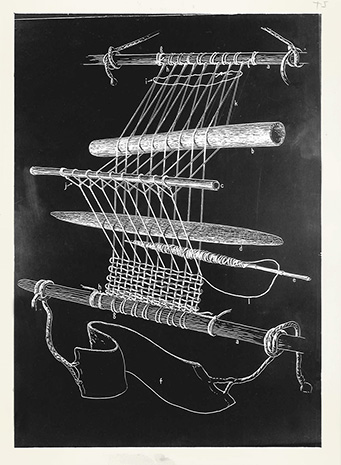
The term can also be used to describe the structure of a text:
"The book weaves together four stories."
Text Weaving
[ Emma, Kamo and Jian ]
How to weave two texts to create new meaning following a pattern?
Text Weaving
Text A: AA AA AA AA
Text B: BB BB BB BB
Patterns:
AB AB AB AB AB AB AB AB AA BB AA BB AA BB AA BB AB BA BA AB AB BA BA AB AB AB AB AB AB AB AB AB AA BB AA BB AA BB AA BB AB BA BA AB AB BA BA AB
Inspiration:
Anni Albers Weaving Patterns
Ideas, thoughts, process:
https://pad.xpub.nl/p/replacing_cats
Ceramics
Transcription Exercise
[ Miriam, Jian ]
Juno: I´m pregnant.
Juno: I'm pregnant.
Mum: Oh Good *quiet*
Mum: Oh god.
Juno: But uh i aaah ieh - I´m gonna give it up for adoption! – Aaan I already found the perfect couple! They pay for the medical expenses an everything, – an an an in whu what 40 odd weeks we can just pretend that this never happened! *nervous, fast*
Silence
Juno: But uh ah I'm gonna give it up for adoption and I already found the perfect couple; they're gonna pay for the medical expenses and everything and and wh- wh- what - 30 odd weeks we can just pretend that this never happened [fast and nervous breathing]
Dad: Your pregnant?
Dad: You're pregnant?
Juno: I´m sorryy. I´m sorry! And if it is any concellation I have heartburn that is radiating my kneecaps – an i haven´t taken a dump since Wednesday – Morning … I
Juno: I'm sorry. I'm sorry and if it is any consolation: I have heart burn that is radiating in my knee caps and I haven't taken a dump since - uh - Wednesday... morning ah!
Mum: I ddn´t even know you were sexually active!?
Mum: I didn't even know you were sexually active!
Juno: I...
Dad: Who is the kid?
Dad: Who is the kid?
Juno: The baby? I don´t really know much about it other than – it has fingernails alledgedly
Juno: T-the baby? I don't really know much about it other than, I mean, it has finger nails, l-l-logically -
Mum: Nails, really?
Mum: Finger nails, really?
Juno: Yeah!
Juno: Yeah!
Dad: no I no I mean – who is the father, Juno?
Dad: No, I don -, I mean, who's the father, Juno?
Juno: Uhm … It´s – it´s Pauli Bleaker. *quiet*
Juno: Uhm... it's Paulie Bleeker?
Dad: Pauli Bleaker? *surprised*
Juno: What? *offended*
Juno: What?
Dad: I ddn´t think he had it in him! *smurking*
Dad: I didn't think he had it in him
Friend: [laughs quietly]
Sister. huhuhu no –right? hehehe *laughing*
Friend: [giggles] I know, right? Hehehe
Dad: Right it´s not a laughing matter.
Dad: Right, this is no laughing matter
Juno: No it´s not! *offended* – You know and Pauli is actually great – in uh –
Juno: No, it's not. And you know, Paulie is actually great in a, in -
Dad: Okay!
Dad: - Okay -
Juno: in share
Juno: In share
Dad: You thinking baout adoption?
Dad: You thinking about adoption?
Juno: Yeah! yeah … an uh … there is this couple … they haven´t had – you know – they´ve been trying to have a kid for five years
Juno: Yeah, yeah. And - uh - there's this couple and they haven't had, you know, they - they've been trying to have a kid for like five years.
Sister: You find them in the pennysaver next to the exotic birds? *saracastic*
Friend: We found them in the penny saver next to the exotic birds.
Juno: And they have – a legitimate lawyer – an i was gonna go meet with them next weekend
Juno: And they have a legitimate lawyer and I was gonna go meet with him next weekend.
Mum: Juno that is a tough tough thing to do it´s probably tougher than n you can understand right now.
Mum: Jun-Bug, that is a tough, tough thing to do. It's probably tougher than you can understand right now.
Juno. I know. pause – An uh it´s just that I´m not ready to be a mum.
Juno: No, I - I know, and I - it's just that I'm not ready to be a mum.
Dad: *outraged sound* Damns good that you be not! You dont even remember Liberty Bella her breathing meds! *outraged*
Dad: [hawks] Damn, skippy, you're not. You don't even remember to give Liberty Beller breathing meds!
Juno: That was ONCE and she did not die if you recall?!
Juno: Uh, that was once and she did not die if you recall.
Mum: Honey … have you considered – you know – the alternative?
Mum: Honey, have you considered, you know, the alternative?
Juno: No
Juno: No.
Mum: Well … You´re a little VIKING!
Mum: Wow. You're a little viking!
Juno: *sighs*
Juno: Ahhh [sighs]
Mum: First things first. Alright, we have to get you healthy. You need prenatal vitamins – incidently they do incredible things for your nails – so, that´s a plus! Oh en we need to schedule a doctor´s appointment figure out where you gonna deliver
Mum: First things first: Alright, we have to get you healthy! You need pre-natal vitamins and [incomprehensible], they do incredible things for your nails, so that's a plus. Oh, and we need to schedule a doctor's appointment [breathes out] to figure out where you're gonna deliver
Dad: D you know I´m coming with you to meet this … adoption … couple … Your just a kid I dont want you ripped of by
Dad: You know, I'm coming with you to meet this - adoption couple. You're just a kid, I don't want you to get ripped off by a couple of baby-starved wing-nuts.
Juno: Thanks, dad.
Dad: But I thought you were the kind of girl who knew when to say when [uncomfortable silence for a few seconds]
Juno: I don't really know what kinda girl I am.
Pimp my Soupboat
After HTML and CSS Workshop with Erica & Kamo
WIP for my Soupboat page
Reload the page for random outcome!
My first use of javascript:
const container = document.getElementById("container");
// console.log(container.children);
let contents = Array.from(container.children);
// console.log(images);
contents.forEach((item) => {
console.log(item);
left = Math.random() * 100;
top = Math.random() * 100;
zIndex = Math.round(Math.random() * 1000);
item.style.left = left + "%";
item.style.top = top + "%";
item.style.zIndex = zIndex;
});
Selection Process / Annotation Compass
[ Kamo, Supi, Kim, Emma, Alex, Jian ]
Ideas, thoughts, process
Link to our pad:
https://pad.xpub.nl/p/sunday
Experiment 1
For this experiment, four of us were gathered in a living-room.
[ ] Number of participants: 4
[ ] Location: Supi's living room
[ ] Aim: Map out each participant's impressions of the living room.
[ ] Material: The living room's floor plan, computers, InDesign
[ ] Time-frame: 5 minutes
[ ] Instructions: individually annotate the floor plan with impressions of the living room
After removing the floor plan and looking at the subjective annotations of this experiment, we observed that each outcome forms another 'space'. Each person's set of annotations brings a unique perspective of the living room , an 'individual map'. We then layered the individual maps and the compilation resulted in a vernacular picture of the space. This alternative understanding of the space can only be given to a reader through those descriptions.
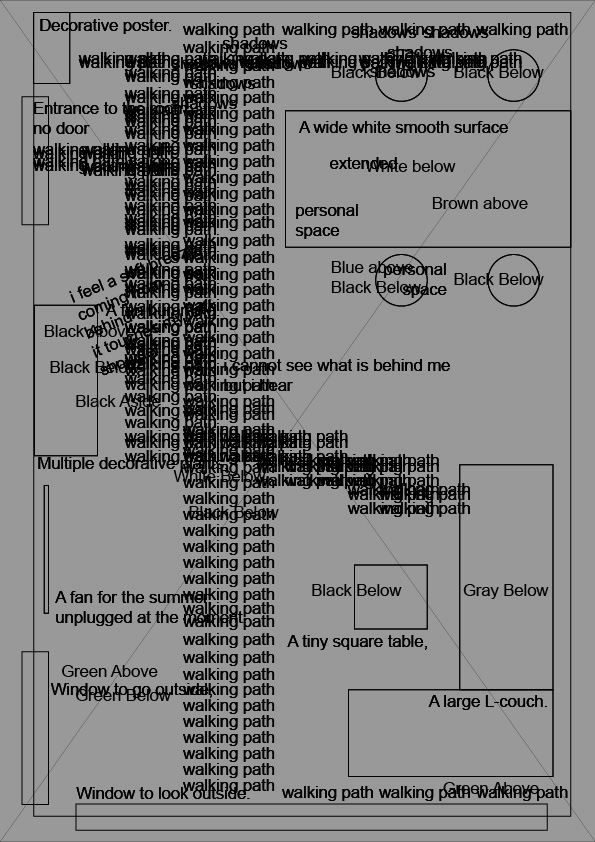
–––––––––––––––––––––––––––––––––––––––––––––––––––––––––––––––––––––––
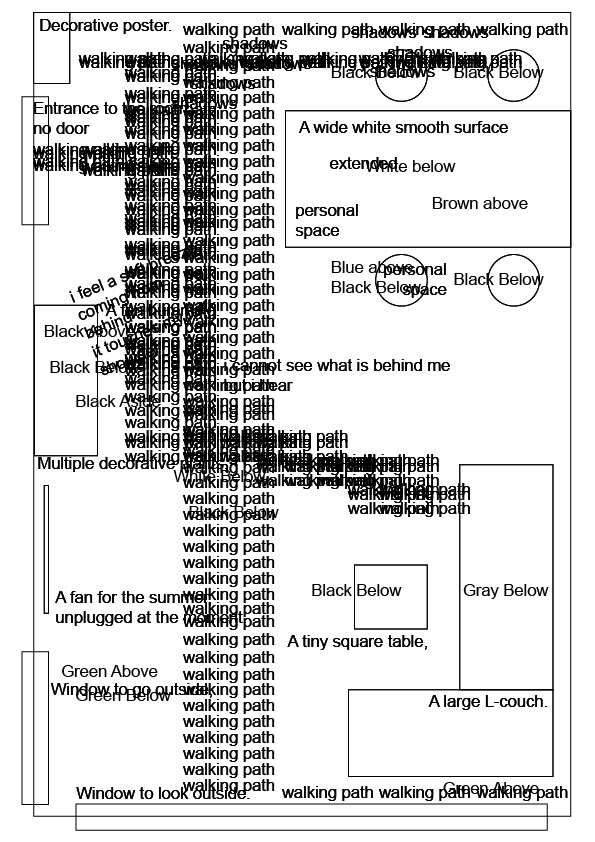
–––––––––––––––––––––––––––––––––––––––––––––––––––––––––––––––––––––––
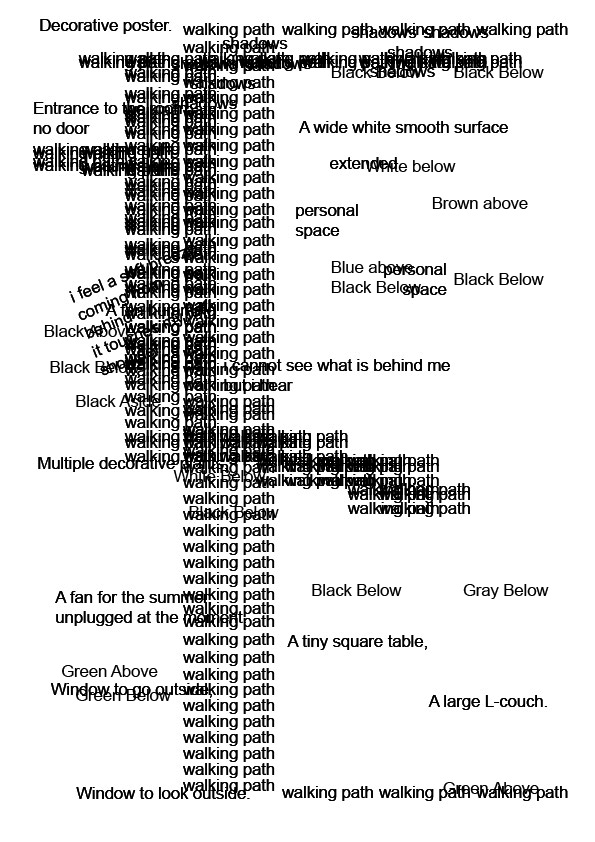
–––––––––––––––––––––––––––––––––––––––––––––––––––––––––––––––––––––––
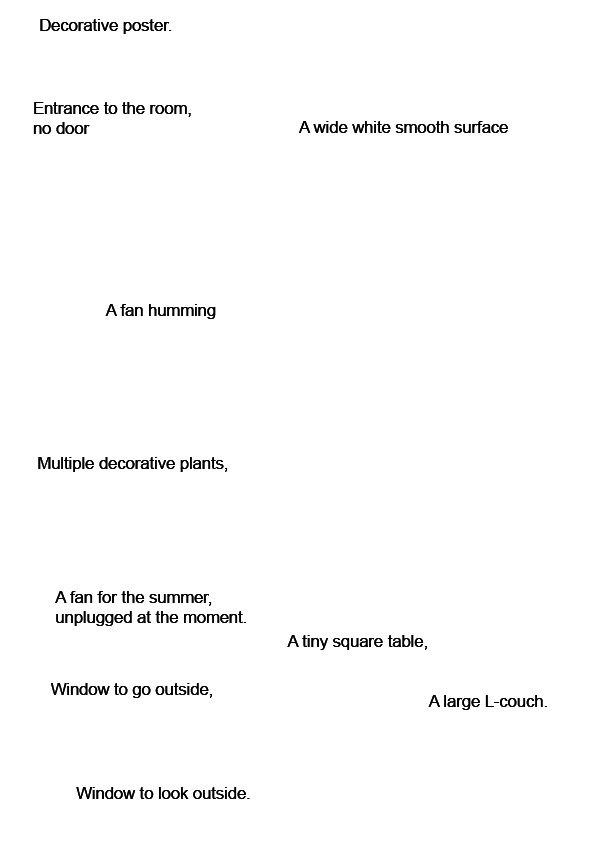
–––––––––––––––––––––––––––––––––––––––––––––––––––––––––––––––––––––––
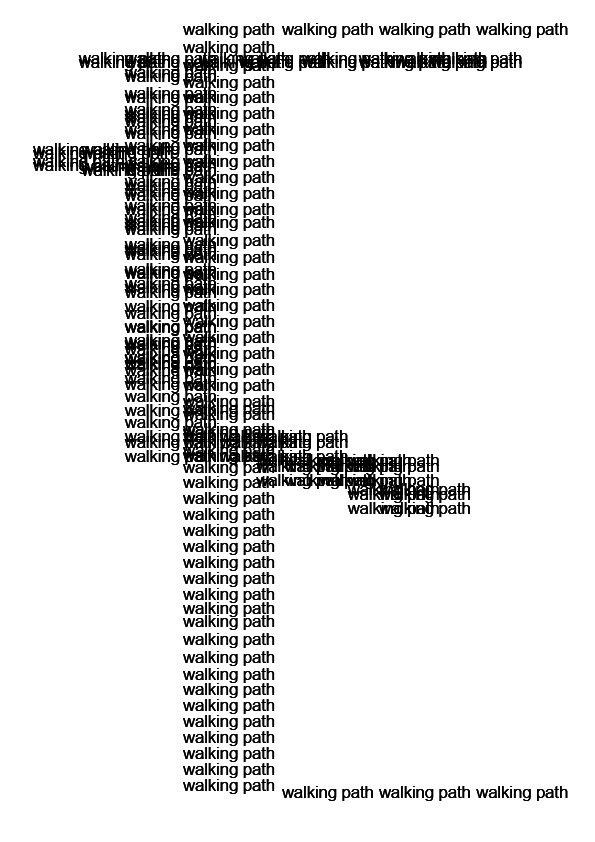
–––––––––––––––––––––––––––––––––––––––––––––––––––––––––––––––––––––––
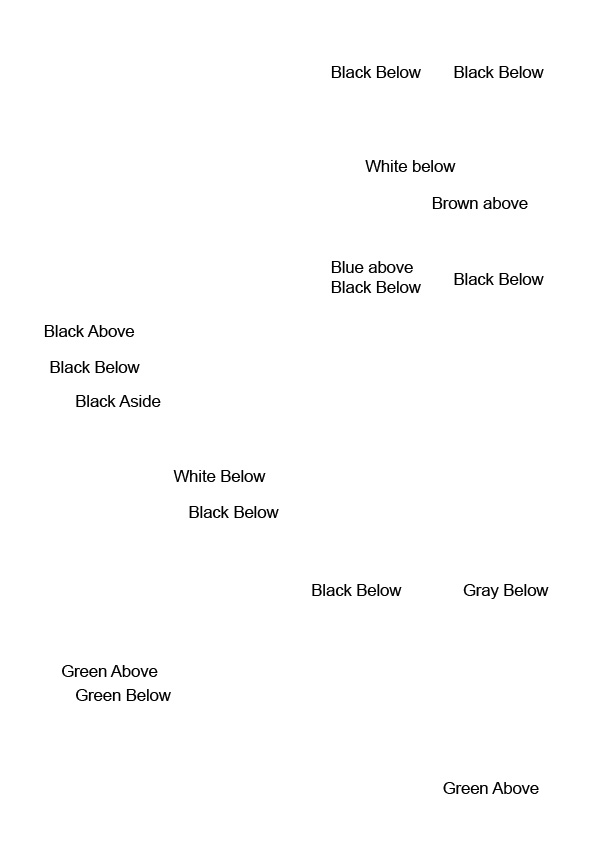
–––––––––––––––––––––––––––––––––––––––––––––––––––––––––––––––––––––––
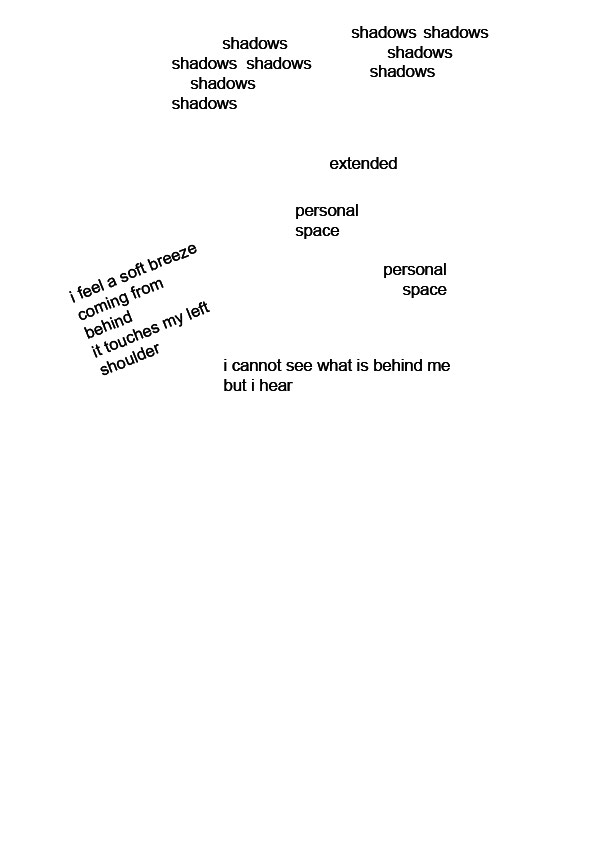
–––––––––––––––––––––––––––––––––––––––––––––––––––––––––––––––––––––––
Experiment 2
For this experiment, four of us were gathered in a room.
[ ] Number of participants: 4
[ ] Location: Supi's living room
[ ] Aim: Map out each participant's impressions of a photograph of an unknown room
[ ] Material: photograph of an unknown room (shown on a display), sticky notes in 4 colours, pens
[ ] Time-frame: 5 minutes
[ ] Instructions: individually annotate the photograph with impressions of the unknown room
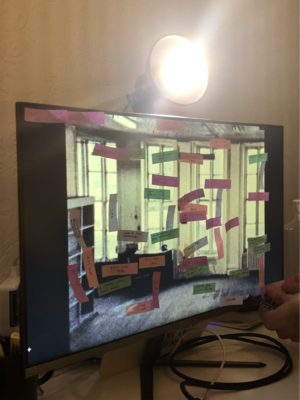
––––––––––––––––––––––––––––––––––––
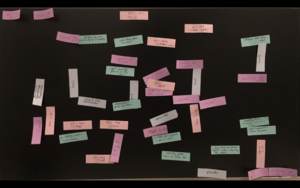
––––––––––––––––––––––––––––––––––––
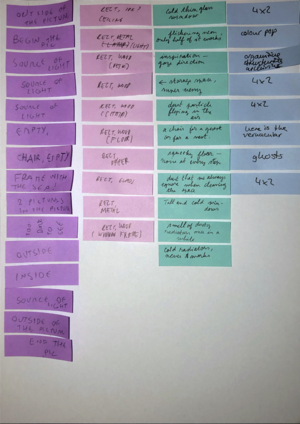
––––––––––––––––––––––––––––––––––––
Each of us used a different set of coloured sticky notes and took 5 minutes to physically annotate the picture on the same surface. The picture was then removed from the background, resulting in a similar outcome as the experiment described above.
From these observations, our interest on subjective annotations that could flow in a common understanding of an image grew. As a tool to collect situated impressions, we elaborated the idea of the Annotation Compass.
On a given surface, such as an image, the tool facilitates the collection of annotations and their coordinates from various users simultaneously. These annotations represent individual knowledges and perspectives in regards to the given surface.
Visual Experiments
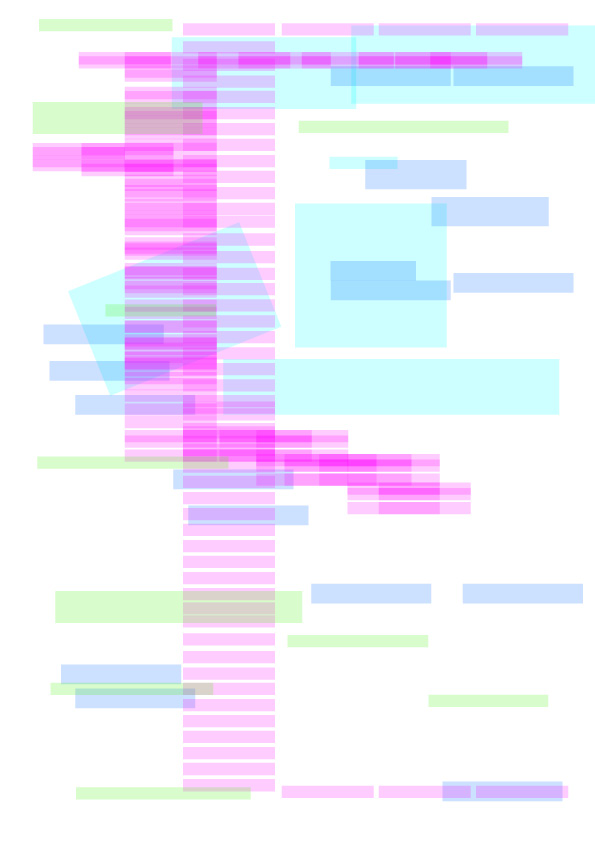
–––––––––––––––––––––––––––––––––––––––––––––––––––––––––––––––––––––––
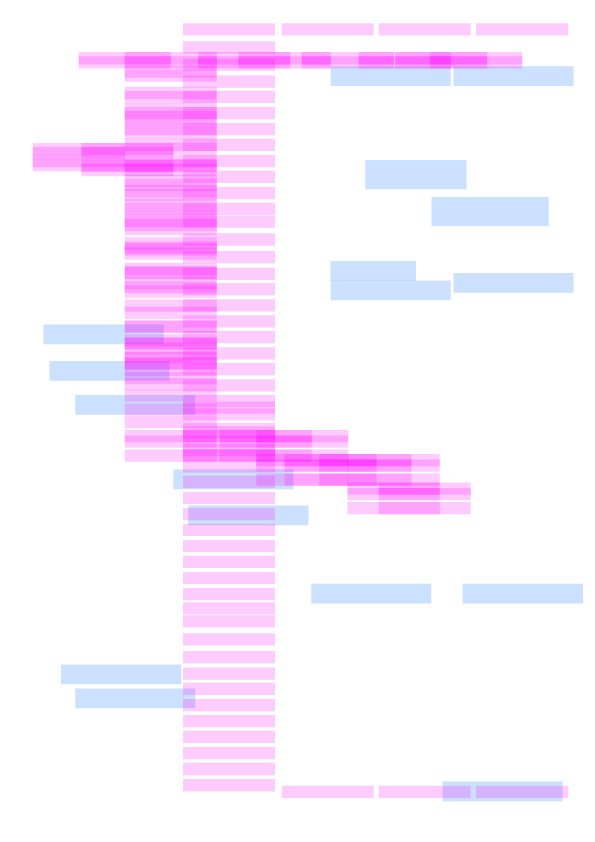
–––––––––––––––––––––––––––––––––––––––––––––––––––––––––––––––––––––––
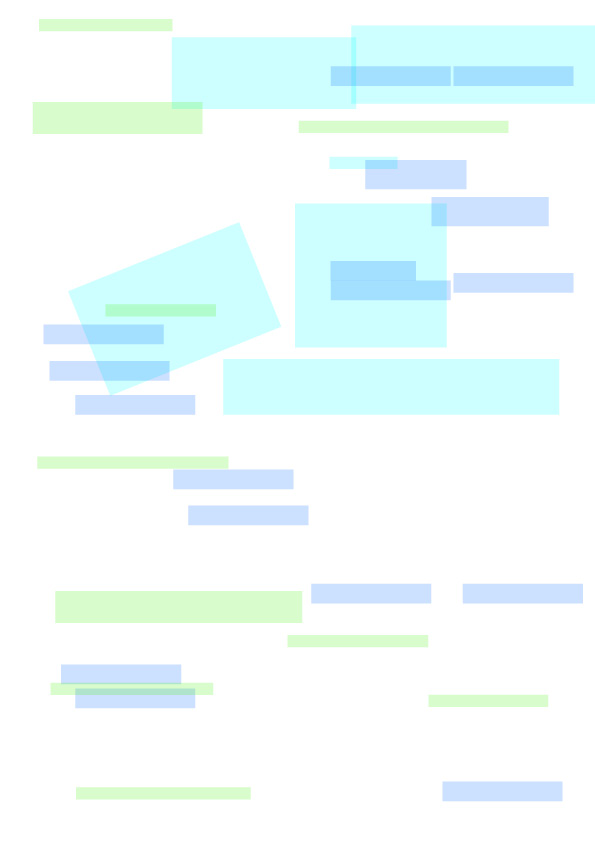
–––––––––––––––––––––––––––––––––––––––––––––––––––––––––––––––––––––––
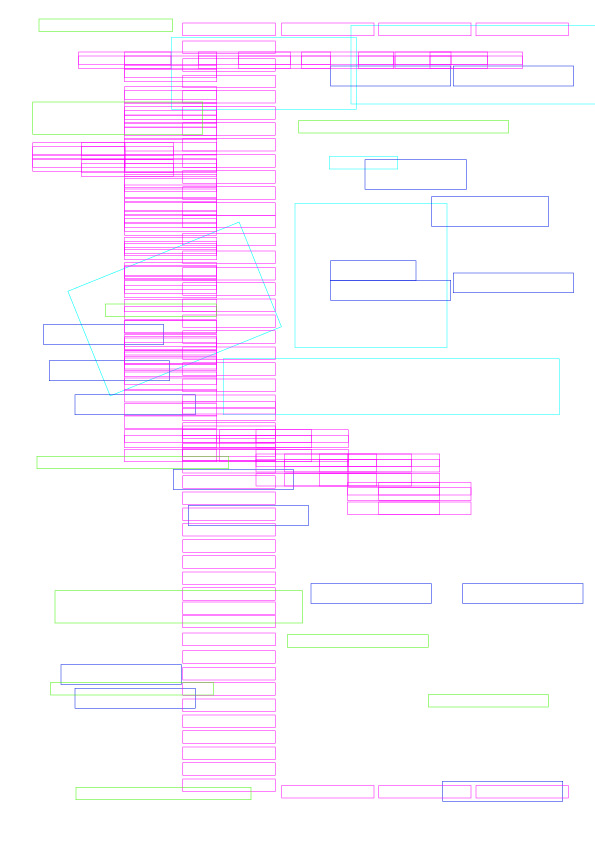
–––––––––––––––––––––––––––––––––––––––––––––––––––––––––––––––––––––––
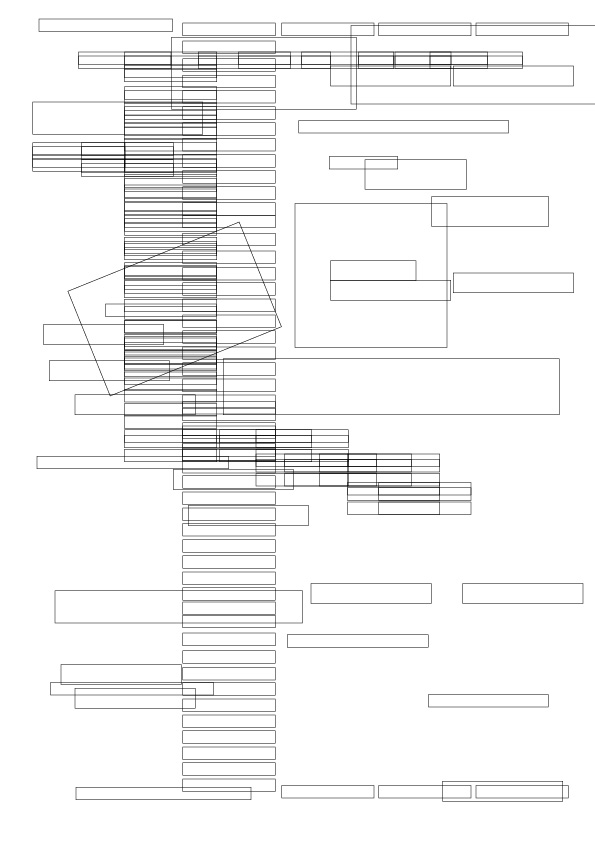
–––––––––––––––––––––––––––––––––––––––––––––––––––––––––––––––––––––––
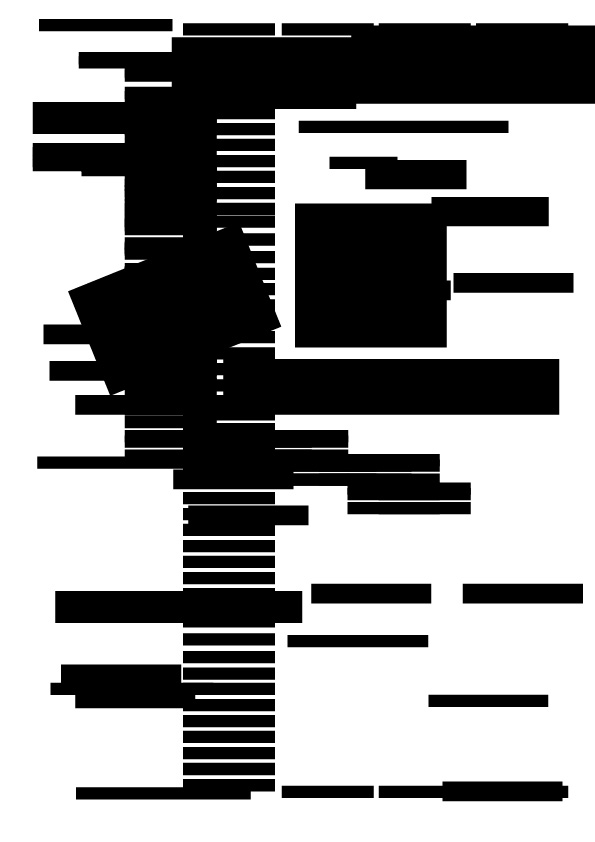
–––––––––––––––––––––––––––––––––––––––––––––––––––––––––––––––––––––––
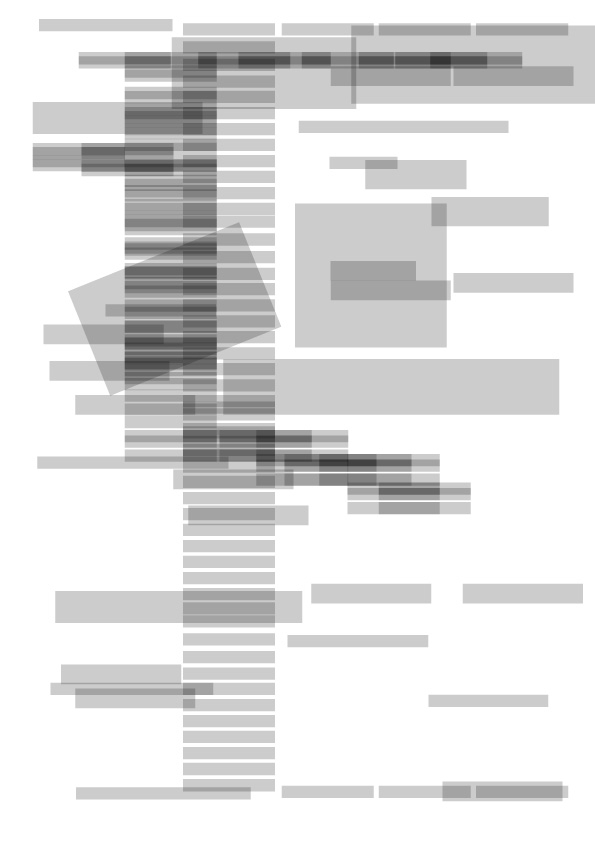
–––––––––––––––––––––––––––––––––––––––––––––––––––––––––––––––––––––––
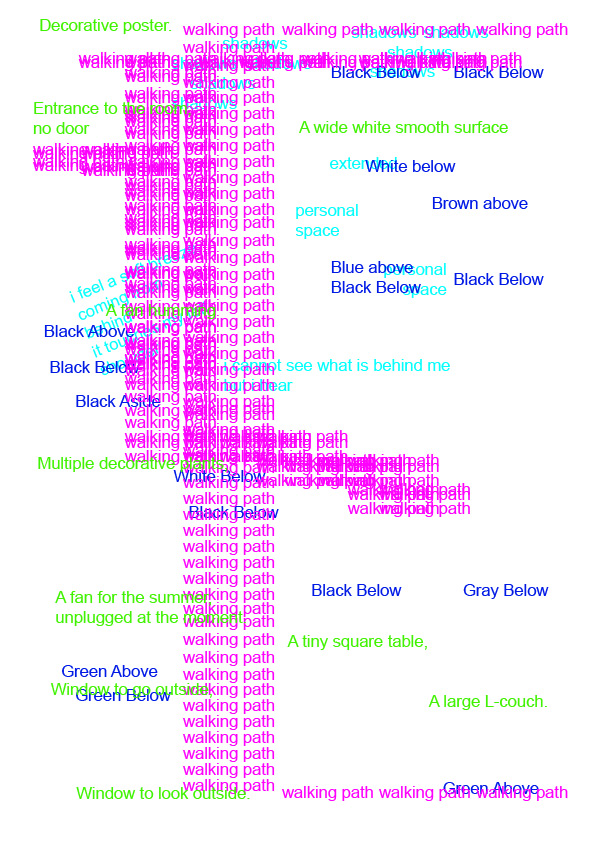
–––––––––––––––––––––––––––––––––––––––––––––––––––––––––––––––––––––––
The Annotation Compass as part of Special Issue #16
In the end we came up with a tool, the "Annotation Compass":
Annotation Compass
The Annotation Compass as part of Special Issue #16
Rejection Map
Rough Notes
[ ] Being together and share space while acknowledging differences
[ ] Share experiences while acknowledging different backgrounds
[ ] embrace multiple ways of knowing and feeling of the world
[ ] Rejection map of Rotterdam
[ ] Ask you to share moments of rejection and
[ ] Second of acceptance
[ ] Where you experienced or witnessed
[ ] Since a lot is happening online you can still locate it
[ ] Try to really situate it (is it a specific house or a whole neighborhood)
[ ] Not only you but witness
[ ] It can be related to housing, relationship, school or job, to you being new in the city, new in traffic, community, language
[ ] It can be only one word describing the situation or your feelings, or a little anecdote
[ ] Use you very own words, nothing is expected from you
[ ] It can be cryptic (eg using slang, your mother tongue, only glyphs not words) if you dont want it to be a secret
[ ] Reflection or memories, but you can also overwrite it with something new, hopes
[ ] Where you rejected a thought
[ ] Create non existing landscapes
Functions
All of the following functions were built for a project where individuals are invited to add their annotations on a map using the Annotation Compass. Each annotation-label is stored in a json-file and includes the annotation-text itself, but also the name of the image-file as well as the position, size, index, timestamp and userID of the annotation.
Example for a label:
{'image': 'map.jpg',
'position': {'x': 12, 'y': 97},
'size': {'width': 43, 'height': 18},
'text': 'This is a text! Is this a text?',
'timestamp': 'Wed, 01 Dec 2021 14:04:00 GMT',
'userID': 5766039063}
individual_maps()
https://hub.xpub.nl/soupboat/si16/functions/html_tag/
If interested in all annotations of one or more specific users, individual_map() can help. The function needs a string with the name of the of the image-file that was annotated with the annotation compass tool as well as one or more specific userIDs to target. The output is a list of all labels from the users of interest.
def individual_map(image: str, users: list ) -> list:
"""give a string with the name of the image-file that was annotated with the Annotation Compass; Select one or more specific users and return a list of all labels from these users."""
from urllib.request import urlopen
import json
url = f"https://hub.xpub.nl/soupboat/si16/annotation-compass/get-labels/{image}/"
response = urlopen(url)
data_json = json.loads(response.read())
filtered_map = []
for label in data_json['labels']:
for user in users:
if label['userID'] == user:
filtered_map.append(label)
return filtered_map
vernacular_map()
https://hub.xpub.nl/soupboat/si16/functions/vernacular_map/
If interested in all annotations vernacular_map() can help. The function needs a string with the name of the of the image-file that was annotated with the annotation compass tool. The output is a string that includes all annotation-texts plus html-tags that place them back into their original position.
def vernacular_map(image: str) -> str:
"""Give a string with the name of the image-file that was annotated with the Annotation Compass; Return a string that includes all annotation-texts plus html-tags that place them back into their original position."""
from urllib.request import urlopen
import json
url = f"https://hub.xpub.nl/soupboat/si16/annotation-compass/get-labels/{image}/"
response = urlopen(url)
data_json = json.loads(response.read())
filtered_map = '<link rel="stylesheet" href="/soupboat/si16/static/css/jian.css">'
for label in data_json['labels']:
html_tag = f'<p style="left: {label["position"]["x"]}%; top: {label["position"]["y"]}%; position: absolute;">{ label["text"] }</p>'
filtered_map = filtered_map + html_tag
return filtered_map
area_map()
https://hub.xpub.nl/soupboat/si16/functions/area_map/
If interested in the annotations in a specific area of the map, area_map() can help. The function needs a string with the name of the of the image-file that was annotated with the annotation compass tool as well as four specific values to define the left, right, top and bottom outlines of the selected area. The output is a list of all labels in the defined area of interest.
def area_map(image: str, left: int, right: int, top: int, bottom: int ) -> list:
"""Give a string with the name of the image-file that was annotated with the Annotation Compass; Select a specific area of the image, return a list of all labels in that specific area."""
from urllib.request import urlopen
import json
url = f"https://hub.xpub.nl/soupboat/si16/annotation-compass/get-labels/{image}/"
response = urlopen(url)
data_json = json.loads(response.read())
filtered_map = []
for label in data_json['labels']:
if left <= (label['position']['x']) <= right and top <= (label['position']['y']) <= bottom:
filtered_map.append(label)
return filtered_map
target_map()
https://hub.xpub.nl/soupboat/si16/functions/target_map/
If interested in all annotations that include one or more specific targets, target_map() can help. The function needs a string with the name of the of the image-file that was annotated with the annotation compass tool as well as one or more specific targets. The output is a list of all labels that include these targets.
def target_map(image: str, targets: list ) -> list:
"""Give a string with the name of the image-file that was annotated with the Annotation Compass; Select one or more specific targets and return a list of all labels that include these targets."""
from urllib.request import urlopen
import json
url = f"https://hub.xpub.nl/soupboat/si16/annotation-compass/get-labels/{image}/"
response = urlopen(url)
data_json = json.loads(response.read())
filter_map = []
for label in data_json['labels']:
for target in targets:
if target in label['text']:
filter_map.append(label)
return filter_map
highlight_map()
https://hub.xpub.nl/soupboat/si16/functions/highlight_map/
If interested in all annotations that include a specific target, highlight_map() can help. The function needs a string with the name of the of the image-file that was annotated with the annotation compass tool and a target-word. The output is a string that includes all annotation-texts plus html-tags that place them back into their original position while highlighting the annotation-texts that include the target.
def highlight_map(image: str, target: str ) -> str:
"""Give a string with the name of the image-file that was annotated with the Annotation Compass; Give a target-word; Return a string that includes all annotation-texts plus html-tags that place them back into their original position while highlighting the annotation-texts that include the target."""
from urllib.request import urlopen
import json
url = f"https://hub.xpub.nl/soupboat/si16/annotation-compass/get-labels/{image}/"
response = urlopen(url)
data_json = json.loads(response.read())
filtered_map = '<link rel="stylesheet" href="/soupboat/si16-app/static/css/jian.css">'
for label in data_json['labels']:
if target in label['text']:
highlight_tag = f'<p class="highlight" style="left: {label["position"]["x"]}%; top: {label["position"]["y"]}%; position: absolute;">{ label["text"] }</p>'
filtered_map = filtered_map + highlight_tag
else:
html_tag = f'<p class="lowlight" style="left: {label["position"]["x"]}%; top: {label["position"]["y"]}%; position: absolute;">{ label["text"] }</p>'
filtered_map = filtered_map + html_tag
return filtered_map
ghost_map()
https://hub.xpub.nl/soupboat/si16/functions/ghost_map/
If interested in the traces the annotations leave, ghost_map() can help. The function needs a string with the name of the of the image-file that was annotated with the annotation compass tool as well as a ghost-glyph that will replace all characters of the annotation-texts. The output is a string that includes all replaced annotation-texts plus html-tags that place them back into their original position.
def ghost_map(image: str, ghost_glyph: str ) -> str:
"""give a string with the name of the image-file that was annotated with the Annotation Compass; Replace all characters of all annotation-texts with a ghost-glyph and return a string that includes all replaced annotation-texts plus html-tags that place them back into their original position."""
from urllib.request import urlopen
import json
url = f"https://hub.xpub.nl/soupboat/si16/annotation-compass/get-labels/{image}/"
response = urlopen(url)
data_json = json.loads(response.read())
filtered_map = '<link rel="stylesheet" href="/soupboat/si16/static/css/jian.css">'
for label in data_json['labels']:
replaced_text = ''
for char in label['text']:
replaced_char = char
if not char.isspace():
replaced_char = ghost_glyph
replaced_text = replaced_text + replaced_char
html_tag = f'<p class="lowlight" style="left: {label["position"]["x"]}%; top: {label["position"]["y"]}%; position: absolute;">{ replaced_text }</p>'
filtered_map = filtered_map + html_tag
return filtered_map
html_tag()
https://hub.xpub.nl/soupboat/si16/functions/html_tag/
The following functions need to be combined with the HTML-tag-function to generate visual outcome:
[ ] individual_map()
[ ] area_map()
[ ] target_map()
If interested in the position, text, timestamp and/or userID of all annotations, html_tag() can help. The function needs a string with the name of the of the image-file that was annotated with the annotation compass tool as well as four Boolean Values that define which information is of interest. The output is a string that can include the position, text, timestamp and/or userID of all labels plus html-tags that place them back into their original position.
def html_tag(image: str, position: bool, text: bool, timestamp: bool, userID: bool ) -> str:
"""Give a string with the name of the image-file that was annotated with the Annotation Compass; Return a string that can include the position, text, timestamp and/or userID of all labels plus html-tags that place them back into their original position."""
from urllib.request import urlopen
import json
url = f"https://hub.xpub.nl/soupboat/si16/annotation-compass/get-labels/{image}/"
response = urlopen(url)
data_json = json.loads(response.read())
html_tags = '<link rel="stylesheet" href="/soupboat/si16/static/css/jian.css">'
for label in data_json['labels']:
html_tags = html_tags + f'<p style="left: {label["position"]["x"]}%; top: {label["position"]["y"]}%; position: absolute;">'
if position == True:
html_position = f'{ label["position"] } '
html_tags = html_tags + html_position
if text == True:
html_text = f'{ label["text"] } '
html_tags = html_tags + html_text
if timestamp == True:
html_timestamp = f'{ label["timestamp"] } '
html_tags = html_tags + html_timestamp
if userID == True:
html_userID = f'{ label["userID"] } '
html_tags = html_tags + html_userID
html_tags = html_tags + '</p>'
return html_tags
How the functions are used for the Rejection Map:
https://hub.xpub.nl/soupboat/si16/projects/annotation-compass/rejection_map/
Visual Experiments
Rejection Map of Rotterdam as part of the Special Issue #16
Rejection Map of Rotterdam as part of the Special Issue #16
What the book is
»My definition of the book grew until I realized, there can be none. To define anything limits it to your past resolutions with no room to expand.«
KEITH A. SMITH
Investigate the holonym-meronym relations for the book
NLTK wordnet: There are three kinds of holonym-meronym relations:
[ ] member_meronyms()
[ ] part_meronyms()
[ ] substance_meronyms()
[ ] member_holonyms()
[ ] part_holonyms()
[ ] and substance_holonyms()
from nltk.corpus import wordnet as wn
wn.synsets('book')
[Synset('book.n.01'),
Synset('book.n.02'),
Synset('record.n.05'),
Synset('script.n.01'),
Synset('ledger.n.01'),
Synset('book.n.06'),
Synset('book.n.07'),
Synset('koran.n.01'),
Synset('bible.n.01'),
Synset('book.n.10'),
Synset('book.n.11'),
Synset('book.v.01'),
Synset('reserve.v.04'),
Synset('book.v.03'),
Synset('book.v.04')]
wn.synset('book.n.02').lemma_names()
['book', 'volume']
wn.synset('book.n.02').definition()
'physical objects consisting of a number of pages bound together'
sorted(lemma.name() for synset in types_of_book for lemma in synset.lemmas())
['album',
'coffee-table_book',
'folio',
'hardback',
'hardcover',
'journal',
'notebook',
'novel',
'order_book',
'paper-back_book',
'paperback',
'paperback_book',
'picture_book',
'sketch_block',
'sketch_pad',
'sketchbook',
'soft-cover',
'soft-cover_book',
'softback',
'softback_book']
[synset.name() for synset in paths[0]]
['entity.n.01',
'physical_entity.n.01',
'object.n.01',
'whole.n.02',
'artifact.n.01',
'creation.n.02',
'product.n.02',
'book.n.02']
wn.synset('book.n.02').part_meronyms()
[Synset('binding.n.05'), Synset('fore_edge.n.01'), Synset('spine.n.04')]
for synset in wn.synsets('book', wn.NOUN):<br>
print(synset.name() + ':', synset.definition())
book.n.01: a written work or composition that has been published (printed on pages bound together)
book.n.02: physical objects consisting of a number of pages bound together
record.n.05: a compilation of the known facts regarding something or someone
script.n.01: a written version of a play or other dramatic composition; used in preparing for a performance
ledger.n.01: a record in which commercial accounts are recorded
book.n.06: a collection of playing cards satisfying the rules of a card game
book.n.07: a collection of rules or prescribed standards on the basis of which decisions are made
koran.n.01: the sacred writings of Islam revealed by God to the prophet Muhammad during his life at Mecca and Medina
bible.n.01: the sacred writings of the Christian religions
book.n.10: a major division of a long written composition
book.n.11: a number of sheets (ticket or stamps etc.) bound together on one edge
Coding the book generator
with open('/dev/usb/lp0', 'w') as lp:
import datetime
now = datetime.datetime.now()
#print ("Current date and time : ")
print('////////////////////////////////', file = lp)
print('////////////////////////////////', file = lp)
print('////////////////////////////////', file = lp)
print('', file = lp)
print (now.strftime("%Y-%m-%d %H:%M:%S"), file = lp)
print('', file = lp)
print('////////////////////////////////', file = lp)
from random import choice
thing = ["A BOOK"]
item = ["AN OBJECT", "AN ARTIFACT", "A KNOT", "A COLLECTION", "AN ARCHIVE", "A PORTABLE DATA STORAGE",
"THE PHYSICAL SUPPORT OF TEXT", "AN INTIMATE SPACE", "AN IDEA", "A PERFROMANCE", "AN EVENT", "A PHENOMENON OF SPACE AND TIME",
"A SEQUENCE OF ROOMS", "A SEQUENCE OF MOMENTS", "AN INTERFACE", "A DEVICE", "AN ITEM", "AN EXHIBITION", "A STAGE", "A FRAMEWORK", "AN ENTITY"]
structure = ["A SYSTEM OF KNOTTED STRINGS", "LAYERS", "NODES AND LINKS", "INTERCONNECTIONS","A VARIETY OF MATERIALS",
"JUXTAPOSITIONS", "A RECOMBINANT STRUCTURE", "THE POWER OF PUBLICATION", "ANY NUMBERS OF PHYSICAL FORMS", "WORDS",
"WHITE SPACE AND BLACK SPACE"]
action = ["TO PROVIDE", "TO SHOW", "TO PUBLISH", "TO CONSERVE", "TO PRESENT", "TO EXCHANGE", "TO FIND", "TO CREATE", "TO PRODUCE", "TO EXPERIENCE", "TO OFFER",
"TO TRANSFER", "TO DELINEATE", "TO PROCESS"]
attribute = ["RANDOM", "SEQUENTIAL", "ISOLATED", "CERTAIN", "PRECISE", "NAVIGATIONAL", "CONTEXTUAL", "SPECIFIC", "PERFORMATIVE", "SITUATED", "SUBJECTIVE",
"OBJECTIVE", "USEFUL", "UNIVERSAL", "DIVERSE", "EXCITING", "COMPLEX", "ABSTRACT", "DISTINCT", "NEW"]
purpose = ["ACCESS", "KNOWLEDGE", "EXPERIENCE", "EXPECTATION", "ORIENTATION", "THOUGHTS", "NAVIGATION", "DISCURSE", "INFORMATION", "MEANING", "PURPOSE", "COMMUNICATION", "INTERACTION", "NEGOTIATION", "INCARNATIONS", "TRUTH"]
print('', file = lp)
print('', file = lp)
print('A BOOK', file = lp)
print('', file = lp)
print('IS ' + choice(item), file = lp)
print('', file = lp)
print(' USING ' + choice(structure), file = lp)
print('', file = lp)
print(' ' + choice(action), file = lp)
print('', file = lp)
print(' ' + choice(attribute), file = lp)
print('', file = lp)
print('' + choice(purpose), file = lp)
print('', file = lp)
print('', file = lp)
print('', file = lp)
2022-02-05 16:26:08
A BOOK
IS A PORTABLE DATA STORAGE
USING WORDS
TO PROVIDE
COMPLEX
EXPECTATION
2022-02-05 16:26:56
A BOOK
IS AN ARCHIVE
USING THE POWER OF PUBLICATION
TO PROCESS
SEQUENTIAL
DISCURSE
2022-02-05 16:27:05
A BOOK
IS A DEVICE
USING LAYERS
TO FIND
COMPLEX
ACCESS
2022-02-05 16:27:14
A BOOK
IS AN OBJECT
USING WHITE SPACE AND BLACK SPACE
TO PRODUCE
COMPLEX
KNOWLEDGE
2022-02-05 16:27:22
A BOOK
IS A PORTABLE DATA STORAGE
USING JUXTAPOSITIONS
TO FIND
OBJECTIVE
TRUTH
Visual Experiments
Cocktail Generator
Coding the Cocktail Generator
Randomly chooses ingredients from a menu for a nice cocktail recipe:
def cocktail_generator(alcohol: list, decor: list) -> str:
"""randomly chooses ingredients from a menu for a nice cocktail recipe"""
import datetime
from datetime import timedelta
now = datetime.datetime.now() + timedelta(hours=1)
from random import choice
base = ["ORANGE JUICE", "PINEAPPLE JUICE", "APPLE JUICE", "MANGO JUICE", "FRIZZY WATER", "GRAPEFRUIT JUICE", "TONIC WATER"]
sour = ["LEMON JUICE", "LIME JUICE", "PASSION FRUIT"]
sweet = ["AGAVE SIRUP", "SUGAR SIRUP", "MAPLE SIRUP"]
omph = ["1 SLICE GINGER", "2 LEAVES MINT", "1 SLICE CUCUMBER", "1 STICK CINNAMON", " SALT RIM"]
snack = ["CHIPS", "SALTED CORN", "PRETZELS", "SALTED NUTS"]
XPUB1 = [" (*(*(*(*(*.(*.*).*)*)*)*)*)*)", " (^(^(^(^(^.(^.^).^)^)^)^)^)^)"]
drink = ["""
___,
'._.'\
_____/'-.\
| / |
|~-~/-~|
\ () /
'.__.'
||
_||_
`----` """, """
.
. .
|^ .
\O___.____ /
\ . /
\ ,/
[]
[]
[]
--------
""", """
\
.-\""""""""-.
\ \__ o . /
\/ \ o/
\__/. /
\_ _/
Y
|
_.-' '-._
`---------` """]
recipe = f"""
<pre>
*=*=*=*=*=*=*=*=*=*=*=*=*=*=*=*
*=*=*=*=*=*=*=*=*=*=*=*=*=*=*=*
* *
* CATWALKING WITH ALCOHOL *
* *
* {now.strftime("%Y-%m-%d %H:%M:%S")} *
* *
*=*=*=*=*=*=*=*=*=*=*=*=*=*=*=*
*=*=*=*=*=*=*=*=*=*=*=*=*=*=*=*
2 oz {choice(alcohol)}
150 ml {choice(base)}
1 oz {choice(sour)}
0.5 oz {choice(sweet)}
{choice(omph)}
1 {choice(decor)}
*=*=*=*=*=*=*=*=*=*=*=*=*=*=*=*
EXTRA: {choice(snack)}
*=*=*=*=*=*=*=*=*=*=*=*=*=*=*=*
___,
'._.'\
_____/'-.\
| / |
|~-~/-~|
\ () /
'.__.'
||
_||_
`----`
THANKS FOR COMING TO OUR LAUNCH!
{choice(XPUB1)}
*=*=*=*=*=*=*=*=*=*=*=*=*=*=*=*
*=*=*=*=*=*=*=*=*=*=*=*=*=*=*=*
</pre>
"""
return recipe
This function generates amazing cocktail recipes for you to try! The cocktail menu includes the categories alcohol, base, sour, sweet and omph. There is also a category for a decorative gadget and one for an extra snack. Each category has a default list of ingredients and the function randomly chooses one ingredient per category. You prefer Rum and Tequila over Vodka? Or maybe you want a non-alcoholic cocktail? Don´t worry! For the categories alcohol and decor you can insert your own ingredients to pick from. Enjoy!
Menu: default ingredients: base = ORANGE JUICE, PINEAPPLE JUICE, APPLE JUICE, MANGO JUICE, FRIZZY WATER, GRAPEFRUIT JUICE, TONIC WATER sour = LEMON JUICE, LIME JUICE, PASSION FRUIT sweet = AGAVE SIRUP, SUGAR SIRUP, MAPLE SIRUP omph = 1 SLICE GINGER, 2 LEAVES MINT, 1 SLICE CUCUMBER, 1 STICK CINNAMON, SALT RIM snack = CHIPS, SALTED CORN, PRETZELS, SALTED NUTS users ingredients: alcohol = decor =
In this exmaple the function chooses between three alcoholic ingredients and two decoratin gadgets
print(cocktail_generator(['VODKA', 'TEQUILA', 'RUM'], ['UMBRELLA', 'PALMTREE', 'FLAMINGO']))
*=*=*=*=*=*=*=*=*=*=*=*=*=*=*=*
*=*=*=*=*=*=*=*=*=*=*=*=*=*=*=*
* *
* CATWALKING WITH ALCOHOL *
* *
* 2021-12-14 14:08:04 *
* *
*=*=*=*=*=*=*=*=*=*=*=*=*=*=*=*
*=*=*=*=*=*=*=*=*=*=*=*=*=*=*=*
2 oz VODKA
150 ml GRAPEFRUIT JUICE
1 oz LEMON JUICE
0.5 oz SUGAR SIRUP
1 SLICE CUCUMBER
1 UMBRELLA
*=*=*=*=*=*=*=*=*=*=*=*=*=*=*=*
EXTRA: SALTED CORN
*=*=*=*=*=*=*=*=*=*=*=*=*=*=*=*
___,
'._.'\
_____/'-.\
| / |
|~-~/-~|
\ () /
'.__.'
||
_||_
`----`
THANKS FOR COMING TO OUR LAUNCH!
(^(^(^(^(^.(^.^).^)^)^)^)^)^)
*=*=*=*=*=*=*=*=*=*=*=*=*=*=*=*
*=*=*=*=*=*=*=*=*=*=*=*=*=*=*=*
How to change file on Raspberry Pi
How to communicate with the Raspberry Pi via the Terminal: 1. Connect both the raspberry pi and the computer to internet via ethernet (or: connect pi and computer to the same network) 2. Open terminal, type: ssh pi@raspberrypi.local (or, if the pi and computer are connected to the same network: ssh pi@ip-address-of-the-pi) 3. Give default password: raspberry 4. List files: ls (in this case it should list only one python file: final.py) 5. To access the file via GNU nano: sudo nano final.py (or just nano final.py)
Change the code directly on the Pi (small changes) [ ] change code by hand [ ] confirm with: control + O "Write out" [ ] enter to confirm and control X to go back to terminal
Or change the code in python file on your computer (bigger changes) [ ] delete the content of the final.py file [ ] delete a line in the file: control + k [ ] copy/paste the changed code from the file on your computer [ ] confirm with: control + O "Write out" [ ] enter to confirm and control X to go back to terminal
More important comments in ssh: [ ] Remove = delete a file: rm final.py [ ] Copy a file: cp old_file new_file [ ] Move = rename a file: mv old_name new_name
After the changes of the file, maybe reboot raspberry pi: sudo reboot [ ] To run the code via the terminal: python3 final.py [ ] To stop the code via the terminal: control + c [ ] To exit the ssh without rebooting the pi: exit
Question: How can I run the code without using the terminal?
How to copy a file from the Raspberry Pi to your computer via the Terminal: [ ] use ssh to copy the name of the file you want to copy to your computer [ ] exit ssh: exit [ ] scp pi@<IP Address of Raspberry Pi>:<Path to File> . [ ] Beispiel: scp pi@145.24.131.107:NEW.py . (“ .” at the end copies it to your current directory on your computer (test where you are by typing “pwd”) [ ] Passwort vom Pi eingeben
Trying to setup a new Button
Message to Chae:
Lets try a very simple and easy setup that uses the new button, only without its LED light (the LED needs 12V and extra power source, so its too complicated)
1. Take photo of current setup (so that you can always go back to it!) 2. Look at the switch that comes with the new button, it should look like this (Fig. 1) 3. Leave the cable on the pins of the raspberry pi! 4. On each pin you have a female cable + a male cable that connect to the breadboard 5. Pull both males out of the breadboard 6. These two are now connected to the switch following this scheme (Fig. 2 + 3) 7. You can connect them with tape for now to test if it works! 8. The switch now has to be put into the button –it should slide in or something like that and sits behind the LED that we do not use (Fig. 4) 9. Test if it works! If yes, HURRRRAAY! If no, forget about our brillant new button, we will make it work in January and use it at the next event!
The Cocktail Generator as part of Special Issue #16
Reflection Diary
What did you like about the process of creating the Special issue 16?
[ ] getting to know all of you
[ ] the high energy level and dynamic in the group
[ ] the excitement of diving into something completely new (especially with coding and collective working)
[ ] coding
[ ] collective working
What would you like to keep in the process for the next special issue?
[ ] the high energy level and dynamic in the group
[ ] being curious and adventurous
What did you not like about the whole journey?
[ ] serious moments of frustration – sorry to everyone!
[ ] that the technical part of the special issue 16 couldnt be equally distributed (because we aimed too high?)
[ ] that we got carried away in the project-subgroups and lost the view for the whole picture
What would you like to do differently for Special Issue 17? Feel free to elaborate in more specifics.
when we started to work on the special issue 16 i thought there could be two ways to approach it:
- work on ONE in-depth project with the whole group
- work on small individual projects or experiments and bring them together in the special issue
i think we ended up doing something inbetween: three projects that are too small on their own and too big and complex to bring them together as the special issue 16. i mean – it works, but its quite messy, not consistent and doesnt carry a clear message. i feel a bit sad about it and would love to try option 1 or 2 next time! it would also mean to take responsibility for the content and the audience!
there is a whole collection:
[ ] meeting the class (most of them) at the central station for the firt time <3
[ ] the day i coded the book generator, it was the first time i realised that coding can be useful and connected to my research
[ ] the workshop series at Roodkapje – first time being introduced to an Arduino
[ ] THE LONG DAY WITH CHRISTINA, it was a milestone
[ ] the day Michael and Manetta introduced the flask application, i was super excited and frustrated at the same time
[ ] many coding moments with kamo – thanks!!!
[ ] everyones support when i needed to leave Rotterdam in the last week of the project – it wasnt easy to go and all your messages were amazing and helped me a lot!
What was the most challenging thing while working in the big group; and in the sub-groups?
[ ] to be on the same page (this refers to decision-making but also communication in general)
[ ] i think that we got carried away in the project-subgroups
What did you learn during the Prototyping classes (Michael & Manetta)? What will you keep from them?
EVERYTHING!!!!!
What did you learn during the Special issue classes (Cristina & Steve)? What will you keep from them?
[ ] how to annotate as a group
[ ] how to have check-in moments
[ ] methods for collective decision-making
How would you describe your overall experience of doing this special issue?
on the surface: AMAZING
below that: mixed feelings of "maybe we could or should have done it differently?"
How will you use what you have learned this trimester in your personal practice?
[ ] i will continue my coding journey and try to find more overlaps with my graphic-design and book-design practice
[ ] i will experiment with my arduino and the raspberry pi i got for christmas!
<3
Special Issue #17
Getting Started
[ … ]
Readings
[ ] "Rules of Play - Game Design Fundamentals", Katie Salen and Eric Zimmerman
[ ] "Taylorism 2.0: Gamification, scientific management and the capitalist appropriation of play", Jennifer Dewinter, Carly A. Kocurek and Randall Nichols
[ ] "Gamification as twenty-first-century ideology", Mathias Fuchs
[ ] "Selfwork", Karen Gregory, Kirsty Hendry, Jake Watts and Dave Young
[ ] "Well Played", Vicky Osterweil
[ ] "The Ruling Class and the Ruling Ideas", Karl Marx & Friedrich Engels
[ ] "History of the Subaltern Classes" from "Selections from the Prison Notebooks", Antonio Gramsci
[ ] "Subculture: The Meaning of Style", Dick Hebdige
[ ] "The Culture Industry: Enlightenment as Mass Deception" from "Dialectic of Enlightenment", Theodor Adorno and Max Horkheimer
[ ] "Base and Superstructure in Marxist Cultural Theory", Raymond Williams
[ ] "Notes on Deconstructing 'The Popular'", Stuart Hall
[ ] "Encoding, Decoding", Stuart Hall
[ ] "Digital play: the interaction of technology, culture, and marketing", Stephen Kline, Nick Dyer-Witheford, Greig de Peuter
[ ] "We Are All Very Anxious", Institute for Precarious Consciousness
[ ] "Game Modding: Cross-Over Mutation and Unwelcome Gifts" from "The Player’s Power to Change the Game", Anne-Marie Schleiner
[ ] "The Legends of Zelda: Fan Challenges to Dominant Video Game Narratives", Kathryn Hemmann in Woke Gaming (ed. Kishonna Gray and David Leonard)
[ ] "The Modern Age" in Edge Magazine #126 "The mod scene: What happens when gamers build games?"
[ ] "Woke Gaming. Digital Challenges to Oppression and Social Injustice", Edited by Kishonna L. Gray and David J. Leonard
[ ] "Chapter 2: PWNing Leisure" from "Play Like a Feminist", Shira Chess
[ ] "I never rest, but I don't know if I ever work either", Edited by Maria Muuk, Ott Kagovere and Maarin Ektermann
Last update: 2022/03/24
References
[ ] "Roblox Pressured Us to Delete Our Video. So We Dug Deeper"
[ ] Chad McCail robots run zombies for wealthy parasites
[ ] https://www.notion.so/about
[ ] How to organise your academic life: Notion for Students
[ ] Conrad: Make Your To-Do List Fun | How We Use Notion
[ ] https://www.youtube.com/watch?v=i8Mu2aLxsrU
[ ] "The Addictive Cost Of Predatory Videogame Monetization (The Jimquisition)"
[ ] "Super Mario Bros. 3: Pick a box; its contents will deceive you?"
[ ] https://www.platformbk.nl/en/
[ ] https://www.metropolism.com/nl/features/45443_shifting_the_definition_of_professional_competence_post_precarity_zine_toolbox_for_beginning_artists
[ ] https://networkcultures.org/
[ ] Wikipedia Lootbox
[ ] Penny Rafferty OSMK Social Club Lecture
[ ] Radical Friends online summit
[ ] Forensic Architecture
[ ] Pippin Barr: One sentence game ideas
[ ] Day in the Life of a Typical Japanese Office Worker in Tokyo
[ ] Cultural Workers Unite
[ ] Game Workers Unite
[ ] Birgit bachler: Albert Heijn
[ ] World of Text: Tool
[ ] Twine: Tool for telling interactive, nonlinear stories
[ ] How Technology is Hijacking Your Mind
[ ] I cant believe its not gambling – Lootbox
[ ] Bitsy Game Editor
[ ] Bitsy Tutorial
[ ] How to Ludobox
[ ] Ludobox
[ ] Bibliotecha
[ ] Pirate Box
[ ] Tiny Tools Collection
[ ] Everest Pipkin
[ ] Everest Pipkin Junk Nest City
[ ] Unicode Computing Symbols
[ ] The Situationist Times
[ ] PNF Page Not Found
[ ] Paolo Pedercini Molleindustria
[ ] Paolo Pedercini Molleindustria
[ ] Paolo Pedercini Likelike
[ ] Paolo Pedercini Likelike
[ ] Paolo Pedercini Likelike
[ ] Paolo Pedercini Phonestory
[ ] Paolo Pedercini Democratic Socialism Simulator
[ ] Paolo Pedercini Courses
[ ] Paolo Pedercini Protest Games
[ ] Paolo Pedercini parliamentary procedures used by a wide range of democratic organizations
[ ] Paolo Pedercini Game Definitions
[ ] Paolo Pedercini Game Design
[ ] Paolo Pedercini Remote Play
[ ] OSP Open Source Publishing
[ ] OSP Open Source Publishing
[ ] OSP Open Source Publishing
[ ] OSP Open Source Publishing
[ ] OSP Open Source Publishing Etheroff
[ ] Hackers & Designers Chattypub
[ ] Flirting on School
[ ] Fanfiction Archive
[ ] Tutorial Maze code in python
[ ] Steves WIKI, uphill / downhill
[ ] Wikipedia Alternate Reality Game
[ ] Collection of Bitsy Hacks
[ ] Bitsy Museum Hack
[ ] More Bitsy Hacks
[ ] Supis Sound Scrub Bitsy
[ ] Supis Sound Scrub Bitsy
[ ] Cory Arcangel
Last updtae: 2022/03/15
Pads
| Category | YYYY/MM/DD | Title | Description | Links |
|---|---|---|---|---|
| Special Issue | 2022/01/18 | Main Pad | One Sentence Gaming Ideas | Link |
| Prototyping | 2022/02/07 | Main Pad | Puzzles, mazes | Link |
| Reading + Writing | 2022/02/02 | Main Pad | Working on the Glossary | Link |
| Jian | 2022/01/24 | Individual Pad | Exploring Rotterdam with Alex & Co | Link |
| Special Issue | 2022/02/08 | Main Pad | Modding culture & fan fiction | Link |
| Special Issue | 2022/02/08 | Sub Pad | Sub Group on Modding with Alex + Miriam | Link |
| Special Issue | 2022/02/08 | Sub Pad | Sub Group on Fanfiction with Alex + Miriam | Link |
| Prototyping | 2022/02/14 | Main Pad | Collaboration Tool, Git | Link |
| Reading + Writing | 2022/01/19 | Main Pad | development of the idea of ideology | Link |
| Jian | 2022/01/22 | Individual Pad | Personal Notes on Marx and Hebdidge | Link |
| Jian | 2022/01/18 | Individual Pad | Personal Notes on Taylorism | Link |
| Special Issue | 2022/01/18 | Main Pad | Gamification, Selfwork | Link |
| Jian | 2022/01/23 | Inividual Pad | Personal Notes on "Well played" | Link |
| Special Issue | 2022/01/25 | Main Pad | Well played, Monetization, from player to payer | Link |
| Special Issue | 2022/01/25 | Sub Pad | SuperPAP, popuar, Stuart Hall | Link |
| Special Issue | 2022/02/01 | Main Pad | Feedback Sessions | Link |
| Special Issue | 2022/02/09 | Main Pad | Lecture Paolo Pedercini | Link |
| Special Issue | 2022/02/09 | Sub Pad | Questions for Paolo Pedercini with Kamo and Mitsa | Link |
| Group Meeting | 2022/02/08 | Main Pad | Experimental Kitchen Role Play | Link |
| Reading + Writing | 2022/02/16 | Main Pad | Characteristics of the lootbox and how to subvert it | Link |
| Special Issue | 2022/02/15 | Main Pad | History of the lootbox | Link |
| Group Meeting | 2022/02/12 | Main Pad | Proposal Calendar | Link |
| Group Meeting | 2022/02/18 | Main Pad | Lootbox: Form, Features, Content I | Link |
| Group Meeting | 2022/02/21 | Main Pad | Lootbox: Form, Features, Content II | Link |
| Jian | 2022/02/21 | Individual Pad | List of experiments, prototypes, exercises we did | Link |
| Group Meeting | 2022/02/28 | Main Pad | Lootbox: Content III | Link |
| Group Meeting | 2022/02/28 | Main Pad | Draft for Work Division | Link |
| Special Issue | 2022/02/23 | Main Pad | Notes on Lecture: Shira Chess | Link |
| Sub Group Bitsy | 2022/02/24 | Main Pad | SUPI x JIAN Bitsy Collab / Brainstorm | Link |
| Sub Group Bitsy | 2022/02/24 | Main Pad | SUPI x JIAN Bitsy Collab / Annotation Jam | Link |
| Sub Group Bitsy | 2022/02/25 | Individual Pad | SUPI x JIAN Bitsy Collab / Jian Notes where to start | Link |
| Jian | 2022/02/25 | Individual Pad | Lootbox Proposal / Plexiglas Box | Link |
| Sub Group Box | 2022/02/25 | Main Pad | THE BOX documentation with Gersande and Carmen | Link |
| Prototyping | 2022/03/07 | Main Pad | Bots and individual check-ins | Link |
| Special Issue | 2022/03/08 | Main Pad | Update after break, group check-ins | Link |
| Special Issue | 2022/03/08 | Sub Pad | Editorial Draft by Alex | Link |
| Special Issue | 2022/03/09 | Sub Pad | Editorial Group: The Big Picture | Link |
| Special Issue | 2022/03/04 | Sub Pad | Content Group: Post-it proposal | Link |
| Special Issue | 2022/03/10 | Main Pad | Lecture Cory Arcangel | Link |
| Prototyping | 2022/03/14 | Main Pad | Update and group check-ins | Link |
Words of interest
[ ] Exit
[ ] Fanfiction
[ ] Files
[ ] Game
[ ] Gambling
[ ] Gamification
[ ] Gaming
[ ] Ghosts
[ ] Ideology
[ ] Labour
[ ] Leisure
[ ] Lootbox
[ ] Modding
[ ] Payment
[ ] Play
[ ] Popular
[ ] Productivity
[ ] Selfcare
[ ] Selfwork
[ ] Space
[ ] Surprise
[ ] System
[ ] Time
[ ] Work
Notes
One Sentence Lootboxes
[ ] A lootbox that has only meaningless items in it and you have to give them meaning
[ ] A lootbox that you get for free
[ ] A lootbox that has no surprise content
[ ] A lootbox that always has the same content
[ ] A lootbox that gives you access to a game (eg a key to open a door)
My Definition of a Lootbox
The lootbox is a digital or physical box that contains random (or unknown) items. The box is embedded in a context (for example in the fictional world of a game).
There are two main characteristics:
[ ] Payment
[ ] Surprise
The main characteristics or mechanisms of the lootbox are the payment and the surprise. You don´t get it for free, and you dont know what you get. The combination of payment and surprise can have the following effects: gambling, addiction, pleisure, thrill, excitement, reward, disappointment, risk, ritual, exclusivity, time pressure, social pressure, desire, destiny, exploitation, FOMO etc.
Lootbox Proposal
motto for us: simplify, experiment, have fun, use what we have
also: a lootbox is a lootbox is a lootbox. nothing you can do about that. subversion has to come from within
A Big Pile of Shiny Plastic Boxes at Page Not Found
Imagine a big pile of shiny plastic boxes located in the art book store Page Not Found. Each box has a different appealing color and you can choose your favorite – wow, exciting! – is there a discount code? You don´t know what you get, the only hints are stickers on the box with reviews from previous buyers like "These items changed my life!" or "10/10 recommend" and on a screen next to the pile you can even find a short unboxing-video on Youtube. You pay for your box, then carefully open it and inside you find 6-12 items, for example a small riso-printed booklet with the "Katamarri-Fannifiction", a 3D-printed USB-Stick with the Bitsy game "From Player to Payer", the card game "Miriam the Leader" and a QR-code that links to the karaoke song "Gaming can make a Better World". There is also a discount-sticker in the box, so why not stick it to another box to give the next buyer a discount?
(6-12 items depending if we work on them in pairs or as individuals)
↑ This was a downhill invention
↓ Here is the uphill analysis
[ ] The proposal uses the same mechanisms of a traditional lootbox, mainly payment and surprise.
[ ] It uses typical marketing strategies (shiny presentation, exclusivity, discounts, youtube influencer) that become very obvisous in the unusual setting of an art book store.
The subversion starts after the purchase:
[ ] The games and toys inside the lootbox focus on various topics (gamifictaion, monetization, gambling, capitalism, self-work etc.) and encourage a critical view.
[ ] In the best case scenario the buyer reflects on their own purchase (Was I tricked into buying this lootbox? Which mechanisms were at play?) and is more aware and critical about these structures and systems in the future.
In that sense, it was a very productive play, no?
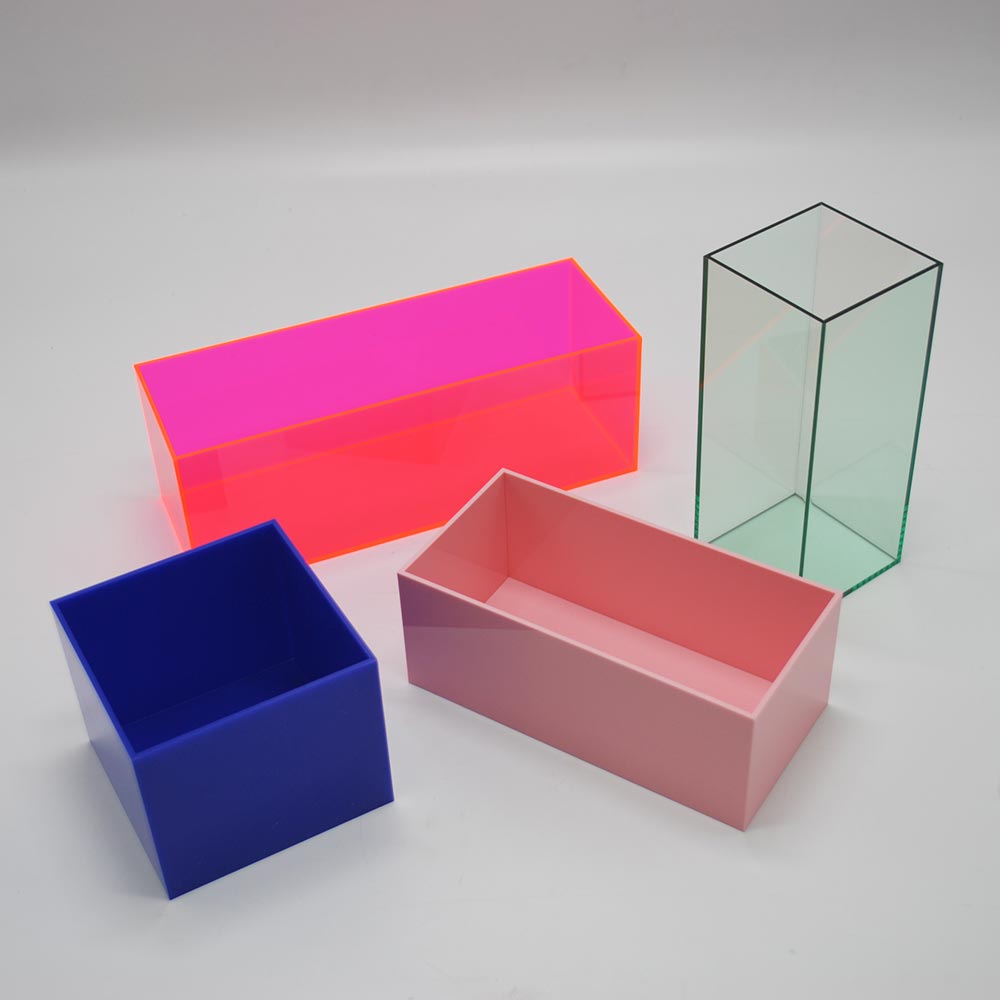
How to use the Terminal Part II
How to use the Terminal Part I
[ ] Create a folder: mkdir name_of_folder [ ] Create a text-file: nano name_of_file.md
git push and pull
What is git?
[ ] git is a software that tracks changes in files so that a group of people can collectively work on them
[ ] it uses a versioning method to deal with the divergence in networked collaborations
[ ] git is the name of the underlying software, but there are several web platforms built on top of git: Git hub, Git lab, Git tea (what we use for XPUB)
Important terms
[ ] Repository: A new repository is like a new project. The "upstream repository" is the main online repository, the "master" version. Through pulling we can make local copies of it
[ ] https: secure transferring of data between client and server.
[ ] ssh: "Secured Shell" is a secured version, where data sent between the client and server is encrypted. You need userID and password and use it in the terminal
[ ] clone: Clone a repository = Copy a repository / Making a copy of the upstream repository on your local repository
[ ] commit:
[ ] pushing: git push updates the upstream master repository with local commits.
[ ] pulling: git pull updates your local repository with any changes on the upstream master repository (should be used regularly to keep up to date)
? git config --global user.name "John Doe" git config --global user.email johndoe@example.com – git config --global user.email ““
Change a text-file using nano: [ ] to list all files: ls [ ] to enter a file: nano name_of_file.md [ ] make changes [ ] to save change: control + o [ ] to exit nano: control + x
Push your local changes to the upstream repository: [ ] check the status:git status [ ] git add README.md [ ] git commit -m “add your message here (short: what changes did you make?)“ [ ] example: git commit -m "New Title" [ ] git push (give git username and git password)
Pull the changes from the upstream repository to your local: [ ] check the status: git status [ ] git pull [ ] list all files: ls [ ] see details of the changes: git log
Reading Shira Chess
"Chapter 2: PWNing Leisure" from "Play Like a Feminist" by Shira Chess
[ ] while play and leisure for men is considered to be exploratory, free and allowable, play and leisure for women is often (expected to be ) structured, constrained and productive
Distinction between leisure and play:
[ ] leisure as free time activity and a certain state of mind that comes with it
[ ] play as a specific activity done in leisure time, that does not always lead to an end result
[ ] according to Huizinga: play as a necessary function of life and happiness. To play is to shift modalities and approach life from a different perspective.
[ ] play is needed „to function better for a more fulfilled existence“ *discuss: neoliberal*
[ ] „human experience necessitates play so that we can live our best possible lives“ *discuss: neoliberal*
[ ] leisure time varies for members of society based on gender, ethnicity, class, and other factors of exclusion
[ ] the result is that some people have more opportunities to live a fulfilled life than others
[ ] it is important that feminists play more video games *discuss*
[ ] „Feminist advocates often talk about the value of self-care, but rarely overtly promote deliberate leisure“
[ ] Mahli-Ann Butt: the rhetoric of self-care can be “critiqued as a biopolitical extension of institutional powers into the governmentality of the everyday private lives of workers; disciplining workers to self-govern their wellbeing for the productivity of the industry.”
[ ] self-care brings the responsibility for well-being (and healing) to an exclusively individual level while neglecting the structural and systemic realities (toxic practices in workplaces etc)
[ ] women often take responsibility in domestic spaces, that’s why for them its even harder to separate work and leisure
[ ] quite often womens leisure time is productive as well (making things, bettering oneself etc)
[ ] does productivity make leisure time less meaningful?
[ ] not necessarily: once an activity is obligatory it tends to work, but if its just for joy why wouldn’t it be meaningful?
[ ] time problem
[ ] women often earn less and work more (also domestic work), so often there is little time for leisure
[ ] Women’s leisure activities therefor are often those that can be done in a short and flexible amount of time and cheap or free
[ ] „What smartphones offer us is leisure that escapes the binding temporalities of real-world obligations“
[ ] forms of leisure not tied to the temporal structures of our everyday existence / escapes the binding temporalities of real-world obligations
[ ] thinking about leisure in terms of temporalities (Sarah Sharma) can get us a bit closer to the core of the problem.
[ ] shifting away from just “time” and toward Sharma’s temporal perspective
[ ] temporalities remind us that (leisure) time is relative and subjective
[ ] need to design technologies that help to change how we think about time *discuss*
[ ] „intersectionality is a term originally used by Crenshaw to express the interplay of oppressive systems within culture“
[ ] we can’t talak about gender inequalities without looking at other inequalities such as ethnicity, social class, sexuality, and disability
[ ] goal: develop an intersectional perspective on the value of leisure time
[ ] Thorstein Veblen: “leisure class” to describe the economic ruling class, which takes a bigger part in consumption than in production
[ ] pleasure costs money
[ ] new leisure technologies bring opportunities bit also dangers
[ ] smart phones allow for flexibility and portability of gaming, but what about the people who build the smart phones?
[ ] feminism should strive for equality for all also when it comes to leisure time
[ ] PWN = pone, word used in gamer culture as a shorthand for domination
[ ] feminism need to PWN leisure:
1. Beyond Self-Care, Embrace Meaningful Play
[ ] „A feminism that embraces meaningful play (Salen and Zimmerman) advocates for leisure that functions both at a personal level, fulfilling self-care, and a broader level of cultural meaning.
2. Be a Leisure Advocate (for yourself and for others)
3. Leisure Temporality over Leisure Time (construct more satisfying leisured temporalities) *discuss*
4. Play all the things (try new things, push our bodies, experiment with play that might (initially) make us uncomfortable) *discuss*
[ ] „Trying out totally new forms of play and leisure is a kind of growth that we rarely
find in adulthood.“ *discuss*
5. PWN the game
[ ] „Do you think that video games are “too sexist”? Fine. Make better ones. Do you worry
about the violence and injuries in athletics? Make new rules.“
[ ] „Make new forms of play and new kinds of games. Find ways to fix the games that already exist and make them better.“
One discussion point / question
Leisure temporality over leisure time: is that the solution?
One insight
Trying to be a leisure advocate also for others
One doubt
try new things, push our bodies, experiment with play that might (initially) make us uncomfortable: does that really help? Its again connected to the Neo-liberal idea of bettering and improving yourself. Why not just feel comfortable and safe in your leisure time?
Do you agree/disagree/neither/both with the author's answer to "Does productivity negate the usefulness of leisure?"
I think I agree … lets say you walk around the city and take photos and really enjoy it.
I would say it is leisure time for most people. But if you are a photographer, photography student or instagram influencer trying to improve your skills, find inspiration or produce content, it is connected to work and therefore not leisure any more
Lecture Shira Chess
[ ] Work / leisure changed during the pandemic
[ ] fully embrace play in any aspect
[ ] call to action
[ ] disruptive play
[ ] play like a feminist
[ ] games for new games
[ ] it doesn’t matter who plays in the end, its more who is percepted as gamers (white male)
[ ] casual games (Teetris) need less skills + less hardware power, matter less and expected to be played by women
[ ] the idea of the gamer has a big distance to who plays in reality
[ ] who’s entitled to play, who decides how games should look like
[ ] meme: get out of here you filthy casuals
[ ] I never know games like this existed (eg non-violent and at the same time non-casual)
[ ] two kinds of people: those who love video games and those who haven’t fund out which ones they like yet
[ ] Audre Lorde critique on self-care
[ ] self-care lacks play + leisure
[ ] question of what we consider productive
[ ] is productivity a problem? Yes, productive for who? As long as it is non-compulsory its ok?
[ ] temporality vs. time
[ ] leisure only available fo those who can afford it
[ ] intersectional problem
[ ] play as resistance
[ ] mod games
[ ] play games differently
[ ] make new games
[ ] apply game dynamics to non-game scenarios
[ ] agency, empathy, community
[ ] that’s what we can learn from games
[ ] agency, taking action against system of power
[ ] will to act or you will lose
[ ] training agency in a game world to then transfer it to the real world
[ ] change perspectives, look at things differently, safe space to try things
[ ] video games are a kind of text
[ ] empathy to look beyond your own real life experiences
[ ] Also take notice of the leisure that surrounds us (or not)
[ ] Build community virtually in a pandemic world
[ ] gamification of gamification
[ ] if a game intentionally provokes empathy people would resist
[ ] what’s your advice for feminist game designers who have intentions. Will it backfire?
[ ] alternate reality design
[ ] get on the uncomfortable territory of mess
links:
[ ] twine interactive story-telling tool
[ ] MIT Press repairing games (not published yet)
Two important thoughts:
If feminists intentionally build feminist games, will it backfire? Isn’t it better to just make games with a subtle different perspective? comparison to movie makers. It doesn’t have to have a feminist message too be a feminist meaningful movie (just from another perspective than the white male one). Also comparison to monopoly: starting with an intention but then backfires. So what should be the approach?
If you want to build a community around a game, to doesn’t neccessarily need to be a multi-player game. Also single player games can be a collective experience and the basis for a community. Also: shouldn’t gamin g be an individual experience? You want to choose yourself if you want to participate or not. You dont want to be forced into a community. You want to have a choice.
! Pip 3
[ ] Package management system that helps to install / deinstall / update a certain (python-) library
[ ] (People who create a library add it to the pypit.org index which is accessed via the pip command)
[ ] There is a difference between python 2 and 3, so to not confuse it with the older version use pip 3
[ ] If you use in Jupiter notebook run:
[ ] ! Pip3 install nameoflibrary
[ ] Then read error message closely, if needed add a command to update, for example
[ ] ! /usr/bin/python3 -m pip install --upgrade pip
[ ] The ! Is a shortcut used in Jupiter notebooks to skip opening the terminal and putting the command (without the !) there
Lecture Cory Arcangel
[ ] Poetic gesture
[ ] Peace with the mess
[ ] Infinite loop
[ ] Little intervention
[ ] Magic moment
[ ] Pair things down to the simplest and stupidest little gesture
[ ] Clearest gestures
Experiments
From Player to Payer: Mapping Exercise
[ Chae, Kimberly, Miriam ]
Link to Map
From Player to Payer: Draft for a Bitsy Game
Fanfiction Flirting on School
[ Miriam, Alex, Jian ]
Writing a fanfiction is too difficult when you don´t agree with the rules of the game. So why not change the rules first?
https://pad.xpub.nl/p/fanfiction_jian_al_miri
„Do you think that video games are “too sexist”? Fine. Make better ones. Do you worry about the violence and injuries in athletics? Make new rules.“
Shira Chess in "Play Like a Feminist"
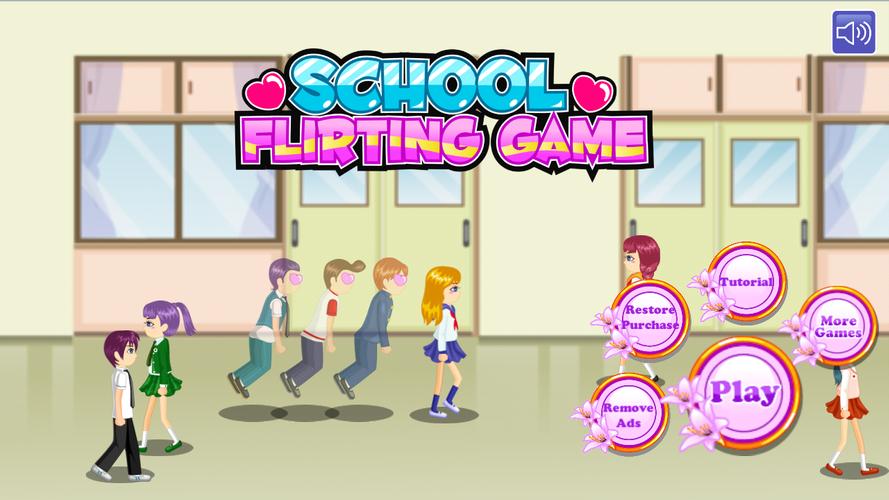
Original Rules vs. new Rules
Flirt with boys, outwit rival girls, avoid mean teachers and collect hearts in this fun Flirting on School game! The more we depict consent, the more normal it becomes. The more we practice consent, the less awkward it feels. Practice consent in this fun Enjoy the School game! Approach your crush(es), talk to your friends, debate with humans, say hi to your teachers and make friends in this fun game! Unfortunately, your time is limited, so you should hurry, because the more guys fall in love with you, the more points you get. Fortunately, you have all the time, so you shouldn´t hurry, because the more respectful you behave around your classmates, the more points you get. Click on the guys who cross your path to make them join the long line of your suitors. Wave at the people who cross your path to invite them to join your conversation. Go up and down the stairs and find every single boy in your school. Go up and down the stairs to look for more students in your school. Sometimes you have to try a little harder and click on them as fast as you can to make them fall in love with you. Sometimes people aren't interested in talking to you. You shouldn't try harder and click on them as fast as you can because they will feel uncomfortable or even harassed. Just ignore the other girls and collect the guys like diamonds so that in the end they accompany you to the altar. There's no point in seeing the other students as rivals, you don't need to collect people like diamonds because your ultimate goal is not the altar. Instead you should try to build meaningful relationships and a community where everyone feels safe. Can you find all the boys in your school and make them only have eyes for you? No pressure! Walk around and meet new people because everyone knows: A stranger is just a friend you haven't met yet! But remember: connect only with the ones who are interested in the conversation. Find out and have fun with Flirting on School, a free online game on Silvergames.com! Control: mouse Find out and have fun with Enjoy the School, a free online game on consciousgames.com! Control: heart and mind
Prototyping a Puzzle
Yes. But a very simple puzzle.
from random import choice
words = 'L O V E', 'A', 'B', 'C', 'D', 'E', 'F', 'G', 'H', 'I', 'J', 'K', 'L', 'M', 'N', 'O', 'P', 'Q', 'R', 'S', 'T', 'U', 'V', 'W', 'X', 'Y', 'Z'
width = 30
height = 25
print('Where is the LOVE?')
print(' ')
for y in range(height):
for x in range(width):
print(choice(words), end=' ')
print('')
Where is the LOVE?
I O K Q K P U O I I I I X H E X M I T L N I P I H E R X C B
P T J R H U Z D Y Q I F I M J E A C U G J M A M Q L R X W D
X C P F N Y R L O V E W H E A Q F N I P W T J R P S K E E P E B L
A B I T Q P L O V E E G L O V E P A M F F P N L O V E K I K U L O V E W X R Y W Q Q
J A X G M G B G E K Q M G Y B D L F B D X G Z F S D L C D R
D F O L K F C Z B O V I S K H U K W S K D S Q L M U M H L O V E M
E G T W N U K Z R T L O V E Q P D W S Z Q D M H G G H V E A R X A
C C U C T S W V Q Z I X O D C X J W V D X B L J G B L R W P
Q B N A M U Q Y U Y B G E U G R M P P K M N B A O A N V T M
G Y Y P B Q B D I J H L M E D H U H X V C D W U L O V E J L O V E P D E
L O V E N N S A E F Z T K F T T S S U Z K U C W D J X Z Q Y V L O V E X
J O D O T M S Q B I Y G X K R E R Y F I T N T U K O I N J G
L G T D T L J Q A L X Z M N E L B L O V E U G L O V E L O V E B X B U D D C M
H X G L A J D Y R P J A X J C X L O V E B X K T Q T L O V E C E O F J N
O E Y Q Z Q N V G H B P L I C U Q E L O V E M E Y B I Q L I R K R
G X M Y G B C D J U R Q U G Y E Z C T Y P L O V E N Q F U P R Y B
F Z D Y C J C L O V E C D G F W Z A X U K P B S L O V E U H Q V J L S Q
E S R Y Y F W I V Z D Q Z Z G O L N P C L M W H A D R W U Y
X S I Q K N Y W B H H E N N P O H T Q Y P R I B B U W T M P
J R P Z J L O V E G L M H L Q M H J T S N I A C H B A L T L O V E E P H
S N L B S L O V E E O Q N P U G C A H H L J M T J L O V E W D I Z Y L V
R R E L Q H V S T H G R O Y D N P L O V E O T L P H M V G S J C V
M S Q V S Y W E I K L O V E M H X Q Q C U P R L Q K M J W A K S K
A E I D A Y L K B K C A A F L O V E P S B N G A H I L O V E T O L O V E O F B
Q C P L V I O I R U L O V E D Q M P J M C Z U N W X T W T T S M D
Prototyping a Maze I
This is a first attempt. It doesn´t really work, because it completely relies on the random function and doesn´t use an algorhythm to make sure that there is always a path from A to B.
from random import choice
words = '⍦ ⍝ '
width = 50
height = 25
print('The Flamingo is hungry!')
print(' '*47, '🦩')
for y in range(height):
for x in range(width):
print(choice(words), end='')
print('')
print('🥐')
The Flamingo is hungry!
🦩
⍦ ⍦⍦⍦⍝⍝⍦ ⍦⍝⍝ ⍝⍝⍦⍦⍝⍦ ⍦ ⍦⍦ ⍦⍝⍦⍦ ⍦⍦⍦ ⍦
⍦ ⍝⍦ ⍝⍝⍦ ⍦⍝⍝⍝⍦ ⍝⍝⍦⍝⍝⍝⍝ ⍦⍝ ⍝⍝⍦ ⍝⍦⍦ ⍝ ⍦ ⍝⍝ ⍝⍦
⍦ ⍝ ⍝⍦⍦ ⍦ ⍦ ⍝ ⍦ ⍝⍝ ⍦⍦ ⍦⍝⍝ ⍦⍝ ⍝
⍦ ⍦ ⍦ ⍝ ⍝⍝ ⍦⍦ ⍦ ⍝ ⍝⍝⍦ ⍝⍝⍝ ⍝ ⍝⍝ ⍦⍝⍝⍦⍝ ⍝⍝
⍝ ⍦⍝ ⍦⍦⍝ ⍝⍦⍦⍝ ⍝ ⍦⍝⍝⍦⍝⍝⍦ ⍦ ⍝ ⍝ ⍦ ⍝ ⍦⍝ ⍝
⍦ ⍝ ⍝ ⍝ ⍦ ⍝ ⍝⍝ ⍦⍦ ⍦ ⍝⍦ ⍝⍦⍝ ⍦ ⍦⍝ ⍦
⍦⍝⍝ ⍝⍝ ⍦⍝ ⍝ ⍝ ⍦⍦ ⍝ ⍦ ⍦ ⍦ ⍝⍝ ⍝ ⍝⍝ ⍝⍦⍝
⍝ ⍦⍦ ⍦⍝ ⍦ ⍦ ⍦ ⍦ ⍝ ⍝ ⍝⍝ ⍦ ⍦⍝ ⍝⍦⍝⍦ ⍝⍝⍦⍝⍦ ⍦
⍝⍦⍦ ⍦ ⍝ ⍝ ⍦ ⍦⍝ ⍦⍝ ⍦⍝⍦ ⍦⍝⍦ ⍝ ⍝ ⍦⍝ ⍦
⍦ ⍝ ⍦⍝ ⍦ ⍝⍦ ⍝ ⍝ ⍦⍝ ⍝ ⍦ ⍦ ⍦ ⍝ ⍝ ⍦
⍝ ⍝⍝ ⍝ ⍝ ⍦⍦ ⍝⍝ ⍝ ⍦⍝ ⍝⍦⍦ ⍦
⍝ ⍝⍦ ⍝ ⍦ ⍝⍦ ⍝ ⍝ ⍦ ⍝ ⍝ ⍝⍦⍝ ⍦⍝ ⍝⍦⍦ ⍝ ⍝⍦⍦⍝
⍝⍦⍝ ⍦⍝⍝⍦⍦⍦ ⍦ ⍦ ⍦ ⍝⍦ ⍦ ⍝ ⍦⍦ ⍦ ⍝⍝ ⍦⍦⍦
⍝⍦ ⍝⍦ ⍝⍝⍦⍝ ⍝⍝⍝ ⍝⍦ ⍝ ⍝ ⍝⍦⍦ ⍦⍝ ⍦ ⍝⍝ ⍝ ⍦⍝⍦ ⍦⍦⍝⍝
⍦ ⍦⍦ ⍦ ⍦ ⍝⍝⍦ ⍝⍦⍝ ⍦⍝⍦ ⍦ ⍝⍦⍝ ⍝ ⍝⍝⍝⍝⍝ ⍝⍝⍝
⍦⍝ ⍝ ⍝ ⍦ ⍝⍝ ⍝⍦ ⍦ ⍝⍦⍝ ⍝⍦ ⍝⍝ ⍝⍝⍦⍝ ⍝ ⍦
⍦⍦⍦⍝ ⍦⍦ ⍝⍦ ⍝⍝ ⍦⍦ ⍝⍦ ⍝⍝⍝⍝⍝⍦ ⍝ ⍦⍦⍝ ⍝⍦⍝⍦
⍦ ⍦⍝ ⍝⍝⍦⍝⍝⍦⍦ ⍝ ⍦⍦ ⍦ ⍝⍦⍝ ⍝ ⍝ ⍦⍝⍝⍝⍝⍦⍝ ⍝⍦⍦ ⍦
⍝ ⍦⍦⍦ ⍦ ⍦⍝⍦⍝ ⍦ ⍝ ⍦ ⍝ ⍝ ⍦ ⍝ ⍦⍦⍝ ⍝⍝
⍦⍦⍝ ⍝ ⍝⍝⍦⍝ ⍝⍦ ⍦⍦ ⍝⍦⍝ ⍝ ⍦⍦ ⍝⍦ ⍦⍦ ⍦ ⍝⍝⍦ ⍝ ⍦
⍝⍝ ⍝ ⍦⍦⍝ ⍦⍝⍝ ⍦⍝⍦ ⍝⍦⍦⍝ ⍝⍦⍝⍝⍦⍦⍝ ⍝⍦ ⍝⍦⍝⍝⍝
⍝ ⍦⍝ ⍦ ⍝ ⍝ ⍝ ⍝⍦ ⍦ ⍝ ⍝⍦⍝⍝⍝ ⍦ ⍦⍦⍝⍦⍦⍦⍝ ⍝
⍝⍝ ⍦ ⍦ ⍦ ⍝⍦ ⍝ ⍝⍝⍦ ⍝ ⍦ ⍝ ⍦ ⍝ ⍝⍝ ⍝⍦⍦ ⍦ ⍦
⍦ ⍦⍝⍝⍦⍝⍝ ⍝⍦ ⍦⍦ ⍦⍝ ⍝⍝⍝⍝⍦⍝⍝⍦ ⍝ ⍝⍦ ⍦⍦⍦ ⍦⍦⍦
⍦ ⍦ ⍝⍦ ⍦ ⍦⍦ ⍦ ⍦⍦⍝⍦⍦ ⍝ ⍦ ⍝⍝ ⍝ ⍝ ⍦ ⍝ ⍦ ⍦
🥐
from random import choice
words = '🌵🌵🌵🌵🌵🌵🌵🌵🌵🌴🌴🌴🌴🌴🌴🌴🌴🌴 🥥'
width = 50
height = 25
print('Nana wants to visit her friend. How many coconuts can she pick up on the way?')
print('')
print(' '*50, '🐒')
for y in range(height):
for x in range(width):
print(choice(words), end='')
print('')
print(' '*2, '🦦')
Nana wants to visit her friend. How many coconuts can she pick up on the way?
🐒
🌴 🌴 🌴 🌵 🌵🌵🌴🌴🌴🌵 🌵🌵 🌴🌴 🌴 🥥🌵🌵
🌴 🌵🌴 🌵 🌵🌴 🥥 🌵 🌵 🌵 🌵🌴🌵 🌴 🌵
🌴🥥 🌴 🌴🌴 🌵 🌴 🌴 🌴🌴 🌴 🌵
🌵🌴 🌵 🌵🌴🌴🌴 🌵 🌵🌵🌴 🌵 🌴 🌴🌵 🌴
🌴 🌴🌵 🌴 🌴 🌴 🌴 🌴 🌴 🌵 🌴 🌵 🌵
🌴 🥥🌴🌴🌵 🌴🌴 🥥 🌴🌴🌵 🌴🌵🌴🌵🌴 🌵 🌵🌴🌴 🌴🌴🌴
🌴 🌴 🌴 🌴 🥥🌴🌵🌴 🌵🌴 🌴🌵 🌴 🌴🌴🌵🌴 🌴 🌴
🌵🌴 🌵 🌴 🌵 🌴 🥥 🥥🌵 🌵🌵 🌴🌵
🌵 🌴 🥥 🌵🌴 🌴🌵🌵🌵 🌴🌴 🌴 🌵🌴 🌴🌵 🌵
🌵🌵 🌴 🌵 🌵 🌵 🌵🌵 🌴 🌴🌵 🌵 🌴 🌵🌴 🌴
🌵 🌵🌵🥥 🌵🌴🌵 🌵 🌵🌴 🌵 🌴 🌴 🌴🌵 🌵🌵 🥥 🌵 🌵
🌴 🌵 🌴 🌵🌴🌴 🌴 🌴 🌵 🌴🌴
🌵 🌴 🌵 🌴 🌴 🌴🌵 🌵 🌵 🌴 🌴🌵 🌴🥥🌵 🌵 🥥
🌴 🌵 🌵 🌵 🌴 🌴 🌴🥥🌵🌵
🌵 🌵🌵🌵🌵🌵 🌴 🌴 🌴🌴 🌴 🌵 🌵🌴 🌴 🌵 🌵🌵 🌵
🌴 🥥 🌴 🌵🌵🌵 🌵 🌵 🌵 🌵 🌵 🥥🌴 🌵 🌵🌵
🌵 🌵 🌴🌴🌴 🌵 🌴 🌴 🌴 🌵 🌵
🌴🌵🥥 🌵 🌴 🌴 🌵 🌵 🌴🌴 🌴 🌵 🌵 🌴 🌴 🌴
🌴 🌴 🌴 🌵 🌵 🥥 🌴 🌴 🌵🌴
🌴 🌵 🌴 🌵 🌴 🌵 🌵 🌵 🌴 🌵 🌵
🌵 🌵 🌴 🌴🌴 🌴 🥥🌵 🌴 🌴 🌴 🌴 🌵 🌴🌴 🌵🌴
🌵 🌵 🥥 🌵 🌴 🌵🌴 🌵 🌵 🌵 🌵
🌴🌵 🌴🌵🌴🌴 🌵 🌴 🌴🌵 🌴 🌴 🌵 🌵 🌴🌴 🌵 🌵 🌴 🌵🌵 🌵
🥥 🥥🌴🌴🌴 🌵 🥥 🌵 🌴 🌵 🌴 🌴🌵🌴 🌴 🌵 🌵 🌴 🌴
🌵 🌵 🌴🌵 🌴 🌵 🌴 🌵 🌵 🌵 🌴 🌴 🌴 🥥 🌴
🦦
Prototyping a Maze II
Trying to understand the algorhythm by using physical computing.
Human computing (rewritten rules):
[ ] draw a grid onto a canvas that has 0 - 14 cells on the x-axis and 0 - 5 cells on the y-axis [ ] pick a random cell on the canvas and mark it as a path by coloring the cell green [ ] add the coordinates of the 4 cells around your chosen cell (above, below, right, left) to the so called WALL LIST [ ] from the WALL LIST, randomly pick one of the coordinates and find the chosen cell in the grid – if your chosen cell has only one path-cell as a neighbour (above, below, right, left), mark it as a path and add its neighbouring cells to the WALL LIST – elif your chosen cell has more than one neighbour, mark it as visited by makinf a liitle dot in this cell [ ] delete the cell you picked in 4. from the WALL LIST [ ] start over beginning from 4.
Prototyping a Maze III
Now it works, using this tutorial:
🔥⬜️🔥🔥🔥🔥🔥🔥🔥🔥🔥🔥🔥🔥🔥🔥🔥🔥🔥🔥🔥🔥🔥🔥🔥🔥🔥🔥🔥🔥🔥🔥🔥🔥🔥🔥🔥🔥🔥🔥
🔥⬜️⬜️⬜️⬜️⬜️🔥🔥🔥⬜️🔥⬜️🔥⬜️🔥🔥⬜️🔥🔥⬜️⬜️⬜️🔥🔥⬜️⬜️🔥⬜️⬜️⬜️⬜️🔥⬜️🔥⬜️🔥⬜️🔥⬜️🔥
🔥⬜️🔥🔥🔥⬜️🔥🔥🔥🔥⬜️🔥⬜️🔥⬜️⬜️⬜️🔥⬜️⬜️🔥⬜️⬜️🔥🔥⬜️🔥🔥🔥🔥⬜️🔥🔥⬜️🔥⬜️⬜️⬜️⬜️🔥
🔥🔥🔥⬜️🔥⬜️🔥⬜️🔥🔥🔥🔥🔥🔥🔥🔥⬜️🔥🔥🔥🔥🔥⬜️⬜️⬜️⬜️🔥🔥⬜️🔥⬜️⬜️🔥🔥🔥🔥🔥🔥⬜️🔥
🔥⬜️⬜️⬜️⬜️⬜️🔥⬜️🔥⬜️🔥⬜️🔥🔥⬜️🔥⬜️⬜️⬜️⬜️⬜️🔥🔥🔥🔥⬜️🔥🔥⬜️🔥🔥⬜️🔥🔥🔥⬜️⬜️⬜️⬜️🔥
🔥🔥🔥⬜️🔥⬜️⬜️⬜️⬜️⬜️🔥⬜️🔥⬜️⬜️⬜️⬜️🔥🔥🔥⬜️⬜️⬜️⬜️⬜️⬜️🔥🔥⬜️🔥⬜️🔥⬜️⬜️⬜️⬜️🔥🔥⬜️🔥
🔥⬜️🔥🔥🔥⬜️🔥🔥🔥⬜️⬜️⬜️⬜️⬜️🔥⬜️🔥🔥🔥🔥🔥🔥🔥⬜️🔥⬜️⬜️⬜️⬜️⬜️🔥🔥⬜️🔥🔥🔥🔥⬜️⬜️🔥
🔥🔥🔥🔥🔥⬜️🔥🔥🔥🔥🔥🔥⬜️🔥🔥🔥🔥⬜️⬜️⬜️⬜️⬜️⬜️⬜️🔥🔥⬜️🔥⬜️🔥🔥🔥🔥🔥🔥🔥🔥🔥⬜️🔥
🔥⬜️🔥⬜️🔥🔥🔥⬜️🔥🔥🔥⬜️⬜️⬜️🔥🔥⬜️⬜️🔥🔥🔥🔥🔥🔥🔥🔥⬜️🔥🔥⬜️🔥🔥⬜️⬜️⬜️⬜️⬜️⬜️⬜️🔥
🔥⬜️⬜️⬜️⬜️⬜️⬜️⬜️🔥⬜️⬜️⬜️🔥🔥🔥🔥🔥⬜️🔥⬜️⬜️⬜️⬜️⬜️⬜️⬜️⬜️🔥⬜️🔥⬜️🔥🔥⬜️🔥🔥⬜️🔥⬜️🔥
🔥🔥🔥🔥🔥🔥🔥⬜️⬜️⬜️🔥⬜️🔥🔥🔥⬜️🔥🔥🔥🔥🔥🔥⬜️🔥⬜️🔥⬜️🔥🔥⬜️🔥🔥🔥🔥🔥⬜️⬜️🔥⬜️🔥
🔥⬜️🔥🔥🔥🔥🔥🔥⬜️🔥🔥⬜️🔥⬜️⬜️⬜️⬜️⬜️⬜️⬜️⬜️🔥⬜️🔥🔥🔥⬜️🔥🔥⬜️🔥⬜️⬜️🔥🔥🔥⬜️🔥🔥🔥
🔥⬜️⬜️⬜️⬜️⬜️⬜️⬜️⬜️🔥🔥🔥🔥🔥🔥⬜️🔥🔥⬜️🔥🔥⬜️🔥🔥🔥⬜️⬜️🔥⬜️⬜️🔥🔥⬜️⬜️⬜️⬜️⬜️⬜️⬜️🔥
🔥🔥⬜️🔥🔥🔥🔥🔥🔥🔥⬜️🔥🔥🔥🔥🔥⬜️🔥⬜️🔥⬜️🔥⬜️⬜️🔥🔥⬜️🔥🔥⬜️⬜️🔥🔥⬜️🔥🔥⬜️🔥⬜️🔥
🔥🔥🔥🔥🔥⬜️🔥🔥🔥🔥⬜️⬜️🔥⬜️🔥⬜️🔥⬜️🔥🔥🔥🔥🔥⬜️🔥🔥⬜️🔥🔥⬜️🔥🔥⬜️⬜️🔥⬜️⬜️🔥⬜️🔥
🔥⬜️🔥⬜️⬜️⬜️⬜️⬜️⬜️🔥⬜️🔥🔥⬜️🔥🔥🔥🔥🔥⬜️🔥⬜️🔥⬜️🔥🔥🔥🔥⬜️⬜️🔥🔥🔥⬜️🔥🔥⬜️🔥⬜️🔥
🔥⬜️🔥🔥🔥🔥🔥🔥⬜️⬜️⬜️🔥⬜️🔥⬜️⬜️⬜️⬜️⬜️⬜️⬜️🔥⬜️⬜️⬜️⬜️⬜️🔥🔥⬜️🔥⬜️⬜️⬜️🔥🔥⬜️🔥⬜️🔥
🔥⬜️🔥⬜️🔥⬜️⬜️⬜️⬜️🔥⬜️⬜️🔥🔥🔥🔥🔥⬜️🔥🔥🔥⬜️🔥⬜️🔥⬜️🔥🔥⬜️⬜️🔥⬜️🔥⬜️⬜️🔥⬜️🔥⬜️🔥
🔥🔥⬜️⬜️⬜️⬜️🔥⬜️🔥🔥🔥⬜️🔥🔥⬜️⬜️⬜️⬜️⬜️🔥🔥🔥🔥⬜️🔥⬜️⬜️🔥🔥🔥🔥🔥🔥🔥⬜️🔥⬜️🔥🔥🔥
🔥⬜️🔥🔥⬜️🔥🔥🔥🔥🔥🔥🔥🔥🔥🔥🔥🔥🔥⬜️⬜️🔥🔥🔥🔥🔥⬜️🔥🔥⬜️⬜️⬜️⬜️⬜️⬜️⬜️🔥⬜️⬜️⬜️🔥
🔥🔥⬜️🔥🔥🔥⬜️⬜️⬜️🔥🔥⬜️⬜️⬜️⬜️⬜️⬜️⬜️⬜️🔥🔥⬜️⬜️🔥🔥⬜️⬜️🔥🔥⬜️🔥🔥🔥🔥⬜️🔥⬜️🔥🔥🔥
🔥🔥⬜️⬜️⬜️🔥🔥🔥⬜️⬜️⬜️⬜️🔥⬜️🔥⬜️🔥🔥⬜️⬜️🔥🔥⬜️⬜️⬜️⬜️🔥🔥⬜️⬜️🔥⬜️⬜️⬜️⬜️🔥🔥🔥⬜️🔥
🔥⬜️⬜️🔥🔥🔥🔥🔥🔥🔥🔥⬜️🔥⬜️🔥🔥🔥🔥⬜️🔥🔥🔥🔥⬜️🔥⬜️⬜️🔥🔥⬜️🔥🔥⬜️🔥⬜️⬜️⬜️⬜️⬜️🔥
🔥⬜️🔥🔥🔥🔥⬜️🔥⬜️⬜️⬜️⬜️🔥⬜️🔥⬜️⬜️⬜️⬜️⬜️⬜️🔥🔥⬜️🔥🔥🔥🔥🔥🔥🔥🔥🔥🔥🔥⬜️🔥🔥🔥🔥
🔥🔥🔥⬜️⬜️⬜️⬜️⬜️⬜️🔥🔥⬜️🔥⬜️🔥🔥🔥⬜️🔥⬜️🔥🔥⬜️⬜️🔥🔥⬜️⬜️⬜️🔥🔥⬜️🔥⬜️🔥⬜️⬜️⬜️⬜️🔥
🔥⬜️⬜️⬜️🔥⬜️🔥🔥⬜️🔥🔥🔥🔥🔥🔥🔥🔥🔥🔥⬜️🔥🔥⬜️🔥🔥🔥🔥🔥⬜️🔥🔥⬜️🔥⬜️⬜️⬜️🔥⬜️🔥🔥
🔥🔥🔥⬜️🔥🔥🔥⬜️⬜️⬜️🔥🔥⬜️🔥🔥⬜️🔥⬜️⬜️⬜️⬜️🔥⬜️🔥🔥⬜️🔥⬜️⬜️⬜️⬜️⬜️⬜️⬜️🔥⬜️🔥🔥🔥🔥
🔥⬜️⬜️⬜️🔥⬜️⬜️⬜️🔥⬜️🔥⬜️⬜️⬜️⬜️⬜️⬜️⬜️🔥⬜️🔥🔥🔥🔥🔥⬜️🔥🔥⬜️🔥⬜️🔥🔥⬜️🔥⬜️⬜️⬜️⬜️🔥
🔥⬜️🔥⬜️🔥🔥⬜️🔥🔥⬜️🔥🔥⬜️🔥🔥⬜️🔥⬜️🔥⬜️⬜️⬜️🔥🔥⬜️⬜️⬜️⬜️⬜️🔥⬜️🔥⬜️⬜️🔥🔥⬜️🔥⬜️🔥
🔥🔥🔥🔥🔥🔥🔥🔥🔥🔥🔥🔥🔥🔥🔥🔥🔥🔥🔥🔥🔥🔥🔥🔥🔥🔥🔥🔥🔥🔥🔥🔥🔥🔥🔥🔥🔥🔥⬜️🔥
Portfolio Party
Invitation Letter:
Dear XPUB 1,
We have been talking about this on many occasions, but now it’s finally happening: I am inviting you to my house to have a casual and fun portfolio party! 🥳
Did you know that Alex opened a bar in Sofia in 2013 and worked there for 6 years? Have you heard that Kamo is into interactive contemporary dance performances? And why haven’t we seen Miriam perform a stand-up comedy set yet?
Now we finally have the chance to look into all the obscure, surprising and wonderful stories and projects XPUB1 has to offer!
Please bring something you want to share with us! We have a projector, so you can show images, videos etc. if you like. But don´t worry, this doesn’t mean we want to see boring power point presentations – this is not a formal event! So if you want to show a book project, why not bring a few copies? If you want to show a performance you once did, why not perform it again?
Try to bring projects we haven’t seen or heard of already, and think of the best way to present it to us, we want to have fun with it! 👻
When?
Saturday, the 5th of March
Starting at 16.00
Where?
At my place
Please bring:
[ ] Projects and stories
[ ] Food we can easily share
[ ] Drinks
And also let me know if you cannot make it, maybe we can find a better date then …
xoxo, Jian
Cocktail Generator – Round 2
Code: Good Bye Aymeric, Hello Epson Printer
This is a new version of the code, adapted to Aymerics Good Bye Party and to the Epson-Receipt-Printer that works via Ethernet instead of USB. Oh, and this time the alcohol is optional …
from random import choice
import RPi.GPIO as GPIO
import time
from escpos.printer import Network
kitchen = Network("145.24.131.103") #EPSON Receipt Printer. Printer IP Address will be spit out when plugged
GPIO.setmode(GPIO.BCM)
GPIO.setup(18, GPIO.IN, pull_up_down=GPIO.PUD_UP)
import datetime
from datetime import timedelta
now = datetime.datetime.now() + timedelta(hours=1)
alcohol = ["VODKA", "TEQUILA", "RUM", "GIN"]
base = ["ORANGE JUICE", "PINEAPPLE JUICE", "MANGO JUICE", "PASSION FRUIT", "TONIC WATER"]
sour = ["LEMON JUICE", "LIME JUICE"]
sweet = ["AGAVE SIRUP", "MAPLE SYRUP"]
omph = ["1 SLICE GINGER", "2 LEAVES MINT", "2 LEAVES BASIL", "1 SLICE CUCUMBER"]
gadget = ["PALMTREE", "FLAMINGO", "UMBRELLA"]
drink = [
"""
___,
'._. \
_____/'-.\
| / |
|~~~/~~|
\ () /
\.__./
||
_||_
`----` """,
"""
.
. .
|^ .
\O___.____ /
\ . /
\ ,/
[]
[]
[]
--------""",
"""
\
.-\.-.-.-.-.
\ \__ o . /
\/ \ o/
\__/. /
\_ _/
Y
|
_.-- --._
`---------`"""]
while True:
input_state = GPIO.input(18)
if input_state == False:
kitchen.text(' *=*=*=*=*=*=*=*=*=*=*=*=*=*=*=* \n' +
' *=*=*=*=*=*=*=*=*=*=*=*=*=*=*=* \n' +
' * * \n' +
' * GOOD BYE FOR NOW, * \n' +
' * AYMERIC!! * \n' +
' * * \n' +
' *=*=*=*=*=*=*=*=*=*=*=*=*=*=*=* \n' +
' *=*=*=*=*=*=*=*=*=*=*=*=*=*=*=* \n' +
' \n' +
' \n' +
' 150 ml ' + choice(base) + '\n' +
' \n' +
' 1 oz ' + choice(sour) + '\n' +
' \n' +
' 0.5 oz ' + choice(sweet) + '\n' +
' \n' +
' ' + choice(omph) + '\n' +
' \n' +
' 1 ' + choice(gadget) + '\n' +
' \n' +
' \n' +
' *=*=*=*=*=*=*=*=*=*=*=*=*=*=*=* \n' +
' \n' +
' OPTIONAL:' + '\n' +
' 2 oz ' + choice(alcohol)+ '\n' +
' \n' +
' *=*=*=*=*=*=*=*=*=*=*=*=*=*=*=* \n' +
' \n' +
' ' + choice(drink) + '\n' +
' \n' +
' SEE YOU LATER ALLIGATOR, \n' +
' AFTER A WHILE CROCODILE! \n' +
' \n' +
' \n' +
' *=*=*=*=*=*=*=*=*=*=*=*=*=*=*=* \n' +
' *=*=*=*=*=*=*=*=*=*=*=*=*=*=*=* \n' +
' \n' +
' \n' +
' \n' +
' \n' +
' \n')
kitchen.cut() #cut-the-paper command ```
time.sleep(1)
*=*=*=*=*=*=*=*=*=*=*=*=*=*=*=*
*=*=*=*=*=*=*=*=*=*=*=*=*=*=*=*
* *
* GOOD BYE FOR NOW, *
* AYMERIC!! *
* *
*=*=*=*=*=*=*=*=*=*=*=*=*=*=*=*
*=*=*=*=*=*=*=*=*=*=*=*=*=*=*=*
150 ml MANGO JUICE
1 oz LIME JUICE
0.5 oz AGAVE SYRUP
2 LEAVES BASIL
1 UMBRELLA
*=*=*=*=*=*=*=*=*=*=*=*=*=*=*=*
OPTIONAL:
2 oz TEQUILA
*=*=*=*=*=*=*=*=*=*=*=*=*=*=*=*
.
. .
|^ .
\O___.____ /
\ . /
\ ,/
[]
[]
[]
--------
SEE YOU LATER ALLIGATOR,
AFTER A WHILE CROCODILE!
*=*=*=*=*=*=*=*=*=*=*=*=*=*=*=*
*=*=*=*=*=*=*=*=*=*=*=*=*=*=*=*
Setting up the Big Blue Button
Recap Trying to setup a new button
- Welding the cables to the switch following the draft (see link above)
- Building a shiny silver box
- Amazing doodles for the party-setup by Chae
The Cocktail Generator at Aymerics Good Bye Party
THE BOX
[ Gersande, Carmen, Jian ]
Non-subversive characteristics of our box to make it recognizable as a loot box:
[ ] the loot box is attractive
[ ] the loot box is appealing
[ ] the loot box is shiny
→ the loot box is an object that people want to hold in their hands and take home
[ ] the loot box is comes in two different colors
→ the loot box asks for an active choice of the buyer
[ ] the loot box is a box full of surprises
→ the loot box does not reveal the content, so people don't know what they get
[ ] the loot box can be opened in an exciting way
→ the loot box provides an unusual opening experience and makes the unboxing a ritual
Subversive characteristics of our box to differentiate it from a traditional loot box:
[ ] the loot box is a physical box
[ ] the loot box is precious and long lasting object
[ ] the loot box is a reward in itself
→ the loot box is not digital and it does not disappear after opening
[ ] the loot box becomes a 2D-surface when fully opened
[ ] the loot box can be closed again in a playful way
→ the loot box does not only focus on the opening ritual
[ ] the loot box is a playful object
[ ] the loot box is a game in itself
→ the loot box is not only a container
[ ] the loot box holds a playful sticker set to reassemble the box
→ the loot box becomes a personalized object
[ ] the loot box is sold in a book store
→ the loot box as a cultural object is placed in a book store
Research Acrylic
Production
Final Lootbox
BITSY JAM on Unfinished Thoughts
[ Supi x Jian ]
First Brainstorm of Unfinished Thoughts
Half-Baked Annotations of Unfinished Thoughts
[ ] Create an endless strolling game through the comfortable territory of mess and unfinished thoughts
[ ] Include snippets and fragments of readings and discussion, random ideas and questions as well as tools that were used in this process
[ ] Invite people to stroll, collect and pick up, follow along, go ahead …
First Visual Experiments
Hack: How to work collaboratively on Bitsy
How to prepare the hack in Bitsy:
Build individual and separate mini-games:
[ ] Build as many separate games as you like
[ ] Put an avatar inside
[ ] Add an ending (only add ending dialog if you want)
[ ] Only add a title dialogue if you want
[ ] Choose an easy name for each game, for example mini.hmtl
Build an intro game that links to the main game:
[ ] Put an avatar inside
[ ] Add an ending (only add dialog if you want)
[ ] Only add a title dialogue if you want
[ ] Choose an easy name for the game, for example index.html (so that it is your start-page)
Build the main game that links to all mini-games:
[ ] Add an ending for each mini-game
[ ] Add an ending dialog to each ending with the name of the mini-game you want to link to
[ ] Put an avatar inside
[ ] Delete the title of the game (so that it would not always pop up once you re-enter the main game)
[ ] Name the file, for example main.html
[ ] download html files of all games
[ ] hack the files to jump from the intro game to the main Bitsy game to the individual Bitsy games
In the main game:
search for:
if (end){
startEndingDialog(end);
}
replace with:
if (end){
/* BITSY MUSEUM HACK:
jump to the appropriate game! */
window.location.href = dialog[end.id].src + ".html";
}
In the individual games and intro game:
search for:
var isEnding = false;
replace with:
var isEnding = false;
var redirectBitsy = false;
and search for:
else if (isEnding) {
if (input.anyKeyPressed() || input.isTapReleased()) {
/* RESTART GAME */
reset_cur_game();
}
}
replace with (and change main.html to your main game file):
else if ( isEnding ) {
/* BITSY MUSEUM HACK:
instead of reseting on ending it takes player back to the museum
also removes need to click button to reset */
if (!redirectBitsy){
redirectBitsy = true;
window.location.href = "main.html";
}
}
Final Structure
Typeface
Supis alphabet, built and used in her parts of the game:
Since we wanted to use this one for the whole Special Issue #17 I made a real font from it:
Special Issue 17 Regular
My alphabet, used in my parts of the game:
My parts of the game
Ghost Files
Welcome to this Imaginary Library of Ghost Files! A ghost file is a file that cannot be deleted by normal means. A ghost file is a file that cannot be deleted by normal means. A remnant of the past ... A remnant of the past ... A remnant of the past ... An echo of your mind.
Exit Strategy
Are you in search for a random exit? Is there a way to escape the system? Or is each loophole part of it?
Quiz: Work or Play?
Try to find the blurry lines between Labour and Work, Work and Play, Play and Game, Game and Leisure, Leisure and Self-care, Self-care and Self-work …
Raspberry Pi
Welcome inside a Raspberry Pi!
Workshop Raphaël Bastide
[ ] What' more beautiful than a riot?
[ ] Hear the blue lights turnin' violet
[ ] Nothin' they need more than our silence
[ ] Keep shoutin', don't be quiet
[ ] See the red run on these streets
[ ] You see the fragments disappear
[ ] How do we merge and float in chaos?
[ ] Feel the fragments drift and waft
[ ] There's no reason to feel scattered
[ ] I'm hopin' you'll tell me
[ ] Red grass, red sand
[ ] Red sky bathed in light
[ ] Red stars, red land
[ ] Red lines that go for miles
[ ] Red grows and grows
[ ] Been in the shade for a little while
[ ] Red past, red cries
Workshop Brendan Howell
[ Supi, Mitsa, Emma, Erica, Kamo ]
Screenless Text Weaving
[ ] Scan a barcode to print list of ingredients (texts to be weaved)
[ ] Scan 2 barcodes to select Text A and Text B that will be weaved
[ ] Plug the 6 cables that represent the 6 positions in the pattern to A or B
[ ] Press the button to submit the pattern
[ ] Scan barcode to run the weaving function and print the output
[ with Supi ]
[ ] The Teensy is set up as a keyboard so that it can easily communicate with the Raspberry Pi. [ ] Just plug the Teensy set up in the Raspberry Pi (USB) and it wil recognize it as a keyborad that then sends a certain combination of letters, the pattern. [ ] The Raspberry Pi runs a code that uses the pattern as one of the needed parameters to run the Weaving function. [ ] Following the pattern it weaves Text A and Text B to create a new output text. [ ] To create a pattern with the Teensy setup, plug the 6 cables that represent the 6 positions in the pattern to A or B. Then press the button to Submit / send / type the patten.
Reflection Diary
What did you like about the process of creating the Special issue 17?
[ ] Being involved in envisioning and producing the actual loot box. It was very nice to keep things simple yet well thought out and to work with physical material. I really enjoyed the drafting and decision making process with Gersande and the hands on spirit of Carmen.
[ ] Working on the Bitsy game with Supi was a great experience and I am quite happy with the outcome. I think we are a good match: We have similar interests and ideas yet quite contrary ways of working and thinking. This makes a good mix and is super inspiring and fruitful for both of us.
What would you like to keep in the process for the next special issue?
[ ] Having group representatives that make sure that all sub groups are up to date and that important decisions are coherent without having to discuss every minor detail with the whole group.
[ ] Having an editor in chief who helps to bind everything together (thanks Alex!).
[ ] Working in smaller groups of maximum 3
What did you not like about the whole journey?
[ ] I think that some voices in the group are not always heard even though they have valid points and deserve more attention.
[ ] Looking back I really don’t like to see the group overwork and stress out over a project that is supposed to criticize exactly that. We failed to set up a structure that prevents this from happening and that is not only ironic but also a bit hypocrite towards ourselves.
[ ] Sometimes we could use more facilitation and constraints that come from outside of the group.
[ ] When it comes to timing I would like to have more room for practical exercises. Also feedback moments should happen when it’s not already too late to implement it.
What would you like to do differently for Special Issue 18? Feel free to elaborate in more specifics.
[ ] Something was bothering me and finally I think I can phrase it: In general I really like to work on projects that have a certain complexity, that are embedded in a thorough research and theory and have an overall strong concept. This is what I was used to and how I would approach things in my practice as a book designer.
Arriving at XPUB I realized that this way of working was only possible because I already had a lot of experience in my field and all the methods, tools, techniques and possiblities were so familiar that I didn’t even have to think about them. I could envision something in my head and then start working on it to make it happen.
Here at XPUB I am introduced to so many new things that I cannot even envision a final outcome or develop a strong concept. I don’t know what is technically possible and what’s not, I don’t know what I can do on my own or what would be fully dependent on others. All the tools, languages and technical stuff are completely new to me and it is just impossible to start from a concept when you don’t understand the tools you are working with.
At the same time I am very curious about all of them: I want to learn and work with them, I want to really understand what is going on when I write a code for example, or what happens when I connect a cable. This needs a lot of effort, time and exercise but I think it’s wonderful and my intuition tells me it’s well worth it. Because at some point I will make these new things my own, they will become familiar to a point were I can really use them, write with them, make them part of my practice.
But this also means that I have to focus on smaller practical exercises instead of complex concepts, things that I can actually understand and implement. Things that are not as complicated and abstract as an API, but maybe a generator that has a rudimentary internal structure but leads to a surprisingly complex outcome. Instead of being frustrated about not understanding those big things, I think it is much more inspiring, fruitful, satisfying and exciting to me to focus on smaller practical exercises and watch out for those little magic moments, those sparks that can lead to something bigger.
So here is what I want to do: Start with practical exercises and small prototypes instead of concepts. Watch out for sparks and magic moments. Let them grow into something bigger. Observe and analyze the outcome to embed it in a context, base it in a research, give it meaning.
Or in short: try a bottom-up instead of a top-down method.
[ ] When it comes to coding and prototyping sometimes I get what is talked about and at the same time can see why others in the group may struggle to understand. In those moments I will try to take action and explain things in my own words, which are maybe a bit naive or simplified but potentially helpful.
there is a whole collection:
[ ] Steves class when he introduced Braitenbergs law of uphill analysis and downhill invention
[ ] First vision and proposal for a pile of shiny acrylic loot boxes
[ ] Portfolio party
[ ] Exploring the possibilities of Bitsy
[ ] Pizza after Boijmans Depot with Supi and Alex and many more reflection moments / moments of support
[ ] Exploring Rotterdam
What was the most challenging thing while working in the big group; and in the sub-groups?
[ ] So many Rabbit holes
[ ] Trying to keep things simple yet on point
[ ] To value what is there and sharpen it instead of adding more layers
[ ] Good news: My sub groups were not challenging at all :)
Special Issue #18
Readings
[ ] "The Tiger Flu", Larissa Lai
[ ] Simon Yuill (2008), "All problems of notation will be solved by the masses"
[ ] Scratch Orchestra (1969), "Nature Study Notes"
[ ] Wendy Hui Kyong Chun (2018), "Queerying Homophily"
[ ] Karen Barad (2007), "diffraction-reflection" in: "Meeting the Universe Halfway: Quantum Physics and the Entanglement of Matter and Meaning"
[ ] Mel Y. Chen. "Animacies: Biopolitics, Racial Mattering, and Queer Affect." Durham and London: Duke University Press, 2012. (p23-35)
[ ] Saidiya Hartman (2020), "The Plot of Her Undoing"
[ ] Marie Bardet (2017), "Making a front with our backs"
[ ] Karen Barad, Adam Kleinmann (2012), “Intra-actions” (Interview of Karen Barad by Adam Kleinmann)
References
[ ] "jodi"
[ ] "Hacking Art Jodi"
[ ] "css learning"
[ ] "Blast Theory"
[ ] "Link", "Diagrammatic Writing" by Johanna Drucker
[ ] "html tree"
[ ] "Nested", orteil.dashnet.org
[ ] "Link", Bleep’s Rad-Fi: Hackable, Bendable Synth and Effect on a Breadboard
[ ] "Link", Rad-Fi Patchable Synthesizer Instructions
[ ] "Link", Rad-Fi Patchable Synthesizer Components list
[ ] "Link", The Rad-Fi System
[ ] "Link", The RAD-FI Base – Intro to breadboards
[ ] "circuit simulator"
[ ] "Link", graphical notation
[ ] "Link", graphic notation
[ ] "Link", graphic scores
[ ] "Figlet Editor"
[ ] "figlet.org"
[ ] "Understading TF-IDF"
[ ] "Monoskop Reader"
[ ] "about monoskop inverse reader"
[ ] "Radio-active Monstrosities"
[ ] "Arduino Oscilloscope"
[ ] "Arduino Oscilloscope"
[ ] "Arduino Oscilloscope"
[ ] "Arduino Oscilloscope"
[ ] "Arduino Oscilloscope"
[ ] "Olia Lialina"
[ ] "Olia Lialina"
[ ] "Olia Lialina"
[ ] "Olia Lialina"
[ ] "Situationist Times"
Pads
| Category | YYYY/MM/DD | Title | Description | Links |
|---|---|---|---|---|
| Special Issue | 2022/04/12 | Main Pad | Index of all SI18 Pads | Link |
| Special Issue | 2022/04/12 | Main Pad | Intro Week – Implicancies | Link |
| Prototyping | 2022/04/13 | Main Pad | Prototypology | Link |
| Jian | 2022/04/14 | Individual Pad | Notes on Prototypology | Link |
| Special Issue | 2022/04/12 | Main Pad | Implicancies Terms | Link |
| Jian | 2022/04/14 | Sub Group Patchable Synth | with Supi: Vision List | Link |
| Jian | 2022/04/14 | Sub Group Patchable Synth | with Supi: Breadboarding I | Link |
| Jian | 2022/04/18 | Sub Group Patchable Synth | with Supi: Breadboarding II | Link |
| Special Issue | 2022/04/19 | Main Pad | Publishing ONE | Link |
| Reading + Writing | 2022/04/20 | Sub Group | Notations with Mitsa + Gersande | Link |
| Reading + Writing | 2022/04/20 | Main Pad 1 | Notations | Link |
| Reading + Writing | 2022/04/20 | Main Pad 2 | Notations Experiments | Link |
| Special Issue | 2022/04/21 | Sub Group UNEVEN PATTERNS | TWO – UNEVEN PATTERNS | Link |
| Special Issue | 2022/04/21 | Sub Group UNEVEN PATTERNS | TWO – Caretaking | Link |
| Special Issue | 2022/04/25 | Main Pad | TWO – Prototyping + Special Issue Class | Link |
| Special Issue | 2022/05/09 | Main Pad 1 | THREE – Part I, Prototyping + Special Issue Class | Link |
| Special Issue | 2022/04/25 | Main Pad 2 | THREE – Part II, Prototyping + Special Issue Class | Link |
| Special Issue | 2022/05/03 | Sub Pad | THREE – Project with Emma | Link |
| Special Issue | 2022/04/26 | Main Pad | Paris Proposal | Link |
| XPUB | 2022/05/11 | Main Pad | Blast Theory Workshop, Matt Adams | Link |
| Special Issue | 2022/05/16 | Main Pad | FOUR – Jingle Board Parliament, Sina Seifee, Prototyping VCV Rack | Link |
| Special Issue | 2022/05/11 | Main Pad | FOUR – Jingle Board Parliament Proposal-Logpad | Link |
| Reading + Writing | 2022/05/18 | Main Pad | Steve individual tutorials | Link |
| Jian | 2022/05/30 | Individual Pad | Twine Resources from Supi | Link |
| Special Issue | 2022/05/16 | Main Pad | FIVE – Nested narratives: what is left to discuss? Proposal | Link |
| Special Issue | 2022/05/23 | Main Pad | FIVE – Elodie Mugrefya, Prototyping individual check-ins | Link |
| Jian | 2022/05/25 | Individual Pad | Patchable Synth with Supi and Jian | Link |
| Special Issue | 2022/05/31 | Main Pad | SIX — Diffractive Cookbook Proposal | Link |
| Special Issue | 2022/06/07 | Main Pad | SIX — Diffractive Cookbook | Link |
| Special Issue | 2022/05/31 | Main Pad | SEVEN — UNFOLDING IMPLICANCIES editorial log | Link |
| Special Issue | 2022/05/31 | Main Pad | SEVEN — UNFOLDING IMPLICANCIES Proposal | Link |
last update: 2022/06/15
Words of interest
[ ] Agency
[ ] Apparatus
[ ] Autonomy
[ ] Becoming
[ ] Boundaries
[ ] Causality
[ ] Collective
[ ] Concern
[ ] Connection
[ ] Concequence
[ ] Context
[ ] Dialog
[ ] Diffraction
[ ] Echo
[ ] Entanglement
[ ] Environment
[ ] Emerging
[ ] Existance
[ ] Focus
[ ] Impact
[ ] Implicancies
[ ] Independence
[ ] Individuals
[ ] Influenece
[ ] Inter-Actions
[ ] Interdependence
[ ] Interference
[ ] Intra-actions
[ ] Isolation
[ ] Item
[ ] Knot
[ ] Knotted-Togetherness
[ ] Linearity
[ ] Locality
[ ] Matter
[ ] Methodologies
[ ] Multiverse
[ ] Non-Linearity
[ ] Notation
[ ] Object
[ ] Openness
[ ] Outcome
[ ] Path
[ ] Particularities
[ ] Patterns
[ ] Performance
[ ] Performativity
[ ] Phenomena
[ ] Possibilit
[ ] Practice
[ ] Preexisting
[ ] Properties
[ ] Recording
[ ] Redefining
[ ] Reflection
[ ] Relation
[ ] Responsability
[ ] Response-ability
[ ] Self
[ ] Seperation
[ ] Shift
[ ] Space
[ ] Subject
[ ] Surroundings
[ ] Technologies
[ ] Thinking
[ ] Threads
[ ] Time
[ ] Tools
[ ] Uneven Patterns
[ ] Weaving
Notes
Notes on Vocabulary
Technologies and tools make / shape practice, and practice shapes technologies and tools
How to think with tools
How to write with them
Phenomena + Agential Realism
“Phenomena,” in an agential realist sense, are the entanglement—the ontological inseparability—of intra-acting agencies. (Where agency is an enactment, not something someone has, or something instantiated in the form of an individual agent.) It is through specific agential intra-actions that the boundaries and properties of “individuals” within the phenomenon become determinate and particular material articulations of the world become meaningful.
Karen Barad in an interview with Adam Kleinman
Main thoughts from: Karen Barad, Queer Theorist, Physicist, student of Donna Haraway (who is trained as a Biologist)
[ ] Agency as something that is enacted or performed, sth. that appears in between relations or that is produced by relations
[ ] Agency is nothing that someone has or owns
[ ] Agency as the power to act
[ ] „Phenomena“ as the entanglement of intra-acting agencies
[ ] A way to speak about the things in the worlds without ignoring their entanglement, without isolating them or seeing them as autonomous from their context and environment
[ ] A way to look at relations and causalities that are not necessarily linear (e.g. in time)
[ ] The boundaries and properties of individuals (but also items, apparatuses etc?) become determinate through specific intra-acting agencies
[ ] Note: too much agency can turn into feeling entitled (saviorism …)
Entanglement / Boundaries do not sit still
"(A)ny particular apparatus is always in the process of intra-acting with other apparatuses, and the enfolding of locally stabilized phenomena (which may be traded across laboratories, cultures, or geopolitical spaces only to find themselves differently materializing) into subsequent iterations of particular practices constitutes important shifts in the particular apparatus in question and therefore in the nature of the intra-actions that result in the production of new phenomena, and so on. Boundaries do not sit still."
Karen Barad, Posthumanist Performativity: Toward an Understanding of How Matter Comes to Matter
…
A particular Apparatus interacts with other apparatuses
Interaction produces a (locally stabilized, specific) phenomena
Phenomena shapes the surroundings
Surroundings influence the particular apparatus
Apparatuses interact again
And so on
…
Entanglement vs Deep Implicancy
“Deep Implicancy is an attempt to move away from how separation informs the notion of entanglement. Quantum physicists have chosen the term entanglement precisely because their starting point is particles (that is, bodies), which are by definition separate in space.”
Email correspondence between Arjuna Neuman and Denise Ferreira da Silva
[ ] Problem: entanglement still suggests that there are separate threats that existed independently before being knotted together or that could even at some point be dis-entangled / un-knotted
[ ] This is where implicancies come in
[ ] But everything is connected and boundaries do not sit still, so Implicancies is maybe a better term
[ ] Genesis of the term:
[ ] Sth. is being implied
[ ] An implication
[ ] Implicit: Somehow connects to the words related, responsible, involved
[ ] Maybe its a back-and-forth responsibility, of how interacting human beings produce phenomena that have consequences for human begings etc.
[ ] How everything is entangled while not being fully responsible for it
(ir)responsibility
"Irresponsible means unable to be called into account. There is a premium on establishing the capacity to see from the peripheries and the depths. But here there also lies a serious danger of romanticizing and/or appropriating the vision of the less powerful while claiming to see from their positions. To see from below is neither easily learned nor unproblematic, even if "we" "naturally" inhabit the great underground terrain of subjugated knowledges. The positionings of the subjugated are not exempt from critical reexamination, decoding, deconstruction, and interpretation; that is, from both semiological and hermeneutic modes of critical inquiry."
Donna Haraway, Situated Knowledges: The Science Question in Feminism and the Privilege of Partial Perspective
[ ] irresponsible = cannot be addressed, called into account
Response-ability
“There are no solutions; there is only the ongoing practice of being open and alive to each meeting, each intra-action, so that we might use our ability to respond, our responsibility, to help awaken, to breathe life into ever new possibilities for living justly.”
Karen Barad, Meeting the universe halfway: quantum physics and the entanglement of matter and meaning.
[ ] responsibility is fully focused on the self
[ ] while response-ability, the ability to respond, implies a dialogue
[ ] shift from the self to the interaction
[ ] response-ability also suggests multiple outcomes, paths, not only one way (since there is no responsability but instead a response-ability)
[ ] openness for possibilities (Möglichkeitssinn)
[ ] co-responsable
Experiments
Modular Synth on a Breadboard
battery
1 fixed oscillator
2 variable oscillators (potentiometer)
1 variable oscillator (potentiometer + photocell)
2 mixers, each mixing two of the oscillators
speaker
test recording 01
test recording 02
Breadboard Oscilloscope
Weekly Releases
ONE
Caretakers: Chae, Mitsa Contributions: Supi + Jian Alex + Emma Carmen + Gersande Chae + Kimberley Mitsa + Erica Kamo Miriam
[who] Supi & Jian [title] Breadboard Experiments [duration] 3:05 [description] Using basic components to build a simple breadboard curcuit that works like a raw patchable synth for two musicians. [score] jam session, 1 person patching the cable, 1 person regulating the potentiometers [input] DIY patchable synth instrument, microphone [tools] 2 Breadboards, 9V battery, power supply module, buzzer, rotary potentiometer, slide potentiometer, 8 jumper cables [process log] # breadboard baiscs: bulding simple LED setups from scratch # adding potentiometers and buzzer to the curcuit # building a setup that allows interaction of two people and a range in the sound of the buzzer # documenting the whole process # recording a jam session # upload file [output] recording: Link recording as part of release "ONE": [insert Link] video: Link [notes] Breadboard basics with Supi and Jian patchable synth vision list
[material]
TWO – UNEVEN PATTERNS
Caretakers: Kimberley, Carmen, Jian Contributions: Chae + Erica Emma + Miri Gersande + Alex + Carmen Mitsa + Supi + Kamo Kimberley + Jian
Caretaking Proposal:
WEEK TWO — UNEVEN PATTERNS Release: 26 April 2022, 11:00 Deadline for your contributions: Sunday night 22:00 Dear XPUBies, yet another adventurous week of sound experiments lies ahead of us and since next Tuesday we will publish episode TWO already, we thought it would be nice to start experimenting with editorial approaches. So for next week's contribution we would like to invite you to work on "UNEVEN PATTERNS" as a common practice. We thought of this motto as a way to approach things rather than a content itself. So feel free to interpret or implement "UNEVEN PATTERNS" in your sound pieces. Of course you can continue to work on your specific interests and incorporate all the tools and methodologies we went through this week. Please read the following notes carefully. We hope you have fun with it! Your caretakers Carmen, Kimberley and Jian ======================================================================================= General Instructions UNEVEN PATTERNS intro and transitions between tracks will be taken care of by the caretakers Sound-Studio Schedule If you need to use the sound-studio, state date/ time slots/ names here (not mandatory, but hopefully this helps to self-organize): Recording don´t get to close to the microphone to avoid pop effect / clipping if you get a square-ish wave in audacity check your settings / system preferences and change the audio input level when recording in audacity, look at the horizontal scale on the top: the maximum sound input should be close to 0 decibel but never actually reach 0 decibel (you will be in the orange-red-zone if you get too close) Editing try to make the most of your sound dynamics (eg. by using noise reduction filters in audacity, increase overall volume etc.) to get a more or less leveled volume for all contributions let´s try this: when you look at the horizontal wave scale in audacity the highest amplitudes of your soundfile should be very close to but never actually reach 1,0 (or -1,0). If that is not the case, please do some editing! export your final file both as .wav and as .mp3 Documenting template for your documentation: title (eg.: Emma in a garden) duration (eg.: 1:26) description [one sentence summary + how your piece relates to "UNEVEN PATTERNS"] (eg.: we want to record two parallel diaries of environmental sounds] score [prompt, general overview] (eg.: we record diary entries) input [raw material] (eg.: audio recordings) tools [used but not seen/heard everything /from tools to softwares/ used to obtain the material and modify the material] (eg.: microphone, audacity) process log [steps, process, curation] (eg.: 1. record audio 2. upload files on audacity 3. normalise effect on audacity; 4. export) output [public outcome] (eg.: link to recording) who? [the person/group that worked on it] (eg.: Emma and alex) Uploading deadline: Sunday night 22:00 folder on the soupboat: https://hub.xpub.nl/soupboat/SI18/02/ please upload both your-names.wav and your-names.mp3 (if the caretakers need to do some final editing they can use the high quality .wav and do the compression to .mp3 afterwards) please check your files after uploading upload the documentation on the wiki: https://pzwiki.wdka.nl/mediadesign/Category:Prototypology#Documentation_Logs ======================================================================================= Question Section If you have questions (after reading this pad carefully) you can write them in this dedicated question section. Questions will be consulted and answered once a day at 10 am
Caretaking Brainstorm Pad
Caretaking Proposal Pad
final release "TWO — UNEVEN PATTERNS" [insert Link]
contribution:
[who] Kimberley & Jian [title] Uneven patterns – Transitions [duration] 6'23 [description] Apply the principles of weaving techniques to create a visual pattern (notation sheet) and translate into an audio piece. The audio piece is intended to bind several contributions together and can be “cut” to insert other sound pieces. [score] Designing a notation system using a simple grid to translate a visual pattern into a sound pattern. [input] Various audio recordings of found objects [tools] Miscellaneous objects to create sound, microphone to record, Audacity to edit and arrange sound [process log] SOUND SAMPLES 1. Defining a number of elements to use in the pattern (in this case: 4) 2. Record as many sound samples as the number of elements defined in the previous step using a variety of mundane objects. 3. Define a unique length for all elements. NOTATION SHEET 1. Define the length of the sound piece. 2. Horizontal axis: Divide the length of the sound piece by the length of the sound samples previously defined. 3. Vertical axis: Define an amount of track (or ‘layers’) 4. Trace a grid respecting the numbers previously defined. 5. Define a colour for each sound sample. 6. Colour cells to create a pattern. note: Silent cells are marked with a ‘/’. INTERPRETATION 1. With a sound editing software, convert the notation sheet in a sound piece by manually arranging the sound samples in their respective positions (defined by the coloured pattern). note: Silence cells will be translated to silent break which length equals to the sound sample’s length. 2. Export as mp3. note: Externally designed sound pieces can be inserted in the pattern. To do so, create the insert in the notation sheet first, and make the insert in the sound file by placing the new sound according to its position in the notation sheet. [output] recording as part of release "TWO — UNEVEN PATTERNS": [insert Link] [notes] documentation pad
THREE – Emergent Opera
Caretakers: Gersande, Kamo, Erica Contributions: Kimberley + Chae Kamo + Supi Emma + Jian Miri + Carmen Gersande Alex
[who] Emm & Jian [title] Act I – Within an entangled state. [duration] 6:24 [description] Enter two voices in the middle of a conversation. Their words are floating through 10 contingent streams of thoughts, interweaving, inter-acting, intra-acting, reflecting, distorting, diffracting … [score] A conversation via voice messages is used to create an unconventional duet. [input] voice messages [tools] mobile phone, Telegram, Audacity, Descript [process log] # brainstorm # experiment separately with different voices to check effect options on audacity # choose a text to work with # decide on a methodology = how to read/interpret the text # record conversation and convert audios from OGG to WAV # upload audios on audacity --> what effects make sense with the text we've created? # experimenting on audacity # compose the music (editing audio files with effects and cuttings to produce baseline, choruses and sound effects) # add audios to Descript to create a transcription for the different streams to include in the libretto # organize transcriptions in a text file and add stage directions # finishing touches # preparing the files to adapt to the final release: edit>clip bounderies>join + effect>truncate silence # upload files [output] recording: "Act I – Within an entangled state." recording as part of release "THREE — Emergent Opera": [insert Link] text: speech-to-text Libretto (see below) [notes] documentation pad
Act I
Within an entangled state.
[Enter two voices in the middle of a conversation. Their words are floating through 10 contingent streams of thoughts, interweaving, inter-acting, intra-acting, reflecting, distorting, diffracting …]
[ stream 01 ]
So I think that, um, like was more a distraction. Um, and for example, don't you think that our recording might be a reflection?
They always stay.
Uh, reflection on the water. It's a diffraction because it's a distortion, as you said of reality. So maybe actually sound is a distraction.
[ stream 02 ]
When reflection comes from the optics, what would be a reflection when it comes to sound? Is it an echo or would you say an echo is more of a different.
I'm not sure because like a recording, it also sounds different to what you hear in reality. Like, I mean, it depends on the microphone you use and like the quality. The recording of usually for example, you're recording that I just heard was really quite quiet. I don't know if you can make it a bit louder next time, but I guess if I would have sat next to you, it would have sounded different.
But then of course, also a reflection in the optics. I mean, we would talk about a mirror. Image. Right. And yeah, also the image in the mirror is not exactly what you have in reality, I guess, but yeah, maybe you're right with the echo. I don't know what is like, how is the echo different to the original sound?
I'm not sure. I think that the difference might be that an echo, um, can change and can kind of, it's not fixed. Um, and you don't know where, where it goes and where it come from. And it's like ongoing instead of recording, it starts from a preexisting content and. You can look it from outside with objectivity to recording and give you the promise of giving you, uh, a real kind of co-PI of reality instead of echo, you already, it's not a lie.
You don't rely on it too. As part of reality, instead of recording, you would rely on it thinking that is a mirror of. You know, thinking about the echo again, it's moving and yeah, it's really, it's even traveling, I think. And like an echo will be different depending on your surroundings. Right? So it has, um, the relation to everything that surrounds, um, the.
And if the surroundings change or if the voice moves somewhere else, um, the echo will change. The echo will change. The echo will change. The echo will change the echo will change.
Also because maybe you can rely on microphone that can give you different results depending on the microphone you use. But at the same, it's the same thing with. The reflection, if you use a different mirror that can give you a totally distorted image of you. So maybe it's because you can control the means you're using to produce a reflection or a recording instead of diffraction and echo really.
They don't abandon you. They depends on, on the environment and the movement, and they always change and never stop also with a reflection, you could use different mirrors, but I also thought about when you walk past a window and use somehow. I see your reflection, but only from a certain perspective, but then when you walk on, it disappears again or also the reflection you have on the water surface.
Of course, that also has kind of a distortion, um, that. Makes it different to the original. And that's also true for the recordings. I think the tricky thing in translating this idea of the fraction and reflection to sound is maybe that yeah, this idea of having preexisting. Because for sound, that's not necessarily true because it only exists in a certain moment in time, but then it disappears.
Again, everybody has a voice. It is part of your body. So it is preexistent. So it is always there, but you don't always use it, maybe you, so the voice actually only emerged. When you use it and maybe for example, in a conversation which really needs the interaction or interaction with you, your mind, your soul, your body, but then also with your surroundings, the person you talk to or react to like the one you're having a conversation with
It also needs interactions and it always changes and it's unfixed and it's fluid and performative. If it's part of something, it changes continuously when in contact with chatter, you know, the moment when someone is in the pool and part of their upper body is out of the water in the air, but the lower body is on the way.
And when you look through the surface and you have this weird diffraction of the upper body being somehow displaced to the lower body, because it has a different optic when you look through the air compared to when you look through water, but when the water is still, and it has a really clear surface, like a flat not moving surface, maybe then that's a reflection.
But once it starts moving by the wind or when. Maybe then it's a diffraction diffraction, diffraction, diffraction, deflect, deflect, deflect.
[ stream 03 ]
It's not a lie. You don't rely on it too. As part of reality, instead of recording, you would rely on it. Uh, thinking that is a mirror of something real
the reflect. If you use
different mirrors, different mirrors, different mirrors,
the reflection, the reflection, reflection, the reflection.
The reflection, the reflection
came over the distortion.
Uh,
It.
The fraction, diffraction, diffraction, deflect, deflect, and different.
[ stream 04 ]
Hmm. I'm not sure because like I'm not like because
the front mirrors, different mirrors, different.
Kind of a distortion.
[ stream 05 ]
Different mirrors, different mirrors, different mirrors.
Um, nervous, nervous.
Excellent.
[ stream 06 ]
Um, nervous, nervous, nervous.
Everybody has.
[ stream 07 ]
uh,
uh,
uh,
You can look it outside with objective.
Uh,
Uh,
Um, Uh,
Uh, um,
Uh, I'm trying to action.
Um, the.
So maybe actually sound is a distraction sound.
Um,
Uh, uh, um,
[ stream 08 ]
Uh, um,
Um,
Um,
uh, Uh,
Uh,
Uh, Uh,
Uh,
um,
Uh,
Uh, Uh,
Uh, um,
um,
um, .
[ stream 09 ]
um, Um,
The .
[ stream 10 ]
Um,
Ah,
Uh, .
FOUR – Jingle Board Parliament
Caretakers: Miri, Mitsa, Erica Contributions: Supi + Kimberley Kamo + Miri Mitsa + Alex Gersande + Jian Emma + Carmen
[who] Gersande & Jian [duration] 00:42 Alexandra Ocasio Cortez 00:04 Cheering-Applause.mp3 00:24 Bob Ross 00:02 Thank-You.mp3 00:04 Kamala Harris 00:01 Well-Said.mp3 00:39 Miriam Margolyes 00:05 Ha-ha.mp3 00:11 Owen Unruh 00:02 Do-That.mp3 00:02 Robert Habeck 00:01 Just-Bam.mp3 00:09 Rumors say it is James Baldwin 00:01 Just-Same.mp3 00:17 Tony and Ezekiel 00:01 Who-s-Tony.mp3 00:01 Fuck-You.mp3 [description] pop-cultural and political audios that went viral + reactions [tools] Youtube, Instagram, Tictoc, Audacity [process log] Jian: finding viral snippets on Instagram, Youtube and Tictoc Gersande: reacting to each snippet
[output] recordings: Soupboat recordings as part of release "FOUR — Jingle Board Parliament": [insert Link]
FIVE – Nested narratives: what is left to discuss?
Caretakers: Alex, Supi, Emma Contributions: Miri + Mitsa Alex + Supi Kamo + Emma Erica + Jian Gersande + Chae
[who] Erica & Jian [title] If we censor art [duration] 08:37 min [description] A collective poem about art and censorship [score] collective poem [input] live audio recording of our collective reading [tools] Soupboat, Phone, Audacity [process log] # As a way to collectively write a text we came up with this method: The starting sentence would be a parent-folder on the soupboat and each of us would add subfolders, sub-sub-folders and so on to continue the sentence while creating new branches. # The folder structure was built using the terminal only. # We then built a python-function that reads through the whole folder structure, starting from the parent-folder and following the different branches to all last children. All paths are written to a text file, using indentation to visualize the hierarchy of the folder structure. # The result is a text file that reads through 55 paths in a poem-like structure. # The collective reading of the poem followed no rules except intuition and was recorded. [output] recording: Link recording as part of release "FIVE — Nested narratives: what is left to discuss?": [insert Link] text: Link (see below)
# alphabetically sorted only last children s path poem-like form # this is the one we recorderd # with indentation
paths = []
base_path = 'if_we_censor_art/what_is_left_to_discuss/'
with open ('./sentences.txt', 'w') as file:
print('if we censor art\nwhat is left to discuss', file=file)
print('\n\n', file=file)
for el in os.walk('if_we_censor_art/what_is_left_to_discuss/'):
dir = os.listdir(el[0])
if len(dir) == 0 and os.path.basename(el[0]) != '.ipynb_checkpoints':
version = el[0].replace(base_path, '').replace('_', ' ')
paths.append(version)
paths.sort()
for path in paths:
path_split = path.split('/')
tab = 0
for line in path_split:
tab += 1
print (' '*(tab-1) + line, file=file) #!! this is where you create the indentation
print('', file=file)
if we censor art
what is left to discuss
expression and representation are not the same thing
i once had a dream
if we censor art
are we hiding the lies
if we censor art
are we hiding the truth
if we censor art
people will still be tired
if we censor art
what should we talk about
are we response-able
if we censor art
what should we talk about
if we censor art
who will start a conversation
if we discuss art
what is left to censor
everything starts from within
if we discuss art
where can we start
from within
if we discuss art
who takes part in that discussion
and who is left out
if we discuss art
who takes part in that discussion
free will
but in a relational way
but with certain limitations
if we discuss art
who takes part in that discussion
free will
can be abusive and oppressive
and cynical
when it makes everything relative
is there freedom to un-be
if we discuss art
who takes part in that discussion
free will
of being dust accumulated on archived folders
of being the expression of denied evidences
if we discuss art
who takes part in that discussion
social pressure
does it have a voice
or is it polyphonic
if we discuss art
who takes part in that discussion
social pressure
is something you cannot escape from
if we discuss art
who takes part in that discussion
the prosecutor
cannot have the loudest voice
the prosecutor
has left the room
the public opinion
has agency
the public opinion
has left the room
if we discuss art
who takes part in that discussion
the victim
is not alone
the victim
wants to speak
the victim
was forgotten
if we discuss art
will you be able to sleep
if we discuss art
would you censor anything at all
above
the ground
and below the sky
if we discuss art
would you censor anything at all
below
the surface
if we discuss art
would you censor anything at all
i dont compromise with censorship
if we discuss art
would you censor anything at all
if the words are not enough
the artwork must speak for itself
if we discuss art
would you censor anything at all
if the words are not enough
to censor
if a gesture is not enough
if the words are not enough
to censor
what gesture is the next step
if we discuss art
would you censor anything at all
something that hurts you
can hurt somebody else
if we discuss art
would you censor anything at all
something that hurts you
grows bigger and bigger
if we discuss art
would you censor anything at all
something that hurts you
is something that cuts you off
if we discuss art
would you censor anything at all
to hide painful truths
a painless truth is a lie
if we discuss art
would you censor anything at all
to prevent damage
if we discuss art
would you censor anything at all
to protect someone you love
i dont know
if we discuss art
would you censor anything at all
to protect someone you love
then what is your protection about
if we discuss art
would you censor anything at all
within
i would smuggle a glimpse of truth
if we discuss art
would you censor anything at all
within
this entangled world
if we discuss art
would you censor art
and what is art then
if we discuss censorship
who is allowed to speak
and who has been silenced
shall we pretend nothing happened
shall we have a coffee one of these days
shall we pretend nothing happened
wait did you get a new haircut
shall we pretend nothing happened
what did you have for dinner
shall we pretend nothing happened
what is your star sign
the clouds in the sky
discussing about the weather forecast
awkwardly
in the spotlight
the clouds in the sky
discussing about the weather forecast
awkwardly
intertwined and dependent
the clouds in the sky
discussing about the weather forecast
surprisingly
aware of what they leave behind
the clouds in the sky
discussing about the weather forecast
when you cannot speak of anything else
because there are no words
the conversation ends
silence around you makes you think
the clouds in the sky
discussing about the weather forecast
when you cannot speak of anything else
because there are no words
this is where it starts
the clouds in the sky
discussing about the weather forecast
when you cannot speak of anything else
dont be afraid
to call it proscription
the clouds in the sky
discussing about the weather forecast
when you cannot speak of anything else
what is left to say
the clouds in the sky
discussing about the weather forecast
when you dont know what else to say
and the silence weighs heavy on all of us
absence of words is loud
and there is no understanding
of the why
the clouds in the sky
discussing about the weather forecast
when you dont know what else to say
and the silence weighs heavy on all of us
absence of words is loud
because something is being forgotten
the clouds in the sky
discussing about the weather forecast
when you dont know what else to say
and the silence weighs heavy on all of us
absence of words is loud
it is a black mark
the clouds in the sky
discussing about the weather forecast
when you dont know what else to say
and the silence weighs heavy on all of us
absence of words is loud
it is a ripped off corner
the clouds in the sky
discussing about the weather forecast
when you dont know what else to say
and the silence weighs heavy on all of us
absence of words is loud
it is redressing mistakes
it is makeup on a bruise
the clouds in the sky
discussing about the weather forecast
when you dont know what else to say
and the silence weighs heavy on all of us
absence of words is loud
it is redressing mistakes
it was somebody else s fault
the clouds in the sky
discussing about the weather forecast
when you dont know what else to say
and the silence weighs heavy on all of us
it feels awkward again
the clouds in the sky
discussing about the weather forecast
when you dont know what else to say
and the silence weighs heavy on all of us
there is an elephant in the room
the clouds in the sky
would they continue their travels
the clouds in the sky
would they move on
SEVEN – [[ Unfolding [] Implicancies ]]
Caretakers: Emma, Miriam, Jian Contributions: Chae Erica Mitsa Supi Kamo Kimberley
Caretaking Proposal:
WEEK SEVEN — [[ Unfolding [] Implicancies ]] Release: 26 April 2022, 11:00 Deadlines: Starting Wednesday 7th June Deadline to upload recordings: Every evening Optional: Dumping images/texts/videos whenever it comes to you Ending by Sunday 12th June Release: 14th of June This week we will split up the groups and ask you to work on the piece on your own! It will still be a collective process because you will be actively working and communicating to each other, but through the files you upload instead of in person. [details below] The concept This week we want to experiment with Implicancies as a method / approach. We will give you some material as a starting point and ask you to look at it in a relational / diffractive way. Starting from the material we provide on the soupboat you will work with the technique of field recording [find resources below] to produce sound recordings that can be an interpretation of that material as well as a direct reaction or annotation to it. Try to be open for the material you encounter and find inspiration in it. The folder structure We prepared some folders on the soupboat that contain images, text excerpts and video snippets as well as subfolders containing related/implicated material again (a folder in a folder in a folder in a folder!). This little structure will be the starting point for your daily contributions and it will unfold (emerging, unpacking) through the implicancies and connections between the files you will upload day by day. Of course the folder structure imposes a hierarchy, but we invite you to look at it as a way to navigate from a starting point (main folder) to an unknown destination. On the way you will encounter things that could influence your perception and also the path you are choosing. In that sense the folders can be looked at as a horizontal, branching map instead of a vertical hierarchy. What do you need to do? 1. To create daily audio field recordings in conversation with the content of a folder of your choice. The audio recordings will stay just the way you upload them (they will not be merged with the other pieces) and they will be presented together with the content of the folders they are in. We want you to upload at least one audio piece every day, but you are free to go on as much as you feel like. And please don't stress out about the daily deadlines too much! A field recording could also happen while you are riding your bike or in the supermarket – as long as it is in conversation with the material you encountered in the folders. 2. Create new folders, new paths, and upload new inspirational content (text files or screenshots, images, videos etc.) in relation to what you see or listen to day by day from the already existing content. This is optional, but the more everyone uploads and unfolds the branches, the more complex and entangled the result will be. All the content you create or upload will influence and shape the following contributions. So it is essential that you upload things day by day! Step by step instructions 1. You first go to the first folder. 2. In there you might find an image that triggers your imagination and you decide to make a field recording based on it. 3. Then you drop the audio in this folder. 4. In this folder you also find subfolders where you find inspiring content again. 5. You repeat the process.
If you want, you can also add more folders, images, text excerpts or videos to the folders. In this way, the material in the folders changes day by day and from the new material people get different associations again and create different content that will find its way in the folders again. Where? [Dumping the recordings, images, texts and videos] The starter-folder is Unfolding_implicancies, you can find it on the soupboat at: shared/html/SI18/07/Unfolding_Implicancies How to name the files: Whenever you upload a file or create a new folder, please think about how you name it! It could be the location of your field recording or a keyword that relates to your file, or something else. Just remember that the name also gives a certain context to your file and will shape the way it is perceived by the others!
Caretaking Brainstorm Pad
Caretaking Proposal Pad
final release "SEVEN – [[ Unfolding [] Implicancies ]]" [insert Link]

